#tbb meta
Text
Crosshair's Anima
This is the third part of the character analysis for Crosshair. You can read part 1 and part 2 here. I will be referring to “Goddesses in Everywoman” by Jean Shinoda Bolen for this analysis.
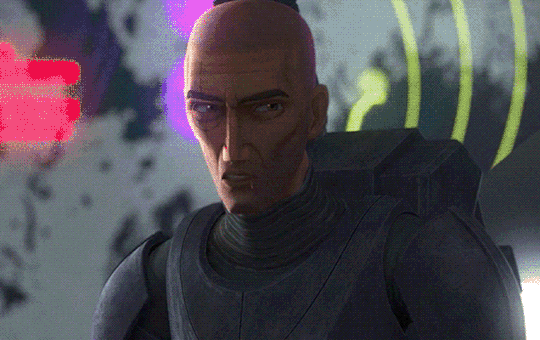
Crosshair’s anima consists of multiple archetypes, but the most prominent ones are Artemis and Hera. Artemis, or Diana as the Romans called her, is the Goddess of the Hunt and the Moon. She is the first-born twin sister of Apollo, the God of the Sun. As the Goddess of the Hunt, she wields a silver bow and carries a quiver of arrows on her back. She roams the wilderness of forest, mountain, meadow and glade with her band of nymphs and hunting dogs. As the Goddess of the Moon, she acts as a light-bearer, carrying torches in her hands or with the moon and stars surrounding her head. She is also the Goddess of Wildlife and she is associated with many undomesticated animals like the stag, doe, hare, quail, lioness, boar, bear and horse.
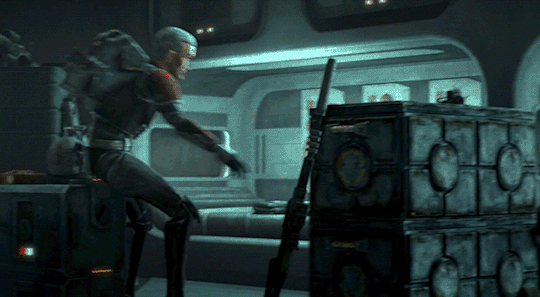
Artemis is a virgin goddess and she is the personification of an independent feminine spirit. She feels whole without a partner, and she has the “I can take care of myself” attitude. This archetype enables one to pursue interests and work that matters to them without needing other people’s approval. Their identity and sense of worth are based on who they are and what they do, rather than their relationships with others. Although Crosshair is part of the Bad Batch, he is capable of doing his own work while separated from them. In “The Bad Batch”, when the Bad Batch, Rex and Jesse infiltrate the Cyber Center, Crosshair positions himself from a distance, and he goes to secure a speeder craft as their getaway vehicle. In “A Distant Echo”, when Anakin tells the Bad Batch and Rex to split up so they can find Echo easier, Crosshair chooses to separate from his team and follow Anakin. With the rise of the Empire, Crosshair remains capable of carrying out the orders given to him even though the Bad Batch refuses to do so. He strongly identifies himself as a soldier of the Empire, claiming that this is who he is in “Return to Kamino”. He is certain of his identity even without the influence of the inhibitor chip and without the approval of the Bad Batch.
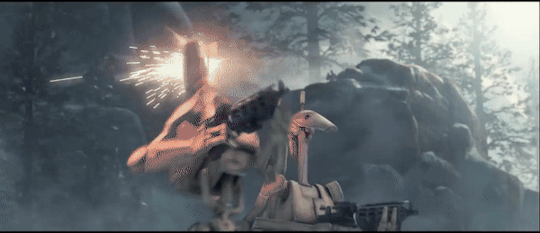
As the Goddess of the Hunt, Artemis is an archer that has the ability to aim for any target and know that her arrows will reach its marks. This archetype gives one the ability to concentrate intensely on whatever it is important to them, and to be undistracted from their course, which is called “focused consciousness”. The needs of others or competition would not deter them. In fact, competition only heightens the excitement of “the chase”. Not even obstacles or the difficulty in achieving the goal can hinder their perseverance. Since Artemis is more aligned to her instincts, her arrows are charged up with emotions. Hence, when a person channels their passion and intense emotions into pursuing a goal, their focus can be so intense that it becomes incredibly precise or destructive. Crosshair channels his intense emotions through his sharpshooting skills. His focus is so intense that every shot he makes is a precise killshot. However, in “Aftermath”, the shot Crosshair makes towards Wrecker only injures him. This may be a sign that he is fighting the effects of the inhibitor chip, and that he never intends to kill his brothers despite they have been branded as traitors to the Empire.
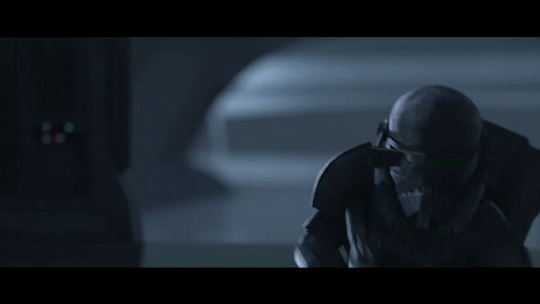
Artemis is seen as the archetype of the women’s movement because she is competent and independent, and she is protective of women and children. Since Artemis goes hunting and exploring the wilderness with her band of nymphs and minor deities associated with mountains, woods and streams, Artemis is also seen as the “big sister” archetype who emphasizes the “sisterhood” of women. In the myths, Artemis helped her mother Leto during her prolonged childbirth, and saved her from the giant Tityus who tried to overtake her. Artemis also came to other women’s aid, for example, she rescued the woodland nymph Arethusa from the pursuit of a river deity. Artemis is also known for her mercilessness, which is evident when she punished the hunter Actaeon who accidentally saw the goddess and her nymphs bathing in a hidden pool.

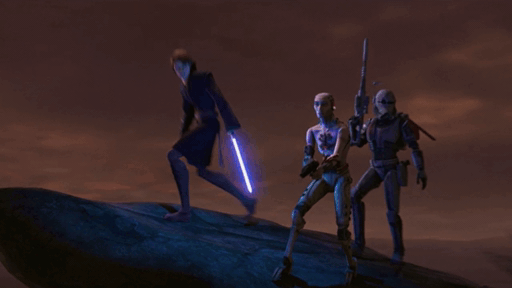
Crosshair is very protective of his brothers. In the Hyperspace Stories #10, when Dr. Krail appears as a hologram to greet the Bad Batch and state that he has been anticipating their arrival, Crosshair stands in front of Wrecker to protect him. In the episode “On the Wings of Keeradaks”, Crosshair protects the Poletecs by taking down the battle droids from afar. He also cares about Echo’s wellbeing as he is seen placing a hand on Echo’s shoulder after they fight off the battle droids. There are many headcanons and fanfictions that depict Crosshair protecting the vulnerable such as rescuing a person from another’s unwanted advances, which sometimes leads to a physical altercation. If Crosshair is not affected by the inhibitor chip, he will be impressed by Omega’s bravery for standing up for the Bad Batch in “Aftermath”.
People who feel true to themselves being with nature is connected to Artemis because she is associated with the wilderness and undomesticated nature. They may feel like they are in a spiritual communion with nature – be it surrounded by forests, mountains, or under the starry night. As the Goddess of the Moon and the Hunt, Artemis grants “moonlight vision”, which helps a person to look inward (like going into the wilderness, which contains our dreams, experiences and connection with nature) and be more reflective. There are headcanons that depict Crosshair as an animal lover, especially towards baby animals, which is an Artemis trait. In “Kamino Lost”, Crosshair is shown to have “moonlight vision” when he successfully takes the shot to save Omega despite the dark surroundings and the murky waters below. In “The Outpost”, Crosshair makes a spiritual connection with the Ice Vulture, which helps him to look inward and reflect on his decisions, leading him to turn against the Empire.
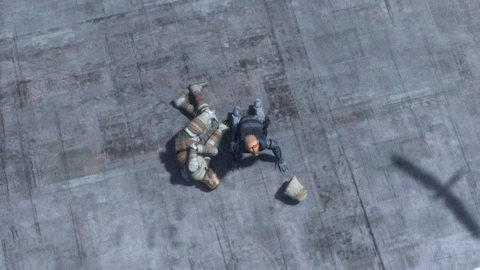
In Greek mythology, three goddesses make up the moon trinity – Selene who rules over the sky, Artemis on earth, and Hecate in the Underworld. This moon trinity can be represented by Riyo Chuchi, Crosshair and Echo in terms of their fight against the Empire: Riyo Chuchi is Selene because she is a senator and her high status means she is at the sky domain (the Galactic Senate); Crosshair is Artemis because his rebellion starts in the wilderness of Barton IV; Echo is Hecate (who is a constant companion to Persephone, Echo’s anima) because he fights in the darkness and at the crossroads where he rescues Howzer and two of his men.
Zeus and Leto are parents to Artemis, who are both loving and approving of her course of life. Parental support is needed to cultivate the Artemis archetype from a young age. Opposition and disapproval from parents (mostly from the father) may damage the self-esteem and self-confidence of an Artemis person. They may continue to put on a defiant attitude, but deep down, they feel inadequate despite all the successes they have, and they have a tendency to self-sabotage. Conflict usually arises between the mother and the daughter, especially if the mother is a Demeter archetype. A Demeter mother prefers a compliant good girl like Persephone, who will follow her, ask for her help, and accept that “mother knows best”. However, Artemis is the opposite to Persephone for she is independent and stubborn, which can lead to disappointment and feelings of rejection within the Demeter mother.
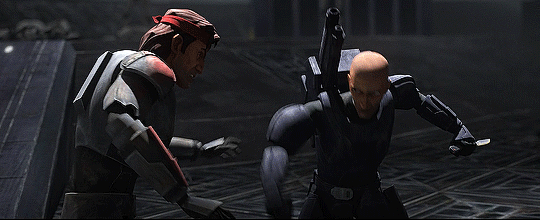
The conflict between Demeter and Artemis can be seen between Hunter and Crosshair. Hunter has the Zeus and Demeter archetypes. As Zeus, Hunter recognizes Crosshair’s talent and encourages him to develop it further. Though, his Demeter anima likely causes Hunter to limit Crosshair and stop him from doing certain things. Nevertheless, Crosshair’s stubbornness will get in the way, leading to arguments between the two. In “Aftermath”, Crosshair keeps shooting at Caleb Dume despite Hunter repeatedly telling him to stand down. They later have an argument about following orders. In “Return to Kamino”, Hunter refuses to accept that Crosshair willingly chooses to join the Empire, and decides to forcibly take him away after stunning him. In “Kamino Lost”, Hunter keeps trying to reason with Crosshair about the Empire’s atrocities but to no avail. Crosshair feels that Hunter is trying to control and limit him, deciding what is best for him because Hunter has the mindset that “he knows best”. The more Hunter tries to control Crosshair, the more Crosshair will rebel. This is why he stands his ground and refuses to rejoin the Bad Batch.
Another problem faced by the Demeter mother-Artemis daughter involves a weak, passive mother. The mother may be depressed, an alcoholic, trapped in a bad marriage, or immature, which causes the daughter to take on the parent role. The daughter is disappointed that she does not have a strong mother, and that she is not strong enough to change her mother’s life (unlike the goddess Artemis who was able to help her mother Leto). Determined not to resemble her mother, the Artemis daughter refuses to show her vulnerability and dependency, and she usually rejects what are traditionally feminine like softness, gentleness and receptivity. Crosshair faces this issue when he sees Hunter has failed in his leadership skills or has let his feelings getting in the way. In “Aftermath”, when Hunter refuses to execute Saw Gerrera and his people, Crosshair begins to see Hunter as unfit to lead the squad, and he wants to take over. Crosshair even demands Hunter to explain when he has become soft as he disobeys orders to save Omega, which indicates Crosshair’s contempt for softness and vulnerability. In “Kamino Lost”, Crosshair accuses Hunter that his failed leadership is going to lead them to their deaths, and he expresses his disapproval to let Omega calling the shots because she is a child.
Like Artemis, Crosshair is a natural competitor who is willing to push himself to the limit to achieve his goals. He likes to be challenged, which is seen in the Hyperspace Stories #10. In this comic, the Bad Batch is sent to Hylanth for a mission to investigate battle droids. Crosshair thinks that this mission can be carried out by the regular clone troopers, and the apparent lack of challenge frustrates him. After Tech explains that these battle droids have been modified, Crosshair says that “maybe there is hope for this mission yet” as he feels motivated to take on the challenge. Even if the goal does not guarantee success or it can cause him to become distant from others, Crosshair still chooses to continue his pursuit because he finds personal fulfilment with it. Since Crosshair finds his role as a soldier personally fulfilling, he chooses to stay with the Empire despite facing disapproval from the Bad Batch. Many Artemis people take up sports, especially in marathons and skiing which require a combination of goal focus, will, intensity and competitiveness. They move forward without any hesitation, undeterred by any challenges ahead. We have seen Crosshair expertly slides across floors or down snow slopes in “A Distant Echo” and “Aftermath”, which is a trait of his Artemis anima.
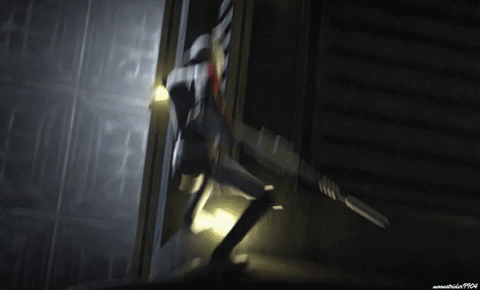

Most Artemis people, especially in their early adulthood, are engrossed in their work or causes. Marriage and childbearing are often far from their minds, or they outright reject them. Though, they like children and are extremely protective of children, like a mother bear who ferociously protects her young. They also prefer to foster independence in children. There are headcanons that Crosshair is not interested in getting married and having children, or he is alright with marriage but chooses to be childfree. These are traits of his Artemis anima. Moreover, Crosshair is not much of a parental figure in the beginning possibly because he views Omega as a dependent, passive child, which is not ideal for an Artemis person. However, as Omega becomes more independent, active and assertive, it is possible for Crosshair to become protective of her while encouraging her to be independent.
A relationship with an Artemis person, be it platonic or romantic, usually resembles the sibling relationship, friendly rivals or the Artemis-Apollo twinship. Their desire to maintain independence in a relationship means they are not drawn to dominating partners and they are not interested in playing the parental role. Their partner is usually their equal with shared or complementary interests, or is the one who nurtures them like teaching them to be more considerate and sensitive. If the Artemis person and their partner are both competitive, they must be careful not to let their competitive nature kill off their relationship, which parallels the myth of Artemis and Orion, where Orion was killed due to Artemis being goaded to take on Apollo’s challenge. Some people do view Crosshair as a person who will treat his partner as his equal instead of dominating them (which is associated with his Poseidon archetype), and his partner is usually as competitive as him, or a nurturing person who opens him up. Crosshair has a strong connection with the Bad Batch, and he is shown to share a friendly competition with Wrecker during the Clone Wars. I interpret Crosshair and Tech having the Artemis-Apollo twinship due to both of them being similar yet different from each other. Crosshair mostly has a brother-sister dynamic with Omega, who usually helps him to be more considerate and sensitive to his feelings.
In the myths, Artemis never suffered but she did bring harm to those who offended her. Similarly, people who identify themselves strongly as Artemis usually cause others to suffer rather than hurting themselves. If an Artemis person is raised to look down on traditionally feminine values, she may develop a contempt for vulnerability and dependency. Her relationships with others are marked with emotional distance and the usual physical unavailability. She may lose interest once her partner wants to get close to her emotionally, or becomes dependent on her, which are seen as “weaknesses” to her. She may even be cruel to her loved ones, treating them as unwanted intruders. Hence, it is important for an Artemis person to realize the importance of love and trust of a special person.
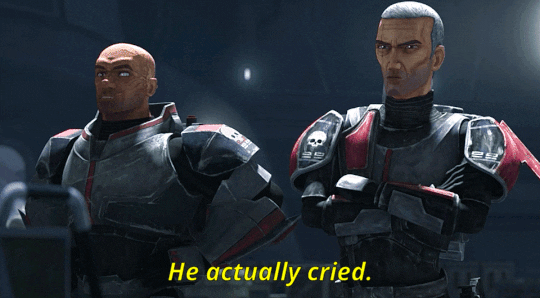
In “Aftermath”, Crosshair expresses his contempt for vulnerability upon seeing Hunter disobeying orders to save Omega. He also dislikes Omega trying to get close to him. It is likely that his inhibitor chip has affected him – possibly strengthening his Artemis anima to the point of becoming cold and cruel. However, he still retains the same contempt for vulnerability even without the influence of the inhibitor chip. In “Return to Kamino”, Crosshair tries to take Omega away from the Bad Batch and he tells Hunter to stop pretending to be a father figure to her because “that is not who he is”. In “Kamino Lost”, Omega tries to connect with Crosshair but he pushes her away again. Fortunately, Crosshair overcomes his contempt for vulnerability after receiving the love and trust from Commander Mayday in “The Outpost”.
Artemis has been called “the Far-Distant Artemis”, and this archetype is marked with emotional distance. This means Artemis people can become so focused on their own goals that they fail to notice the feelings of other people and can get offended by those who interrupt their focus. Their lack of attentiveness can make people who care about them feel insignificant and excluded. To grow beyond this archetype, Artemis people must learn to pay attention to others and be a good listener. They must also remain in touch and accessible to those who care about them.
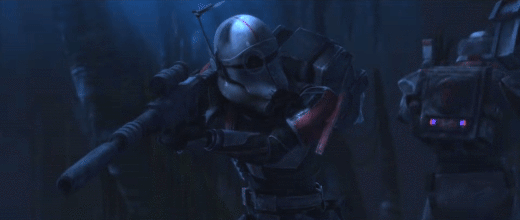
When Order 66 happens, Crosshair’s inhibitor chip is somewhat activated. He becomes adamant of following orders, which leads to conflict between him and the rest of the Bad Batch (especially Hunter). He does not understand why they choose to disobey orders, and he even sighs in frustration when Hunter tells him to stand down in “Aftermath” as if Hunter is interrupting his focus to carry out the order. When Crosshair joins the Empire, he becomes “inaccessible” to the Bad Batch. In “Return to Kamino” and “Kamino Lost”, Crosshair reveals that he already has his inhibitor chip removed and that he willingly joins the Empire. This realization hurts the Bad Batch because it means that Crosshair chooses not to come back in his own volition because he prioritizes his role as a soldier of the Empire. Although Crosshair remains mostly closed-off from other clones, Commander Cody’s advice does affect him in “The Solitary Clone”. Later, in “The Outpost”, Commander Mayday helps Crosshair to open up and become more accessible to him.
Artemis is known to be merciless. In one myth, the hunter Actaeon accidentally saw Artemis and her nymphs bathing in a hidden pool. The goddess turned him into a stag and he was later torn to pieces by his own hounds. In another myth, Niobe insulted Leto by bragging that she had many sons and daughters, unlike Leto who only had two. Leto called on Artemis and Apollo to avenge her without mercy. With their bows and arrows, Apollo killed Niobe’s six sons while Artemis killed Niobe’s six daughters, and Niobe was turned into a weeping pillar of stone.
People who strongly identify as Artemis are extremely loyal to others, tend to get angry at injustice, unafraid to express their point of view, and have a tendency to take action. These are positive traits of Artemis, but there is also a tendency to mercilessly judge the actions of others in an absolute black and white. From this perspective, not just an action is either entirely bad or entirely good, but the person who does the action is also either all bad or all good. With that, an Artemis person feels justified to retaliate or punish the person.

Crosshair is extremely loyal to the Bad Batch. However, when they leave him behind on Kamino, he feels betrayed and view them as bad people. In “Reunion”, Crosshair is determined to hunt the Bad Batch down as they have been branded as traitors to the Empire. In “Return to Kamino”, Crosshair offers the Bad Batch to join the Empire, but they refuse, which from his perspective, makes them all bad people. That is why he tells them not to make the same mistake twice and not to become his enemy. In “Kamino Lost”, Crosshair views Hunter as a bad leader because he has caused the Bad Batch to disobey orders, run away from the Empire and now they are trapped under Tipoca City that is sinking to the ocean floor. In “The Solitary Clone”, Crosshair calls the clones who are questioning orders as traitors like the Jedi because from his perspective, a good soldier follows orders without question, and even a slight tendency to question orders is considered an entirely bad thing, and it makes the soldier a completely bad person.
It is important for an Artemis person to develop compassion and empathy, which may come with maturity and experience. Many Artemis people enter adulthood feeling self-confident and invulnerable. However, after going through suffering, being misjudged or failing at something, they may grow to become more compassionate. They will learn to be more merciful as they learn what it is like to be vulnerable and become more understanding, they realize that people are more complex than they think, and they learn to forgive themselves and others for making mistakes.

Crosshair has always felt confident and invulnerable. He does not believe that he would be replaced by the Empire because of his superiority. He turns a blind eye at the regular clone troopers, who are feeling the plight of being forced into “retirement”. However, that all changes when Crosshair goes through suffering in “The Outpost”. He learns how to be vulnerable to Mayday, which makes him more understanding and compassionate towards the regular clone trooper. This helps Crosshair to become more mature, and realize that the Empire does not care about the clones, including him. Hopefully, Crosshair can learn to forgive himself for making the mistake of joining the Empire and disappointing the Bad Batch.
The goddess Artemis is known for her destructive aspect that is symbolized by the wild boar, one of the animals sacred to her. In Greek mythology, Artemis sent the Calydonian Boar to terrorize the countryside of Calydon because King Oeneus had failed to honour her in his rites to the gods. The Calydonian Boar was described to have burning, bloodshot eyes, thick bristles that stood like sharp spikes, hide tougher than armour, and tusks similar to those of Indian elephants. It trampled vineyards and crops, drove away flocks and herds of animals, and killed many heroes who had tried to bring it down. This rampaging destruction serves as a metaphor for an Artemis person on a warpath.
The rage of Artemis is surpassed only by that of Hera. Although both goddesses appear to share the same intense feelings, the provocation and the direction of the anger are different. A Hera person directs their rage at “the other woman”, while an Artemis person directs their rage at people (mostly men) for depreciating them or for disrespecting something they value. The rage of Artemis can be observed in people reacting to injustice with intense hostility that is often out of proportion to the particular provocation, which leads to a rampage similar to the Calydonian Boar, hurting themselves and many like-minded people along the way.

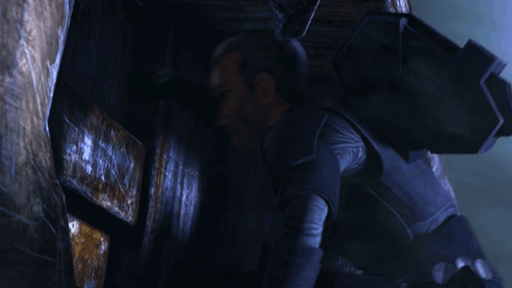
After the Bad Batch leaves Crosshair behind, he is greatly offended by their betrayal and for throwing away their legacy. He hunts them down as if he is like Artemis on a warpath. His rampage causes injuries to himself and his troops. In “The Outpost”, Crosshair is furious that Lieutenant Nolan refuses to provide medical aid to Mayday because “they should not waste the Empire’s resources on a clone”, resulting in his death. Crosshair reacts to the injustice with intense hostility and he shoots Lieutenant Nolan, instantly killing him. However, Crosshair’s action causes him to end up on Mount Tantiss, where he gets experimented and tortured by Dr. Hemlock.
In the myth of the Calydonian Boar, the huntress Atalanta faced the charging boar with a bow and an arrow, or in some versions, a spear. She waited until the boar was almost on her, took careful aim, and then shot the arrow or threw the spear through an eye, which was its only vulnerable spot. Her action successfully wounded the boar. According to Jean Shinoda Bolen, the destructive rage of an Artemis person can only be stopped by what Atalanta did in this myth. The Artemis person must take courage to confront their own destructiveness directly. They must see it as an aspect of themselves that must be stopped before it consumes them and devastates their relationships. They can no longer feel righteous and powerful when they realize how much damage they have done to themselves and others. Humility is what returns their humanity as they become aware that they are flawed humans, not an avenging goddess.
When Crosshair gets angry, he reacts by taking action. However, his actions sometimes hurt himself and others. For example, his decision to hunt the Bad Batch down because he feels betrayed by them worsens the rift between them. By killing Lieutenant Nolan to avenge Mayday’s death, Crosshair ends up being imprisoned on Mount Tantiss and is subjected to experimentation and torture. It is important for Crosshair to realize how destructive his rage is, and how it hurts him and others. He must learn not to let his rage consumes him, and instead become aware that he too is a flawed person.
The myth of Iphigenia depicted the crucial choice an Artemis person would make in their lives. In this story of the Trojan War, the Greek ships had been assembled to set sail for Troy, but no winds arose to fill the sails and carry the fleet to war. Agamemnon, the leader of the Greeks, believed that it was the doing of a god, so he consulted the expedition’s seer. The seer explained that Agamemnon had offended the goddess Artemis on his way to the Trojan War by hunting and killing one of her sacred stags, and she punished him by withholding the winds. The seer stated that the goddess could only be appeased by the sacrifice of Agamemnon’s daughter Iphigenia. At first, Agamemnon resisted, but as pressure from his troops mounted, he tricked his wife Clytemnestra into sending Iphigenia to him, on the pretext that she was to be married to the Greek hero Achilles. Instead, she was prepared for the human sacrifice in exchange for the winds. There were two types of endings for this myth. One version stated that the death of Iphigenia was carried out as demanded by Artemis. In the alternate version, Artemis interceded just at the point of sacrifice, substituting a stag in her place, and carried her off to Tauris, where she became one of Artemis’s priestesses.
Jean Shinoda Bolen interprets these two endings as the possible effects of the Artemis archetype. She believes that every Artemis person likely has certain traits of Iphigenia — young, trusting, vulnerable, receptive, nurturing, the ability to relate to others, the ability to be intimate with others, dependent on others, and the willingness to make sacrifices for the sake of others. On one hand, the Artemis archetype rescues these traditionally feminine values from the devaluation and oppression of the patriarchy, like Artemis rescuing Iphigenia. On the other hand, the Artemis archetype makes a person so intensely focused on their goals that they sacrifice and devalue these traditionally feminine values, like Iphigenia was sacrificed to appease Artemis so the winds could bring the Greek fleet to war.
With that, an Artemis person is faced with a crucial choice: Will they rescue and protect this Iphigenia part of themselves so that it can grow even as they continue with their life and pursue their goals? Or will they be required to kill this Iphigenia part of themselves in order to be as focused, hard and clear as possible?
The myth of Iphigenia is depicted in “Kamino Lost”. Omega represents Iphigenia for she is young, receptive, vulnerable and dependent on others. Hunter also represents some traits of Iphigenia for he is nurturing and he cares deeply for Omega. These values are deemed as traditionally feminine. In this episode, Omega is unwilling to lose AZI so she swims after the droid. Hunter wants to enter the water to save Omega because she is about to drown. At this moment, Crosshair pulls out his rifle and it seems like he is aiming at Hunter, which is why Wrecker, Tech and Echo point their blasters at him. This scene seems to depict the possibility of Crosshair choosing to “sacrifice Iphigenia”, which is “to eliminate Hunter and let Omega drown”. After all, the episode has shown that Crosshair still has conflicts with Hunter and he continues to push Omega away, which can be interpreted as Crosshair devaluing these traditionally feminine values in favour of the Empire and his soldier’s duty.

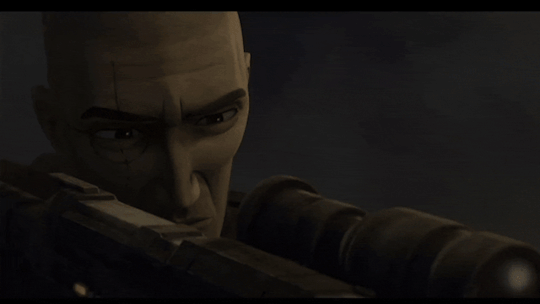
When it seems that Hunter is in danger and Omega is about to drown, Crosshair is actually aiming at the water and he shoots a grapple that latches onto AZI, allowing him to pull Omega and the droid to the surface. Crosshair’s action to save Omega’s life represents his Artemis anima choosing to “save Iphigenia”, which can be interpreted as Crosshair rescuing and protecting these traditionally feminine values. His action indicates that there is still good in him, and that he can be vulnerable, receptive and nurturing.
To grow beyond the Artemis archetype, one must learn to become vulnerable, to love and care deeply about another person. This usually happens after the Artemis person has “run down”, after they have achieved or failed their goals, or after the pursuit has gone stale. The people who care about the Artemis person may have to wait, or they can get some help from Aphrodite.
The Atalanta myth serves a metaphor for the psychological growth that an Artemis person may go through. Atalanta was a huntress and runner whose courage and capabilities were equal to any man’s. She was left on a mountaintop to die by her father soon she was born. She was then saved by a bear and raised by hunters. She grew up to be a beautiful woman and she devoted herself to the goddess Artemis. A famous hunter named Meleager became her lover and companion. They played an important part in the Calydonian boar hunt where Atalanta successfully wounded the boar and Meleager finished it off. Since Atalanta had drawn first blood, Meleager offered the boar skin to her as a prize. However, Meleager’s uncles, who had been hunting with them, thought it was disgraceful that a woman should get the trophy where men were involved. They tried to take the skin for themselves and claimed the credit for killing the boar. Meleager was outraged by this and he killed them, which then resulted in his mother killing him shortly thereafter.
Atalanta then left the wilderness, and was eventually reunited with her father. Her father recognized her as heir to his throne, and insisted that she should get married, which was something she was not interested of. Many suitors came to win her hand, and she rejected them all. As her suitors became more persistent, she came up with a challenge for them: she would marry the man who could beat her at a footrace, but he would lose his life if he lost the race. Race after race, Atalanta was always in the lead. Finally, the unathletic Hippomenes, who truly loved her, entered the race. He prayed to Aphrodite, the Goddess of Love and Beauty, for help at the night before the race, and she gave him three golden apples to use in the race. During the race, Hippomenes threw the three golden apples in Atalanta’s path three times, which managed to distract her long enough for him to cross the finish line first and take her as his wife.
The Atalanta myth, or more specifically the deadly footrace, is played out in “The Outpost”, and it helps Crosshair to grow beyond his one-sided Artemis anima and achieve wholeness. There are no official explanations as to why Atalanta is distracted by the three golden apples, but Jean Shinoda Bolen provides her own interpretations for the three golden apples, which surprisingly match Crosshair’s character arc in “The Outpost”.
When Hippomenes threw the first golden apple and Atalanta went to take it, she saw her own face distorted by the curves of the apple. The first golden apple is interpreted to have given her the awareness of time passing. Many Artemis people are unaware of time passing until their desire to take up challenges or to reach their goals dwindle. They may become aware that they are not going to be eternally youthful and start reflecting about their course of life. At the beginning of “The Outpost”, Crosshair observes three clone troopers protesting their “forced retirement” due to the Defense Recruitment Bill has been passed by the Senate. Upon arriving at the outpost, Crosshair meets Commander Mayday, who has been guarding the cargo held in the outpost for a year, and has been expecting reinforcements 36 rotations ago. By witnessing the clones being forced into retirement and realizing that a year has passed since the formation of the Empire, Crosshair becomes aware of time passing, and that soon enough, he would be replaced by Stormtroopers, as it is the fate of all clones.
When Hippomenes threw the second golden apple, Atalanta went to retrieve it, and memories of her dead lover Meleager took over her. The second golden apple is interpreted to raise awareness of the importance of love. As yearnings for physical and emotional closeness are stirred by Aphrodite, an Artemis person may become more receptive to love and intimacy, and this feeling is strengthened by the awareness of time passing.
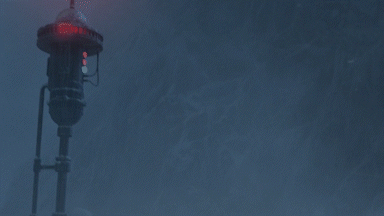
As Commander Mayday gives Crosshair a tour of the depot and its surroundings, he explains that they have been attacked by raiders who have caught them off guard in the last few raids. Mayday believes that the polar conditions have degraded the sensors, which may explain how the raiders get past them. To make matters worse, he is not receiving any replacements from the Empire. At this moment, Crosshair probably starts to recall memories of Hunter and Tech. Hunter would have been able to detect the raiders quickly thanks to his enhanced senses, and Tech would have upgraded the sensors to make it difficult for raiders to get past.
When Crosshair steps on a pressure mine, Mayday goes ahead to disarm it despite he is not an explosive expert and that he does not have the proper equipment to do so. However, he is able to improvise with the tools he has. At this moment, Crosshair probably starts to recall memories of Wrecker. Wrecker is an explosive expert, and he would have the proper equipment to disarm the pressure mine with ease. While Mayday disarms the mine, he asks Crosshair about his unit. This prompts Crosshair to mention that he was part of Clone Force 99, but they are gone. As he recalls the memories of his former squad, he probably begins to yearn for their presence and support. He probably starts to yearn for physical and emotional closeness, which is why he becomes closer to Mayday.
As Atalanta was about to pass Hippomenes and win the race, he dropped the third golden apple. For a split second, she hesitated: should she cross the finish line and win the race, or take the apple and lose? She chose to reach for the apple just as Hippomenes crossed the finish line, winning the race and her for his wife. The third golden apple represents procreative instincts and creativity, which are associated with Aphrodite. In life, there may come a time where achievements become less important to the Artemis person. They may shift their focus to other things like settling down and having a family, or transforming their experiences into some form of personal expression. They start to follow their heart more.
Crosshair and Mayday are sent to retrieve the cargo stolen by raiders. They are successful but they get caught in an avalanche. Crosshair digs himself out of the snow and finds Mayday injured. Mayday tells Crosshair to go because he is not going to make it. Crosshair now must make a choice: should he complete the mission and leave Mayday to die, just like he has said earlier, “no point of carrying deadweight”? Or should he abandon the mission and save Mayday’s life? Just like Atalanta gives up winning for Hippomenes, Crosshair gives up the mission for Mayday. Crosshair is well-aware that he will be reprimanded for not completing the mission, and his icy-cold reputation will certainly be tarnished. However, as he starts following his own heart, his brotherly love for Mayday wins over his ego and his tendency to follow orders.
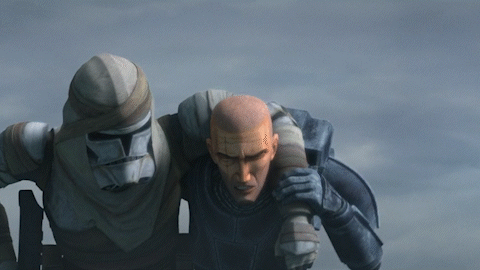
Jean Shinoda Bolen believes that the knowledge of Aphrodite can be brought through the love of another person, which can help an Artemis person to move beyond the one-sidedness of this archetype and achieve wholeness. The Artemis person can turn inward to reflect on what is important to them, and be inner-directed as well as outer-focused. They may realize their needs for intimacy as well as for independence. Once they embrace love, they will have moments to decide for themselves what is most important.
In “The Solitary Clone”, Crosshair begins to turn inward to reflect on what is important to him after Commander Cody tells him that they make their own decisions and choices, and they have to live with them too. Crosshair’s brotherly love for Mayday is what pushes him further to turn inward for reflection. From here, he decides that his loyalty to his brothers (and his sister Omega) and his protectiveness towards them mean the most to him. With the Empire not seeing eye to eye with him, Crosshair finally turns against the Empire.
Besides Artemis, Hera is another prominent archetype in Crosshair’s anima. Hera, or Juno as the Romans called her, is the Goddess of Marriage. She is the wife of Zeus (or Jupiter by the Romans), the chief god of the Olympians, who rules over the heavens and earth in Greek mythology. Her name is thought to mean “Great Lady”, which is the feminine form of the Greek word “hero”. Her symbols are the cow, the cuckoo, the Milky Way, the lily, and the peacock (and its iridescent tailfeather “eyes” that symbolized Hera’s watchfulness). Hera has two contrasting aspects: she is greatly revered and worshipped in rituals as a powerful goddess of marriage, and she is depicted as a vindictive, quarrelsome, jealous shrew due to Zeus’s infidelity.
In her rituals, Hera had three epithets and three corresponding sanctuaries where she was worshipped during the year. In the spring, she was Hera Parthenos (Hera the Maiden or the Virgin). She was celebrated as Hera Teleia in the summer and autumn (Hera the Perfected One or the Fulfilled One), and became Hera Chera (Hera the Widow) in the winter. These three aspects of Hera represented the three states of a married person’s life (or more specifically, a woman’s life in Ancient Greece): in spring, they were single; in summer, they felt completed through a wedding; in winter, they grieved at the end of their marriage due to separation or death of their partner.
Hera is the wife archetype that prompts a person to get involved in a committed relationship and to get married. People who identify strongly as Hera view marriage as a way to gain prestige, respect and honour. They want to be recognized as “someone important”, and they seek out outer acknowledgement by having a large wedding ceremony. They find joy, fulfilment and completeness in marriage, in which they see it as sacred. Just like Hera is married to Zeus, people who identify with the Hera archetype are attracted to competent, successful people like rulers, businessmen or politicians. They are usually not into artists, scholars or humanitarians. Their choice in partners comes from their view of marriage as something that provides comfort and security to their lives. Besides that, some Hera people may view marriage as a way out of a bad situation, especially if their parents resemble Hera’s parents Cronos and Rhea – a patriarchal, dominating father and a powerless mother.
There are many headcanons that Crosshair enjoys security and comfort in his life, which are granted by the Republic’s support. The Republic provides necessities to all the clone troopers such as food, shelter, payment, weapons, training and transport. With that, Crosshair may feel ease to do other things. Many fans agree that Crosshair is the most fashionable of the Bad Batch, and he likes to wear jewellery. He may indulge in the best fabrics for comfort like wearing a pair of sleepwear and/or eye mask that are made of silk. He likely cares about his appearance greatly, which leads to a headcanon that he uses a loofah (suggested by a fan) or a pumice stone (suggested by the person running the Star Wars twitter account) during showers for he cares about his skin. These headcanons evoke the imagery of the Hera archetype in Crosshair – pompous, feelings of superiority and likes attention – basically, a prima donna. He probably gets jealous at Omega because she captures all the attention of the Bad Batch in “Aftermath”.
There are also headcanons that Crosshair likes to indulge the Bad Batch like bringing them to the best restaurants on a planet, buying things they like, or crafting things for them. The writers have come up with a headcanon that Crosshair is the one who creates Lula for Wrecker. I also have a headcanon that Crosshair creates Lula after the Hyperspace Stories #10 because Wrecker has lost the stuffed toy and Crosshair wants to cheer him up. I can imagine Crosshair buying something delicious for Wrecker to eat, getting the best equipment for Tech, and choosing the most comfortable fabric for Hunter to wear as a casual outfit. In “Aftermath”, Crosshair is shown to desire orderliness and cleanliness as he complains about the smell getting worse in the squad’s barracks, and that his bed is spotless and tidy (even his blacks are folded neatly). I have this headcanon that Crosshair is mainly responsible for the orderliness and cleanliness of the Marauder, and that Echo’s arrival has helped to ease most of his burdens. For example, Crosshair makes sure the floors of the Marauder are clean of dirt, dust, mud and food crumbs. He makes sure the lights and ventilation are working properly. He washes their blacks regularly and keeps a tab on their toiletries. He does all of these for everyone’s comfort, including himself.
I have seen people shipping Crosshair with a character that is of a higher status than him like a Jedi, a senator, or a politician, which kind of evokes the imagery of Hera and Zeus. There are many romantic headcanons for Crosshair that evoke the Hera archetype, for example, he buys something that his partner yearns to have regardless of the price, or he creates something for his partner to show his love and devotion. People who identify as Hera tend to share the same friend group and interests with their partner, even when they initially do not like them. It is a general headcanon that Crosshair will reluctantly do an activity with his partner because he prioritizes his partner’s needs and wants over his, which is a Hera trait. I have seen one headcanon that Crosshair is willing to give his partner children if his partner wants them, which is also a trait of the Hera archetype.
People who identify strongly as Hera find fulfilment in playing the role of a housewife or a househusband. They can take care of everything in the house while their partner is away for work. Since Crosshair has some traits of the Hera archetype, it is possible for him to play the role of a househusband well. Imagine yourself coming back home from a long, tiring day of work, and you find that Crosshair has cleaned the entire house, done the laundry, cooked your favourite meal, prepared a bubble bath for you, and planned to give you a body massage to help you relax before you go to sleep. Basically, Crosshair can be a devoted partner that pampers and spoils you, making you feel that you are the most important person in his universe.
The Hera archetype grants a person the capacity for commitment. They are loyal and faithful to their partner, and they are willing to endure and go through difficulties with their partner. They are the ones who stay “for better or worse”, and they are willing to drop everything for their partner. Loyalty means everything to the clones, and Crosshair takes it very seriously. Crosshair is extremely loyal to the Bad Batch, and he will do anything for them. In “The Bad Batch”, when Rex takes charge of the mission after Cody is injured, Crosshair sees it as Rex challenging Clone Force 99 for authority, or more specifically, challenging Hunter’s leadership role. This causes Crosshair to defend Hunter and Clone Force 99 by pointing out that Cody has called them in to help Rex, so Rex has no right to challenge their authority. This scene evokes an image of a Hera person fiercely defending their partner. I can imagine Crosshair leaving the last ration bar for Wrecker, placing a warm blanket on Tech when he has fallen asleep on his desk, and giving Hunter a hug upon seeing how work has overwhelmed him. Crosshair always gives his best to his loved ones, and puts their needs above his.

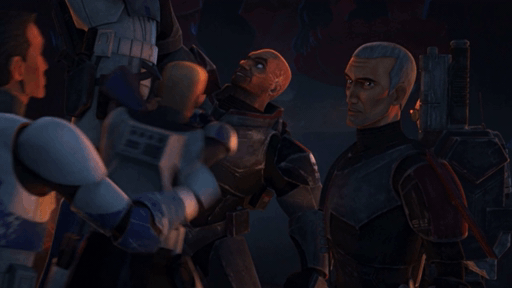

In Greek mythology, Zeus got close to Hera by turning himself into a shivering little bird. Hera took pity of the bird and brought it close to her body to warm it up. Then, Zeus revealed himself as the chief god and made a promise to marry her, in which she accepted. People who identify strongly as Hera may find themselves attracted to powerful and successful people that are also emotionally immature like Zeus. This emotional immaturity is what makes a Hera person to view them as “a poor little creature in need of Hera’s warmth and protection”. This caring trait of Hera can be seen in Crosshair. Although Crosshair can get annoyed at Wrecker’s antics (even telling him to “grow up”), his complaints are never taken seriously by anyone. In “The Bad Batch”, when Jesse defends Rex from Crosshair, Wrecker grabs and lifts him by the throat. Crosshair then defends Wrecker by warning Kix to stay out of it and fights him. This shows that Crosshair is not just protective of Wrecker, he is also enabling Wrecker’s impulsiveness. In “Aftermath”, Crosshair complains about the smell in their barracks and he does not like their laziness on cleaning up the mess. Yet, his complaints are treated as passing comments, and he does not try to change the Bad Batch. He probably grumbles while cleaning up the mess they have created, as if he is just tolerating their bad habits. The Bad Batch probably even sees it as a hobby for Crosshair that is not sharpshooting. Just like how Hera views Zeus in his poor little bird form, it is possible that Crosshair views Hunter, Tech and Wrecker as “poor little boys” in need of his warmth and protection. He feels the need to fiercely defend them from criticisms and insults, and he does not feel the need to change them at all, even if their antics do annoy him.
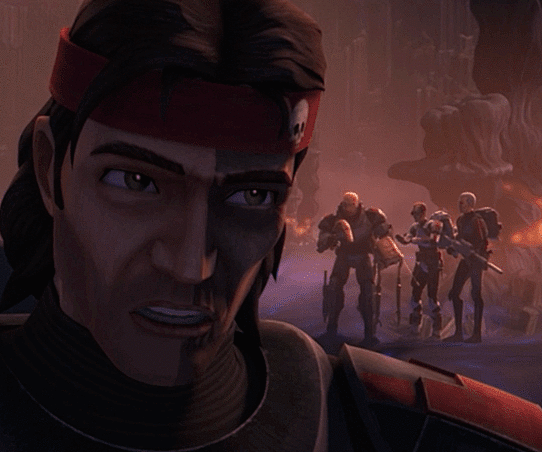

When the goddess Hera was worshipped in Greek temples and the marriage of Zeus and Hera was ritually enacted, Zeus was called Zeus Teleios, which meant “Zeus, Bringer to Fulfilment”. With that, a Hera person unconsciously places an archetypal expectation of fulfilment on their partner, with the assumption that they will be transformed by marriage. This tendency to project an image of an idealized partner onto a person can usually lead to disappointment, criticism and anger from the Hera person, causing them to urge their partner to change.
To a Hera person, a happy marriage means that their partner is devoted to them, placing their marriage first, and appreciating them as their wife or husband. However, a Hera person is usually drawn to people like Zeus, who are devoted to their careers. A Zeus person usually uses marriage to boost their social image by marrying someone from the same class or higher than his, and they can appear side by side in public. This type of marriage is a personal disaster for a Hera person due to their partner’s lack of involvement and concern of her. Yet, no matter how dissatisfied the Hera person feels about the marriage, they are the least likely to seek divorce and instead, they choose to bury their feelings by putting on the image of a perfect couple.
People who identify strongly as Hera have a tendency to place their relationship with their partner above everything else. They believe in marital promises of eternal devotion and they are willing to make sacrifices for their partner. They can give up their education to be a full-time wife or husband for their partner, get a job to support their partner, or relocate to another town or country if their partner wants to move. Hera people usually do not maintain family ties and friendships made before marriage. They are usually not close with their own children since they tend to prioritize their partner over their children. They also do not maintain their own interests prior to marriage. They instead make themselves conform to their partner’s life, interests and friends. These constraints can lead to problems for a Hera person, and they are made worse if their partners do not give them support to grow beyond the Hera archetype.
The Hera archetype can be such an overwhelming force that it oppresses people, and it turns people into oppressors. This archetype may make an unmarried person feel incomplete and they may end up in a bad marriage. This archetype may also cause a married person to stay in a bad marriage no matter how damaging it is to them. They may constantly nag at their partner for failing to live up to the image of Zeus who fulfils, or they may become enraged and jealous if their partner is unfaithful – be it in a factual or an imaginary scenario.
Whenever Zeus cheats on Hera, the goddess does not channel her rage towards her husband. Instead, she channels her destructive and vindictive rage at the other women (e.g. Callisto, Io, Leto, Aegina), at children conceived by Zeus with other women (e.g. Heracles, Dionysus), or at innocent bystanders (e.g. Echo). Just like the goddess, Hera people tend to judge and punish other people by excluding or ostracizing them and their children, all because they do not meet Hera’s standards. Hera people are judgemental towards people who are unmarried, sensual, or divorced because they are seen as “a threat” that can attract their married partner. Hera people are also judgemental towards people who are not personally threatening like unmarried mothers on welfare.
These disappointed expectations, constraints and judgmental attitude from the Hera archetype can be seen in Crosshair. In “Aftermath”, Crosshair does not see the difference between the Republic and the Empire because their roles as soldiers are being maintained. He expects the Bad Batch to stay as soldiers because that is what they are made for, and that is the only acceptable role for them. Besides that, Crosshair looks down on the regular clone troopers and does not like to work alongside with them because he sees himself and the Bad Batch as more superior than them. Of course, his decision to ostracize the regular clone troopers is also due to him and the Bad Batch are constantly bullied by the regs. When Omega approaches the Bad Batch and sits with them, Crosshair is not welcoming towards her. He sees her as a child, and that she should not hang out with soldiers like them.

Crosshair becomes extremely disappointed at Hunter when he chooses to disobey orders and he starts to prioritize Omega’s safety. To him, good soldiers should follow orders, and Hunter is breaking it. Crosshair’s bitterness towards the Bad Batch grows when they leave him on Kamino and they have taken Omega with them, giving the feeling that he has been replaced. Although he is furious at the Bad Batch, he does not channel his destructive rage towards them, even though the Bad Batch thinks that he is trying to kill them. Instead, he channels his destructive rage towards other people. In “Replacements”, Crosshair executes ES-01 for insubordination and he orders the rest of the Elite Squad Troopers to execute innocent civilians, in which the Bad Batch has failed to do so earlier. In “Reunion”, Crosshair dismisses the Bad Batch for scavenging like rats since they no longer have a stable financial support after deserting the Empire. For Crosshair, being a soldier is the only truly acceptable role for a clone trooper. The life of a mercenary or a bounty hunter is a definite “no” for him and for any clone trooper.
In “Return to Kamino”, Crosshair kills his own Elite Squad Troopers for refusing to stand down as he has ordered. He offers the Bad Batch to join the Empire to have a purpose again. Moreover, he tries to take Omega away from the Bad Batch, even telling Hunter to stop pretending to be a father figure to her, which in Crosshair’s eyes, is something Hunter is not. When the Bad Batch refuses Crosshair’s offer, he gets angry at them, warning them not to make the same mistakes twice and not to become his enemy. Despite witnessing and surviving the destruction of Tipoca City caused by the Empire, Crosshair still chooses to stay loyal to the Empire, and not even Hunter’s advice can get to him.
In “The Solitary Clone”, Crosshair is seen to be eating his meal alone as other regular clone troopers move away from him. It is true that regular clone troopers usually have issues with “defective” clones like Crosshair, but Crosshair’s tendency to limit himself to only the Bad Batch also now becomes a side effect as he is no longer with his former squad. He has nobody close to him in the Empire. Although Commander Cody is a close friend of Crosshair, his eventual desertion wounds Crosshair, causing him to further shut himself off. Furthermore, Crosshair still chooses to return to the Empire despite being stranded on Kamino for 32 rotations, claiming that he is a soldier of the Empire. Even though Crosshair later becomes aware that the Empire is not treating the clones well, he finds himself unable to desert the Empire and his role as a soldier, just like a Hera person finds themselves unable to leave an abusive relationship or marriage.
The Medea syndrome, which originates from the Greek mythology character Medea, describes the spurned woman, which is the negative Hera pattern. The Medea myth is a metaphor that describes the Hera woman’s capacity to put her commitment to a man ahead of everything else, and her capacity for revenge when she finds that her commitment counts for nothing in his eyes.
In the myth, Medea was the priestess and daughter of King Aeëtes of Colchis. The Golden Fleece belonged to the king, and Jason and the Argonauts sought it. Jason needed help to obtain the Golden Fleece as it was well-guarded, and that he needed to complete three seemingly impossible tasks given by the king in a single day. His patron goddesses, Hera and Athena, managed to persuade Aphrodite to make Medea fall in love with him and help him steal the Golden Fleece. Jason begged Medea to help him and promised that he would marry her. So, out of her love and loyalty to Jason, Medea helped him steal the fleece. By doing so, she betrayed her father and her country, and brought about her brother’s death. She fled with Jason, and they eventually settled in Corinth. They got married and had two young sons.
Since Medea was a foreigner, her position was similar to that of a common-law wife. Jason wanted a better life, so he decided to marry Glauce (or Creusa), the daughter of King Creon of Corinth. As a condition for the marriage, Jason agreed that Medea and their children would be exiled. Medea was enraged with Jason for breaking his vows, and she felt humiliated that all her sacrifices and crimes committed for him meant nothing to him. With that, she plotted and carried out her revenge.
First, Medea sent Glauce a gown and a golden coronet that were covered with poison as wedding gifts. Once Glauce put them on, she was burned to death. Her father tried to save her, but he was also burned to death. Then, Medea was in conflict between her love for her children and her desire for revenge. Ultimately, her desire for revenge won, and she murdered her children. When Jason learned of her vengeful plot, Medea fled to Athens in a golden chariot driven by dragons sent by her grandfather, the god of the sun Helios. Despite all the crimes Medea had done, she retained the favours of the gods. As for Jason, since he broke his oath to love Medea forever, he lost favour with Hera and he died alone and unhappy. His story ended with a rotting prow of the Argo breaking off and crushing him in his sleep.
Literal reenactments of the Medea myth are rare, but they are quite common on a metaphoric level. When a person is influenced by Hera and Aphrodite like what happened to Medea, their instinct to mate and their passion for their loved one may cause them to put that relationship above everything. They may leave their family and friends, betray their own values, and cut off any ties if necessary. They will not have any help or support if their partner behaves like Jason.
The Medea person may imagine or attempt to harm their partner’s lover. For example, “Medea” may spread lies to damage the reputation of the other woman or man. Moreover, the Medea person may attempt to destroy their children’s relationship to their partner. They may take the children away, or make efforts to drive their partner away from the children. They may even make their children hate their other parent. It is worth noting that Medea did not murder Jason in the myth. Similarly, the hostile, spurned Hera often harms other people more than the partner who left them.
Crosshair shows his Hera’s destructive rage and the Medea syndrome in “Return to Kamino” and “Kamino Lost”. When Hunter says that they are loyal to each other and not the Empire, Crosshair counters that Hunter is not loyal to him and he has not forgotten that time the Bad Batch left him behind on Kamino. Crosshair is also bitter that the Bad Batch has thrown away their legacy. I have seen headcanons that Crosshair is willing to make tremendous sacrifices for his squad, which aligns with Hera’s capacity for commitment. When the Bad Batch leaves him behind, Crosshair must have felt that all of his devotion and sacrifices mean nothing to his squad. This incident leads him to take on the hostile, spurned Hera archetype.
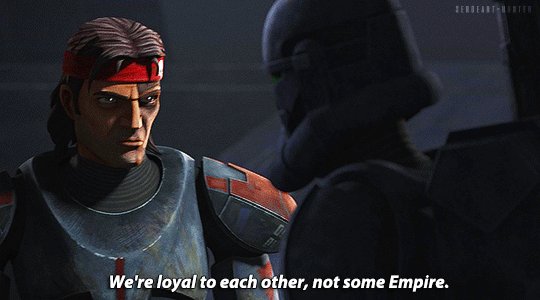
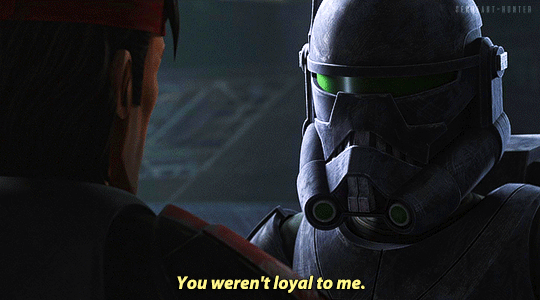
Furthermore, Crosshair tries to take Omega away from Hunter and send her on a shuttle off-world. Hunter pleads with Crosshair not to do it because Omega belongs with the Bad Batch. However, Crosshair says that Omega is in constant danger from living among fugitives like the Bad Batch, and he is doing this for her own good and for the Bad Batch too. Crosshair even tells Hunter to let go of Omega and stop pretending to be something that he is not – a father figure to the child. This argument evokes the metaphoric reenactment of Medea and Jason, where Crosshair is the “Medea” that threatens to take the child Omega away from Hunter the “Jason”. True to Hera’s destructive rage, Crosshair has no intention of killing the Bad Batch despite their alleged treason and their disloyalty towards him. Instead, he kills his Elite Squad Troopers for refusing to stand down.
To grow beyond the Hera archetype, one must recognize Hera’s influence and understand the susceptibilities of this archetype. It is crucial for a Hera person to expand beyond the Hera archetype. They must realize that this archetype at best limits them, and at worst is destructive to them. They must consciously develop other archetypes, which can enrich their life and marriage, and give them the ability to adapt if death or divorce brings the marriage to an end.
Besides that, a Hera person should view marriage as a growth experience instead of an expectation of fulfilment. An insecure Hera person is highly susceptible to jealousy, and they can easily suspect infidelity or feel humiliated by their partner’s inattention. They may alienate their partner with accusations or make their partner be more aware of the effects of their indifferences. Their partner may learn to respond to the Hera person’s needs with compassion. The Hera person must repeatedly decide whom to trust – the suspicious Hera within or their partner. To grow, they must resist Hera and give their partner credit for support and fidelity.
In the myths, Hera has two sons – Ares, the God of War, and Hephaestus, the God of the Forge. Hera favoured Ares, and “like mother, like son”, Ares’s uncontrollable fury on the battlefield mirrored Hera’s uncontrollable vindictiveness. When a Hera person struggles with their vindictiveness and rage, they can transform their rage and pain into creative work by following the example of Hephaestus, whose wife Aphrodite was repeatedly unfaithful to him. Any kind of work, be it mental or manual, can help the Hera person to channel their rage in a healthy manner instead of being consumed and destroyed by it. Crosshair is close to Wrecker, who has a strong Ares archetype. Like Hera and Ares, they both express their rage directly, which is evident in “The Bad Batch” where Wrecker and Crosshair get into a fight with Jesse and Kix. Since Echo has a strong Hephaestus archetype, Crosshair can learn from Echo to channel his rage in a healthy manner.
It is normal for any person to grasp the loss once their partner has left them. For a Hera person, they are likely to believe that their partner will miss them and come back, just like that myth about Zeus and Hera’s reconciliation. In this myth, after a quarrel with Zeus, Hera left him and retreated to the island of Euboea, and there was nothing Zeus could say to change her mind. King Cithaeron then advised Zeus to stir her jealousy by announcing that he was about to marry Plataea, the daughter of Asopus. Then, Zeus arranged a mock wedding ceremony with a wooden statue of a woman that was wrapped up in a dress. Once Hera heard the news, she stormed into the wedding and tore away the dress from the figure, only to discover that it was a lifeless statue. Hera was amused by this prank, and she and Zeus reconciled and returned to Mount Olympus.
This myth provides several psychological elements for a possible reconciliation to occur. Firstly, Hera let go of more than her husband Zeus. She also let go of her hopes that he would change, and let go of the role of victimized, vindictive Hera. After Hera left, Zeus discovered that she was truly important to him. Zeus set up the mock wedding ceremony with a wooden statue to convey the message that each of his affairs had been a symbol to him (like the statue) rather than an important relationship. Hera was amused by it because she finally recognized that no other woman really had mattered to him all along, leading to a reconciliation. Life sometimes follows this mythic happy ending, but most of the time, it does not. A Hera person may see that separation has not changed her partner’s heart. Then, they must accept reality, grieve and move on with their life.
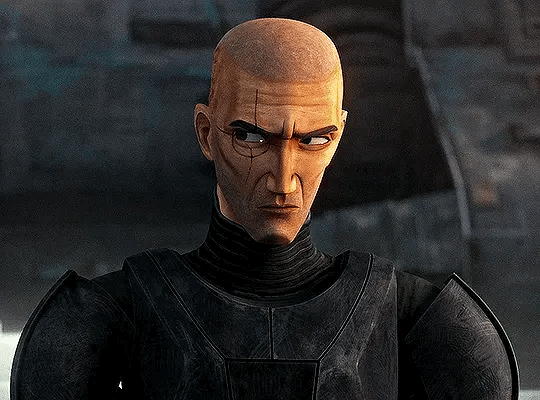
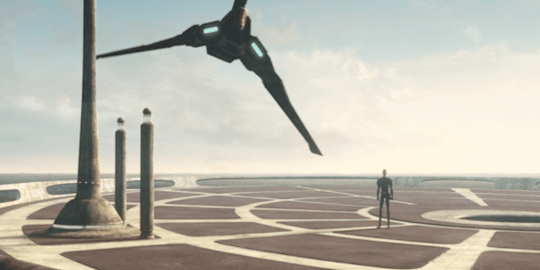
Despite feeling betrayed by the Bad Batch leaving him on Kamino, Crosshair still clings onto the hope that they can be brothers again. He proves his loyalty towards them by killing his Elite Squad Troopers. Then, he offers them to join the Empire as their chance of reconciliation. However, they refuse his offer, forcing Crosshair to face the reality that the separation has not changed their hearts. When Hunter offers Crosshair a chance to rejoin the Bad Batch, Crosshair refuses, claiming that he has made his decision. At this moment, Crosshair lets go of more than the Bad Batch. He also lets go of his hopes that they will change, and lets go of the role of victimized, vindictive Hera. By accepting this reality, Crosshair is able to grieve and move on with his life without the Bad Batch. He stops chasing after them and he lets go of any desire for revenge. Of course, Crosshair is still loyal to the Bad Batch, and this is proven when he lies in his report that they have perished in the bombardment of Tipoca City. He still wants to protect them, even going so far as to send Plan 88 to warn them to hide.
In “The Crossing”, Tech admits to Omega that he does miss Crosshair. When Tech reveals that Crosshair is now under the hands of Dr. Hemlock, Wrecker is surprised that Crosshair has turned against the Empire. Based on his voice, Wrecker is hopeful that Crosshair will come back to them. Tech then pushes the mission to rescue Crosshair because he is their brother, and they do not leave their own behind. Omega, Wrecker and Echo are supportive of the mission, which leads Hunter to give the approval. Their attempt to rescue Crosshair conveys the message that Crosshair is truly important to them.
Since the worship for the goddess Hera was done in a yearly cycle (Hera the Maiden in spring, Hera the Fulfilled One in summer and autumn, and Hera the Widow in winter), there is an archetypal possibility for a Hera person to complete the cycle and begin anew. A Hera person can emotionally “widow” themselves by leaving a relationship or marriage that is empty, abusive or smeared with infidelity. They can then start anew and choose wisely this time. Their drive to be a committed partner can once again be fulfilled in a positive manner as they find themselves in a new relationship or marriage.
Crosshair takes on the archetypal Hera the Widow when conflict arises between him and Hunter, and it gets worse when the Bad Batch leaves him on Kamino. In “Kamino Lost”, Crosshair chooses to emotionally “widow” himself by not returning to the Bad Batch that clearly does not trust him anymore. This is evident when Wrecker, Tech and Echo point their blasters at Crosshair because they think that he is going to shoot Hunter, when in fact, he is going to shoot a grapple to save Omega. Although Crosshair has made a horrible decision to stay with the Empire, he does come to his senses after meeting Commander Mayday. When Mayday is devastated to realize that the Empire disposes the clones despite their loyalty and sacrifices, Crosshair finally understands that loyalty goes two ways. Since this loyalty between the clones and the Empire is only one-sided, Crosshair turns against the Empire. I am sure that once Crosshair is back with the Bad Batch, he can start anew with them and make wiser decisions this time – like he “recycles” himself and takes on the archetypal Hera the Maiden.
Crosshair’s archetype combination is Poseidon, Apollo, Artemis and Hera. These archetypes are opposites to each other: Poseidon is emotional while Apollo is logical; Artemis is independent while Hera is dependent on others. This combination gives Crosshair a lot of complexity: he is both logical and emotional, is an independent spirit but also deeply cares for his loved ones. In Greek mythology, Apollo and Artemis are twins, and they are both archers, capable of aiming their goals from afar. Apollo is associated with civilizations while Artemis is associated with the wilderness. The Apollo-Artemis combination helps Crosshair to accomplish his goals with ease. He works well with social institutions and he has a love for the wilderness. Besides that, the Poseidon-Hera combination is also possible for it reflects the relationship between Poseidon and his wife Amphitrite. Since a Poseidon person is more in touch with their emotions, they may place high importance on their loved ones, especially if they take on the mature Poseidon that embrace their emotionality in a positive manner. With that, a loving Poseidon can satisfy their Hera partner greatly. The Poseidon-Hera combination makes Crosshair an extremely loyal and committed person. He takes great care of his loved ones and he is fiercely protective of them.
It is worth noting that there is one myth where Poseidon, Apollo, Hera and Athena tried to overthrow Zeus, but they failed. They were punished except for Athena because she was the favourite child of Zeus. This myth gives an insight to the relationship between Hunter (Zeus), Tech (Athena) and Crosshair (Poseidon, Apollo and Hera). When Tech decides not to follow Hunter’s orders, Hunter gets annoyed by it but he lets Tech do his own thing. This is evident in “Cut and Run” when Tech decides to get their ship impounded by the Imperials because this is the simplest solution to get the chain codes. Hunter is angry that Tech goes against his plan, but he trusts that Tech has everything under control. He only warns Tech that Omega is on the ship. On the other hand, when Crosshair decides not to follow Hunter’s orders, Hunter immediately shuts him down. This is evident in “Aftermath” when Crosshair keeps shooting at Caleb Dume despite Hunter repeatedly orders him to stand down. Hunter even questions Crosshair about his actions, wondering what is wrong with him. Moreover, in the Hyperspace Stories #10, Hunter probably senses Crosshair’s frustration with the mission they are given, and he mistakes it as Crosshair questioning orders, which is why he reminds Crosshair that they have their orders. All of these seems to indicate that Tech is Hunter’s favourite, and Crosshair is treated like “the middle child” of the Bad Batch. It is also worth noting that Poseidon, Artemis and Hera are all known for their destructive rage that does not spare innocents, and this reflects on Crosshair’s wrath. If you want to live, do not ever get on his bad side.
Despite all four of his archetypes being opposites of each other, they all prioritize on loyalty and commitment, which are Crosshair’s main values. Crosshair is extremely committed to his duty as a soldier, but he is also committed to his loved ones (probably more than his duty as a soldier). He is fiercely loyal to his loved ones, and will do anything to protect them from harm. If you can see through his cold façade, you will find a man who is willing to make tremendous sacrifices to keep you warm and safe. You just need to be patient with him and be kind to him. As long as you are on his good side, rest assured that you will have a valuable friend and partner in Crosshair.
#star wars#star wars the bad batch#the bad batch#tbb#sw the bad batch#sw tbb#the bad batch analysis#tbb analysis#the bad batch meta#tbb meta#star wars clone wars#star wars the clone wars#sw the clone wars#sw clone wars#the clone wars#clone wars#star wars tcw#sw tcw#the bad batch crosshair#tbb crosshair#crosshair bad batch#crosshair tbb#crosshair the bad batch#bad batch crosshair#clone force 99#archetypal psychology#archetypes#goddesses in everywoman
16 notes
·
View notes
Text
One of my favorite pieces of canon continuity is that clones cannot lie for shit


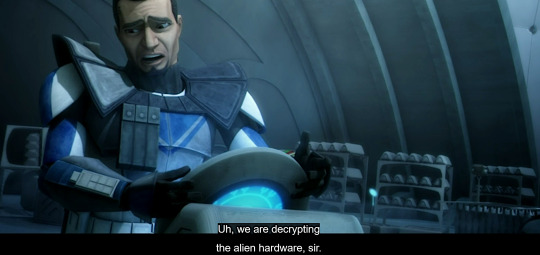
#the bad batch spoilers#tbb spoilers#the bad batch#the clone wars#sw tbb#sw tcw#tbb Echo#arc trooper echo#captain rex#arc trooper fives#clones clones clones#tbb season 3 spoilers#tbb season 3#the bad batch season 3 spoilers#the bad batch season 3#the bad batch screencaps#tbb screencaps#clone wars screencaps#tcw screencaps#tbb s3e14#flash point#tcw s7e2#a distant echo#tce s4e9#plan of dissent#tbb meta#the bad batch meta#star wars meta#ADH-D2's Patented Bullshit
4K notes
·
View notes
Text
Hunter is so obsessed with rescuing Omega, he doesn't notice *he* needs rescuing, too, in a different sense. His prison is not literal like iron bars, it's in his head, limiting his options, diminishing the empathy for the rest of his squad. He's a fallen Paladin who hasn't caught up to his own fall yet; still holding up his belief in family values while sacrificing family members repeatedly. Chasing after Omega isn't even about *her* anymore, it's about the idea she represents. There is this illusion that the family will be fixed and everything will be okay once Hunter has successfully rescued her. That's of course a delusion. Hunter won't rescue anybdoy, least of all himself.
Anyway, I bet Crosshair and Omega will rescue Hunter, not the other way round.
#tbb meta#star wars the bad batch#clone force 99#tbb#tbb spoilers#sw tbb#sw tbb spoilers#the bad batch spoilers#the bad batch hunter#star wars#sw the bad batch#the bad batch#bad batch#tbb hunter#tbb crosshair#clone trooper crosshair#clone trooper hunter#crosshair tbb#hunter tbb#the bad batch crosshair#tbb omega#season 3 spoilers#bad batch season 3#spoilers#the bad batch s3
371 notes
·
View notes
Text
Full Circle - The Return to The Outpost
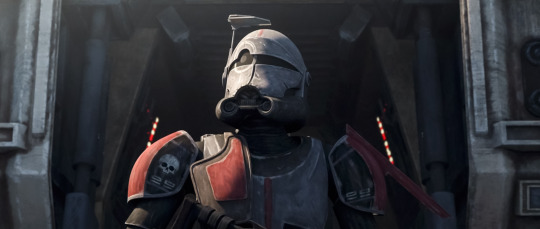
The Return is a masterpiece in visual, verbal, metaphorical, and situational parallel and payoff. We have been waiting for 3 long seasons to see Crosshair and his family come to terms with their choices, reunite, and move forward together, and this episode somehow manages to give us all of it by walking us point by point through the scene of Crosshair’s change of heart—The Outpost. Most likely the themes presented here will continue to be parsed out for the rest of the season, but their fulfillment is begun here.
We start with Crosshair outside of the ship, choosing target practice as a thinly-veiled excuse for avoiding his brothers. He is reunited, but not yet comfortable or fully trusted. In The Outpost, the scenes open with Crosshair outside of the ship on a smoking toothpick break, and he is approached by a Lieutenant who is decidedly not amenable to him. In both instances he is starting to be a little more open, however—his helmet is off, and in the first is listening to a group of regs, and the second, chatting with Omega and letting her show him physical affection.
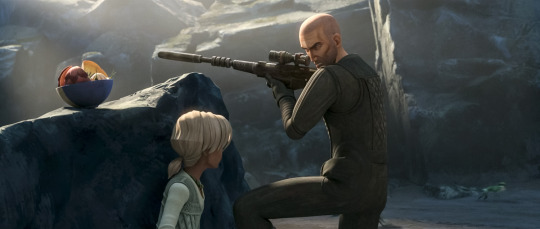
After a reunion on everyone’s part with Echo, who we see fully embrace a hug from Omega, and slip back into familiar banter with Crosshair, we are taken to the dining area on Pabu. This is a callback to the dinner that the main group had when they first arrived on the island, except this time, Crosshair and Echo have come home, and there is an empty chair symbolizing the absence of Tech. This episode shows no other characters besides the Batch (now including Batcher as the best girl that she is). The conflicts and themes in this episode are meant to fully delve into the heart of what makes this family tick.
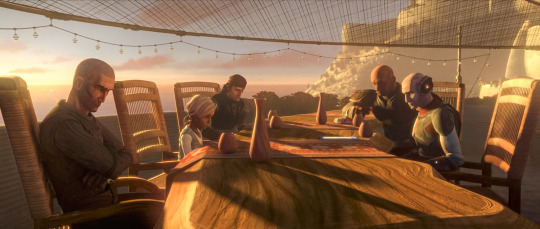
Barton IV is, as Crosshair states, a “remote, understaffed facility. It shouldn’t be a problem to infiltrate.” He can barely hold eye contact with Hunter while saying it, when once he was Hunter’s second. Hunter wants Omega to be safe and instructs her to remain behind, but she is adamant that they should stick together, just like she always has since joining them. Hunter almost looks like he’s going to cry, but he relents to both her demands and Crosshair’s input, although he is still suspicious of Crosshair’s motives.
Before they leave, Crosshair has his original Bad Batch armor returned to him by Wrecker. His old identity and loyalties, kept by his family the same way he never left their hearts. A contrast to his previous mission, where Crosshair and the other clones are considered “used equipment,” and their only purpose is to protect and retrieve the shiny new armor meant for their replacements.
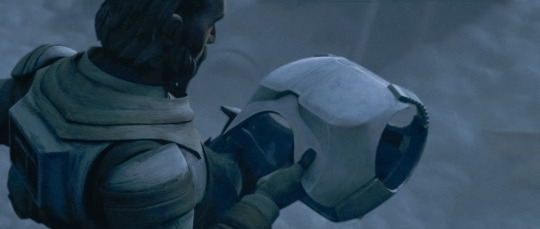
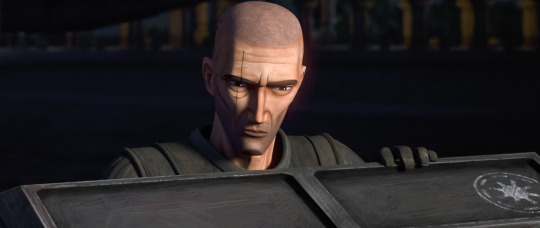
As they make their way to the base, the weather also points to a drastic difference between the two episodes. In The Outpost, the weather is MISERABLE. Cold, stormy, clouded, dangerous. Crosshair’s inner turmoil at that time cost Mayday his life, and broke his allegiance to the Empire. But on their return it is clear, sunny, calm, settled—almost serene (on the surface). Crosshair has thawed and grown as a person, and his emotions appear to be in a much calmer, if somber, place. As they land, Echo states that there are no signs of life on the scanners.
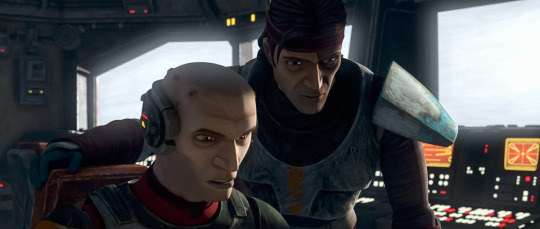
The planet is a graveyard. A memorial. A resting place. Made to dredge up and bury.
A baptism. A resurrection.
They exit the ship, and a vulture shrieks overhead, a reminder of Crosshair’s failures. Crosshair lifts his head to look at it, and his shoulders slump. (There’s an excellent little explanation of the vulture symbolism here.)
Mayday had told him that the vultures are vicious creatures who find a way to survive. They bury the dead and they take the scraps and they clean up for everyone else. They are shunned but beautiful. And they survive. Against all odds.
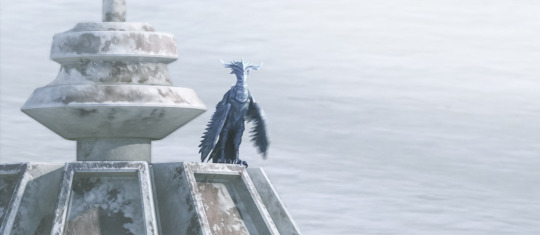
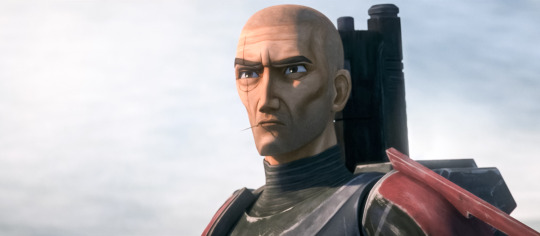
The second the vulture disappears, tension between Hunter and Crosshair begins to spill over. While the others are happy to see Crosshair assuming his old identity, Hunter is suspicious that the planet is deserted yet still heavily guarded by sensor beacons, and rounds on Crosshair demanding explanations. Crosshair has willingly led them to the site of his trauma but he is NOT ready to talk about it yet, and matches Hunter snark for snark. According to him (he should know) the danger (local raiders) has been taken care of. Hunter is even more pissed off as he gets a glimpse of Crosshair’s activities under the Empire, and Omega is disappointed in both of them. Their feelings remain tense and tight as Echo convinces them all to get inside and focus on their mission.
Once inside, Wrecker asks a question that encapsulates the fate of all the clones.
“So why’d the empire abandon this place?” “I guess it served it’s purpose.” “Hmm, sounds familiar.”
This prompts Crosshair to separate from the rest and go to a side storage room, where he first comes across the same heater that Mayday had once carried over to him as a gesture of friendship. It is dark and dead now. A sweep of his flashlight, and an even more sickening sight awaits him. All of Mayday’s troopers helmets, once lined up in a silent memorial, are now in a pile on the floor. And Mayday’s is among them.
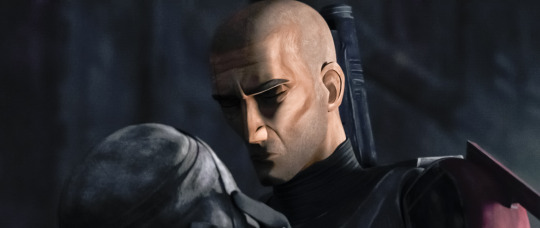
Crosshair must have known this was a possibility, coming back. He isn’t ready to talk about his feelings toward this place, but his face tells us all we need to know about his grief and his regret. He steps over and in reverence, greets the helmet of his friend. He understands now. Loss, grief, death. The burden that Mayday carried. Succumbed to. At the time, Crosshair had merely watched. Now he participates and gives Mayday and his squad the honor they are due. Hunter, who has become more and more suspicious of what Crosshair isn’t telling him, catches sight of his brother honoring a (supposedly) random group of regs, but slips away to not disturb him. Yet.
Crosshair rejoins the others as the sensors are turned off to redirect the power supply, and Batcher suddenly starts acting up. Crosshair takes her seriously, although he is forgetting something important that Mayday once told him—“you’ll freeze to death in that armor—if what’s in the ice doesn’t get you first.” Typically this is Hunter’s job, to be alert to shifts in the environment, but he is so focused on Crosshair “leaving” that he seems to be completely unaware of something stirring outside.
Crosshair walks out both to scout and to process his feelings, and is greeted with an up close look at the ice vulture that has haunted him. He starts to scowl and as the bird takes off, asks “are you going to be my shadow everywhere?” A statement that could hold true for both the vulture and Hunter, who has followed him. And Hunter gets right to the heart of it.
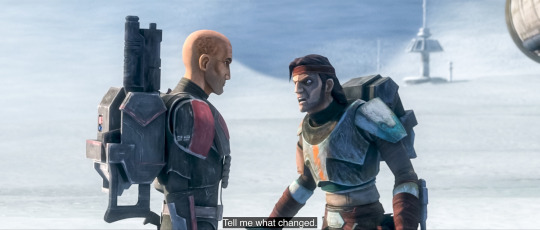
“I know you,” he says. Or I did, before you became someone I don’t recognize. Someone who would betray us and leave. “There’s more you’re not telling us. Start talking. What did you do to get on the Empire’s bad side?” Hunter needs proof. He wants to know how the brother who swore loyalty to the Empire thrice over and stayed on that Kaminoan platform had a supposed change of heart. But he frames it bitterly, believing that Crosshair is simply repeating a pattern—one that had almost made them enemies.
Crosshair’s hand shakes so much that his toothpick slips (like the sharp and pointed wit that often protects and comforts him), and we see a rumbling in the ice. Their emotions are starting to bubble and seethe.
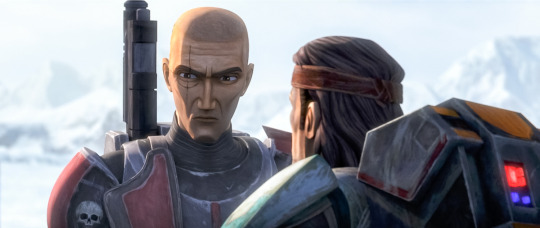
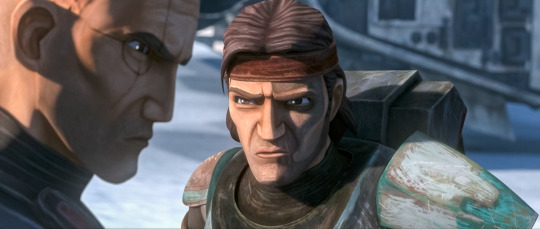
“You thought we’d take you back and not ask questions? I don’t think so.” Hunter is losing his grip on his emotions and physically shoves Crosshair in an attempt to spark the fight. His face is drawn, angry, and anticipating hurt.
Crosshair remains remarkably calm, not even necessarily wanting to make an argument out of it, but he eventually responds to Hunter’s indignation with his own. And this time he doesn’t hold back. He starts at the end, admitting he killed an Imperial officer, but holds the tender explanation of why close to his chest still. Instead he tells Hunter what he thinks he wants to hear—that his betrayal of the Empire mirrors his betrayal of the Batch. Except Crosshair adds his own perspective—that he only betrays after feeling like he has been betrayed first.
Hunter doesn’t have time to ponder that information as Crosshair now unleashes the root of his own turmoil onto him—and he knows how to hit Hunter where it hurts. Where he’s failed.
“I risked EVERYTHING to send you that message! You ignored it. You let Omega be taken to Tantiss.” The hurt blooms on Hunter’s face. “You failed.”
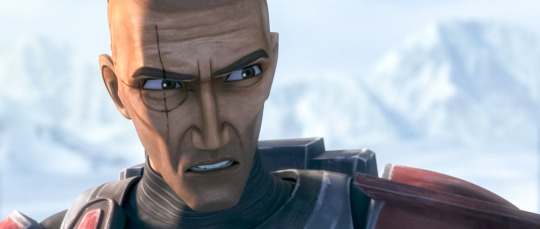
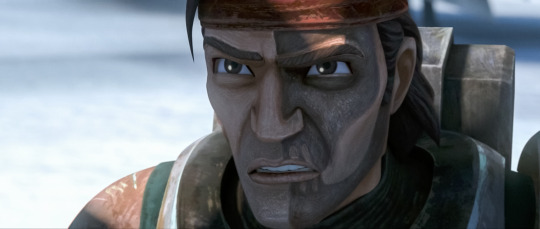
Crosshair isn’t even concerned about what happened to him on Tantiss. He’s concerned about Omega. And he knows that fact will twist Hunter’s gut in ways nothing else can. Hunter is their leader. He by default bears the blame of what happens to them, even though his squad makes their own choices freely. Crosshair doesn’t want to let him forget it. Hunter never lets himself forget it either.
Both men only know their own sides of the story. And it’s tearing them apart.
They’re ready to trade blows but their attention is pulled back to their family and larger circumstances by Batcher barking. Hunter finally realizes where their emotions have brought them, but it’s too late. The snow erupts from a giant wyrm creature, no longer kept at bay by the high-pitched hum of the sensors. No matter the gulf between him and Crosshair, Hunter’s first priority is to shove him away screaming “move!”--echoing Mayday trying to save Crosshair during the avalanche. They fall to their knees and the ground splits between them. They barely make it back to the base as the symbol of their outburst chases them across the snow.
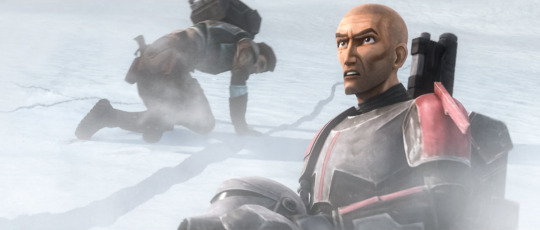
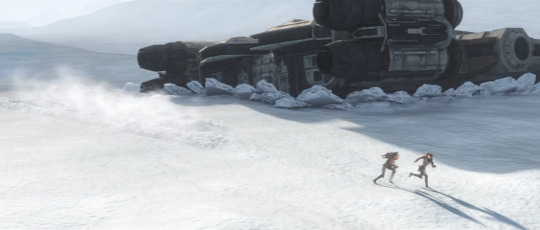
Plans are made. The squad won’t be safe until this threat is dealt with. Each member volunteers their strengths. Hunter is in mission mode now, his face open, and extends an olive branch after his brother offers to shoulder the burden of leading the creature back beyond the perimeter alone. “We’ll do it together.” But now it’s Crosshair’s turn to be suspicious. Will Hunter really trust me again? Can I trust him?
The creature follows them. Disaster strikes. Hunter shrieks and falls below the ice. All animosity gone, Crosshair rushes to him, panic lacing his voice. Hunter! I can’t lose you the way I lost Mayday, buried beneath the snow.
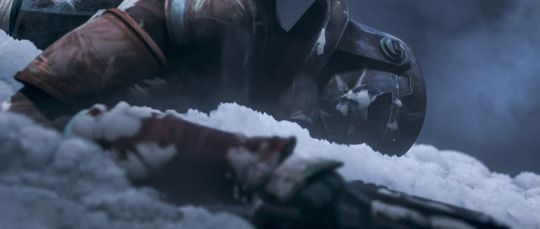
And now, it is Hunter’s turn to tunnel into the darkness below the ice and face everything he’s been running from. Shot for shot, Crosshair has already been on this journey, already faced himself, his fears, his failures, down there. They can’t reconcile their perspectives, because Hunter has yet to do the same. Hunter commits to making sure that the wyrm is led away from his family, putting himself in harms way to make sure they stay safe. However, he has a safety line—Crosshair and Batcher up top, tracking him, covering for his usual role.
“We found a weak point in the ice. We’ll try to dig through.” “You’ll try?” Their old banter makes a hesitant appearance. Hunter is still running. Crosshair is willing to try, as long as that effort is acknowledged. But despite their words, they hope that they won’t let each other down this time.
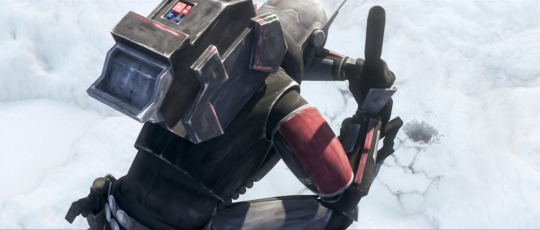
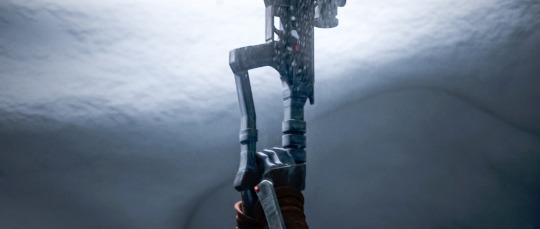
“Am I going to have a way out or not?” “If you end up where we hope you do.” Hunter needs reassurance of an outcome first. But Crosshair reminds him that he is the only one who can plot his path, and its consequences. Hunter has to take responsibility for his own journey. The way out of this predicament hinges on how far, and where, Hunter lands. And he won’t take shortcuts, even when Crosshair begs him to go ahead and exit the tunnel once they find each other. He begged Wrecker to get Tech back onto the railcar. This time, he’s in the trenches himself.

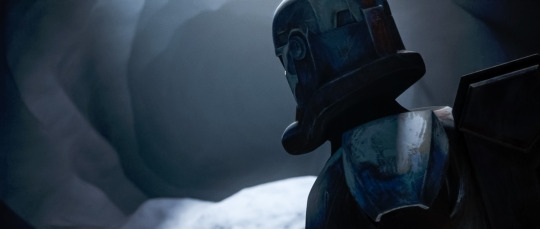
Tuned into his senses again, Hunter still doesn’t jump even as he feels the wyrm get closer, until the sensors are reactivated. Finally, he accepts Crosshair’s to help pull him out of the literal mouth of danger as the worm barrels into view. And they run again, leaping to safety just in time, having accomplished their mission. The wyrm is now harmless, roaring at them from the other side of the perimeter, chastened until it finally slinks away.
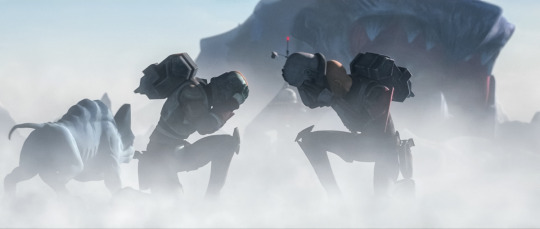
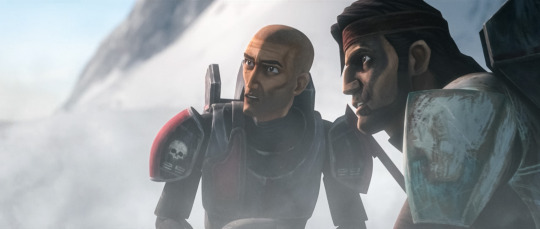
The boys collapse, share a fully open look. All they need now is a nod. They have each others’ backs. Approval, gratitude, and trust now have space to grow. They are brothers again.
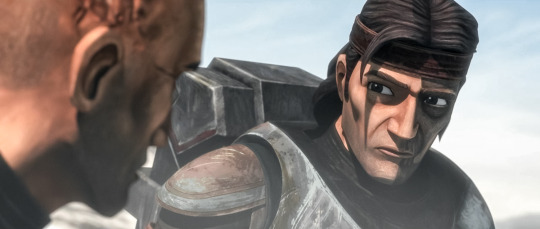
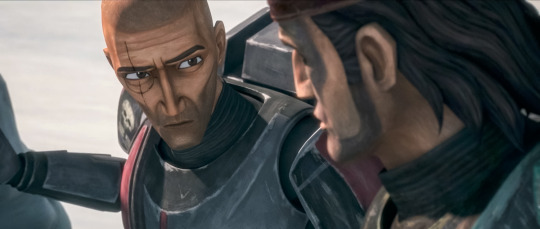
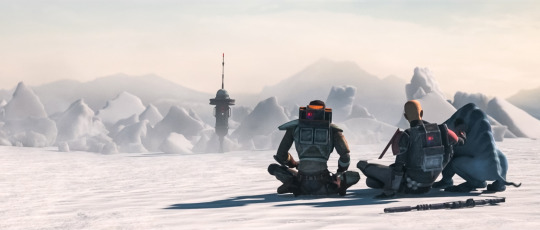
And Crosshair gets a redo of his trek back to the platform, except this time, instead of Mayday dying in his arms, Hunter is by his side, unharmed, and Batcher prances alongside them. Instead of silent TK Troopers and the insolent sneer of Lieutenant Nolan, they are greeted by Echo and Omega’s shining faces, and Wrecker running to meet them (and hug them. We all know they secretly loved it.)
(Side note: both Crosshair and Hunter have shown self-sacrifice on behalf of someone else in these parallels. Behind the scenes, Echo and Omega have a conversation that hints at the fact that Omega might be contemplating the same. The outcome of the guilt and confusion shadowing her even while Crosshair returns to the light remains to be seen, but it does not bode well.)
The episode could end here. But it doesn’t. Now the real conversations can begin. It’s late in the evening and they have dug their ship out in order to depart. Bathed in warm light, Crosshair is finally ready to open up, at least a little, although he can’t face Hunter in the process.
“I thought I knew what I was getting into with the Empire.” Owning up to his perspectives, not shifting blame. It was a choice he made. “I’ve done things. I’ve made mistakes.” Ones that he regrets. Crosshair's default is still to paint himself in the worst light possible when trying to reconcile with someone, in the hopes that the darkest parts of him will be accepted. He so desperately wants to be accepted for who he is, even when he knows he has done terrible things, and maybe especially, because he hasn't fully forgiven himself for them yet. So he tries to shock and hurt in the hopes that either his inner self-loathing will be corroborated, or his need for forgiveness can come from an outside source.
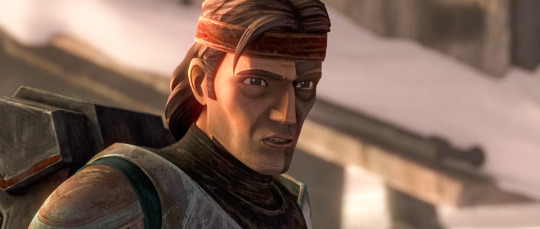
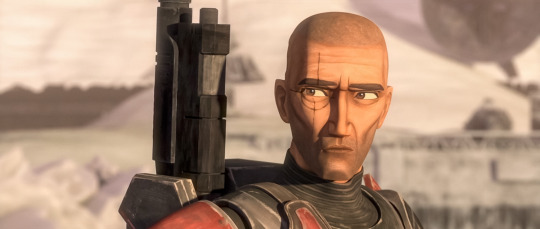
And Hunter does forgive him, and doesn't even dwell on the many, many things he could blame Crosshair for, now that his own anger has passed. He acknowledges that he has regrets too, gives an even playing field by saying that none of them really had full information of what was going on when their separation first began, and extends solidarity in the best way he knows how.
A smoothing of the path behind, and a glimpse toward the path ahead. He doesn't know what it holds either, but he's willing to walk it together.
And I think their choice of words is what they needed from each other. Hunter needed to know how Crosshair viewed his own actions. Crosshair needed to know how Hunter felt about the consequences, both those caused by him and those caused by Hunter’s own choices since. Hunter has always questioned his brother’s perspectives—his mind. Crosshair has always questioned his brother’s heart—his loyalty. Their strengths--and also their weaknesses.
“All we can do is keep trying to be better. Who knows? There might just be hope for us yet.”
And for now, it’s enough. Crosshair looks into the sky, watches the ice vulture flying overhead once again, except this time, it flies off into the sunset, leaving him still mournful, but slightly more whole than when he first arrived.
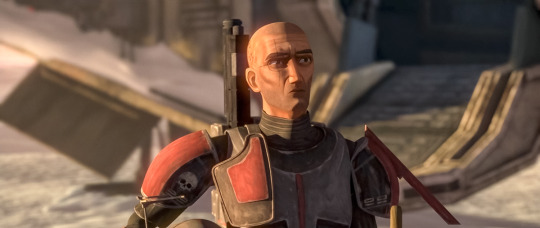
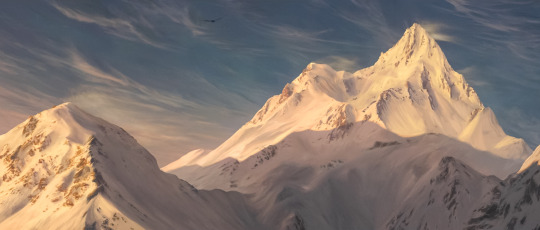
✨ Tag List ✨
@drafthorsemath @freesia-writes @sunshinesdaydream @the-bad-batch-baroness @heyclickadee @the-little-moment @ladyzirkonia @jedizhi @burningfieldof-clover
#the bad batch#tbb#star wars#crosshair#crosshair bad batch#tbb crosshair#tbb spoilers#the bad batch spoilers#hunter#hunter bad batch#tbb hunter#the return#the outpost#tbb meta#the bad batch meta#long post#some light ramblings#somelightramblings#some light edits#somelightedits
155 notes
·
View notes
Text
Shout-out to Nala Se
It won't be a popular opinion, but here's a moment of appreciation for Nala Se! Or rather, A Tale of Two Bitches.
Bitch No. 1 here is karma. Fandom rightfully hates Nala Se for her role in Fives’s tragic fate. But outdoing herself in keeping the chips a secret, Nala Se helped Palpatine's ascend and subsequent genocide of her people.
She had her good moments, too. She refused to leave the medical station and her patients in the Malevolence arc. She protected Omega—true, while cooperating in enhancing Crosshair's chip. Though, most probably, the choice was between enhancing his chip and proving to Tarkin that the members of Bad Batch aren't totally useless or letting him just get rid of all of them.

But in Tantiss Nala Se proved herself to be an awesome badass bitch! First, bluntly refusing to cooperate, unlike the Kaminoan politicians: you exterminated my people, what worse can you do to force me to cooperate? Then, quietly but persistently protecting Omega on, it seems, a daily basis for half a year. And, finally, point blank lying to a space wizard of immense power, a cunning manipulator who double-crossed the whole galaxy, the most powerful person here—still, tricked by a quiet Kaminoan woman who had the solution to his problem by her side all this time, and nobody even suspected.
God, she is so underappreciated!
129 notes
·
View notes
Text
So I was speaking to my 8 year old this morning about tomorrow being another 'Bad Batch day' (he's very excited), and I wanted to share his opinion on it, as, let's face it, this is a show marketed to kids and teens as a primary audience.
Me, being 34, LOVE it and recognise the emotional depth, but considering it won Best Children's Show previously, it sits squarely in that audience age range.
So I asked him what he thought was going to happen in the next episode.
His response:
'They're going to get back together and go to find Tech'.
I reminded him that Tech fell in the last season, and that it's been 6 months in the show since that, and he said something which made me smile:
'But they're all going to have to be together at the end! That's the way it works.'
I know he's only 8 and he's still learning about life and fairness and what that all entails, but if an 8 year old can have hope, I think the rest of us are allowed!
#the bad batch#tbb#tbb meta#tbb theories#tbb spoilers#tbb s3#the bad batch season 3#bad batch season 3#bad batch season 3 spoilers#tbb tech
100 notes
·
View notes
Text
Okay, let's talk about the accusation that the last two episodes were "filler" the most overused term in media critique.
Filler episodes were originally for anime that needed to make up an original plotline while they waited for the manga they're adapting to get ahead of them.
It later began to refer to entirely self-contained episodes that have no plot importance. Like a one-off trip to the beach that no one mentions again.
Then it referred to ANY episode that didn't move the main plot forward.
NOW it refers to episodes that DO move the plot forward but don't resolve it completely.
We've reached peak nonsense.
The past two episodes covered them finding their way to Mt. Tantiss and has now gotten them on the way.
"But the Bad Batch could've found their way to Mt. Tantiss two episodes ago by having Crosshair plant the tracker!"
Yeah, and Tolkien could've had Frodo walk through the Black Gate and straight up to Mordor. How anti-climactic would that be?
How dumb it would it be for tbb to just find the super secret planet and go there instantly. Everyone would be calling that contrived writing. The Bad Batch having to hitch a ride on an imperial shuttle, not knowing where they're going, not being able to organize an attack, and not having an easy way back is SO MUCH more interesting than them just, knowing where to go and having all the time in the world to plan an attack.
This way it's an "all or nothing" operation on an unfamiliar terrain.
There's not a story on earth that doesn't have "filler" if we go by the modern definition of the word. Frankly, I think it's mainly used nowadays by review channels when they're mad they don't have enough clickbait for their review video.
79 notes
·
View notes
Text
Why Crosshair Will Live
(aka an essay by a Crosshair girlie who loves her clone husband too much)
So, I've been thinking long and hard about the final season and how it could end. Obviously, it's gonna be an emotional rollercoaster and all that. However, there's always going to be discourse about who's gonna bite it, especially since our main characters don't have plot armor and this show is allowed to go way darker than Rebels. Crosshair is my favorite character and I don't hide that at all. He's all over my page. But looking at his character, there's a part of me that believes he actually might make it out in one piece. Let's get started!
"Redemption Equals Death"- Out of all the tropes, this is the one Crosshair embodies the most. He was the villain for a season, but now he's changing his ways. In past seasons, I would've said this is how his story ends. His brothers find him and Omega on Tantiss and he goes out protecting them, proving he deep down he still loved them. But after season 3, I don't think that's the case anymore. I think he's passed the point. Crosshair in season 3 is actively redeeming himself through his actions and words with his family and the other clones. We don't need to see him go out in some big self-sacrifice because we already see the person he truly is inside. More importantly, his family sees the person he's become. He's already proven it in so many ways. Crosshair openly admitted his mistakes, saved Hunter from the wyrm, is very protective of Omega, and saved his brothers, Omega, and Rex + Howzer from CX-2. At this point, Crosshair has passed the "redemption equals death" marker. His redemption is playing out and the people around him are seeing the changes.
His Character Arc- Crosshair's character arc has always been about loyalty and identity. Go all the way back to season 1 with the infamous "this is who I am" line and his whole spiel about the Batch not being loyal to him. "Aftermath" shows us this poor man already beginning to struggle. In season 2, Crosshair is going through every hurt no comfort fic trope in the book. This man was pushed to the brink, with every sense of his being questioned. And he almost didn't make it. Crosshair in "The Outpost" was so close to dying after trekking through the blizzard and shooting Nolan. He's suffered through so much already from being severely burnt to freezing, and now almost drowning. Pretty much half way through season 3 and Crosshair's trials aren't over. His hand is still bothering him and he's still trying to find himself.
Although Crosshair has made peace with his family, I believe he still needs to make peace with himself. He's been humbled sure, but there's more to go. Who is he if he isn't a soldier or sharpshooter? Crosshair's arc will probably finish with him realizing being a soldier isn't entirely who he is. His hand tremor still could be related to his internal conflict, we don't know. So far, he's doing a great job. We've seen Crosshair begin to find peace on Pabu and comfort with Omega. It would be so satisfying to see him make it out of this mess alive. My best BB ending would be him (and his brothers) alongside Omega retired somewhere. They have each other and that is enough.
His Poster and Theme- Crosshair is the only character as of right now in the Batch who has a separate poster for season 3. Not even Omega has a separate one (although I can see her getting one later). In fact, Omega shares her with Crosshair. Both are wearing their prison outfits, showing their shared situation and stand against a white/grey backdrop. We also see Cross gripping his right hand, referring to the issue he's having with it. However, he also has one of himself in the same golden lighting as his brothers. Crosshair stares at his helmet with a calm look on his face and appears to be contemplating. That has to mean something. From my POV, I get the sense he's wondering about who he is. Wouldn't it be a great ending if Cross finds himself and lives to see that self be happy?
He is also the only member of the Batch (Omega aside) to have his own theme/leitmotif. He has two actually: his Imperial one and his heroic one. His heroic theme aka the "Mayday" theme is stunning and highlights his struggle perfectly. You can actually hear it in season 1 fun fact but it's faint. The fact that he does have a separate poster and theme from the others does give me hope that he will make it. Not to say that the others aren't important, but something about Crosshair and his journey is very meaningful to have warranted this. You can argue that he shares the title of "heart of the show" to some degree because his arc is the most dynamic of all the Batch. His struggles and fight back towards the light truly raise this show to greatness.
Crosshair is also season 3's "Batcher of Year" award and so far, they're doing everything we wanted and more. For two whole seasons, his character has been building and building towards this season. And they better give us a great payoff. Crosshair's character going to continue to soar as the season progresses. I can definitely see him making it through to the end because of the focus on him.
Omega- how can we forget about the kid who never gave up on our grumpy sniper? Omega (and we can argue Cross to a lesser degree) is the heart of the show. She gives the Batch a new outlook on life and it is through her that they grow and change. Omega brings out the paternal and softer side in each of her brothers. Crosshair, however, takes a bit longer to get there. He's the only character whose main development happens away from Omega. When he finally gets home, he becomes Crossdad. But Omega is still a kid, despite her capabilities. If the other Batchers die, who will take care of her? Omega being on her own just doesn't feel right. We also know going off with Rex wouldn't feel satisfying either even though he would take really good care of her.
Now that Crosshair is back, it feels like the show is propping him up to take over Hunter's role. Hunter parented for 2 whole seasons. As the mentor figure, he might bite it. But wait! Crosshair is still here. There is no way the writers would just let Omega finish alone or get killed off. She will have someone with her. Crosshair, having spent the majority of the show away, will probably be the best candidate narratively speaking. As mentioned above, he gets two posters showing just how integral he is this season. He's also been getting a lot of screen time with Omega. So, I can definitely see the show ending with just the two of them left. It would be bittersweet, but still satisfying.
Disney- let's ask the question: would Disney kill off an entire family aside from their child? My best guess is no (this isn't a Disney movie with a prince to save the day). Tying into my last point, I can't see this family-friendly company letting a literal child lose her entire family and end up all alone in the end. We all saw Rogue One and we know that this is a plausible option. However, I'm beginning to think that they aren't gonna do that because again, Omega is a child. She's gonna hopefully have one, if not all, her brothers alongside her. And I swear, if they give her to someone else not named Crosshair, Hunter, Wrecker, or Echo, I will blow a gasket. She needs her family. Disney and Star Wars is all about hope and it's not very hopeful to me if all of the BB but Omega dies.
Rebuttal- let's get this out of the way: if Cross dies, it will be with his brothers, protecting Omega, and defeating Hemlock. There is literally no other way he could go out that would be satisfying. He's redeemed and fought the Ghost of Crosshair's Future (aka CX-2). Backpedaling on his character arc would suck. If he dies, it will be as a Bad Batcher, a loving brother, and the best sniper the galaxy has ever seen.
But I don't think that will happen. I do genuinely think Crosshair has a chance to survive. But what do you guys think? Obviously, I'll still be nervous about the whole thing, but I'm trying here.
#star wars#the bad batch#tbb crosshair#please guys just let me have this#crosshair will live#im manifesting this right now#he will be ok#he and omega will be together#and all will be well#jennifer do you hear me#let's get our prayer circle and hold hands#tbb omega#tbb meta#tbb analysis
92 notes
·
View notes
Text
Clone Force 99, nicknamed the Bad Batch and designated as Experimental Unit Clone Force 99, was a clone commando special forces squad that was active during the Clone Wars. The squad initially consisted of five clone commandos that were designed with genetic mutations:
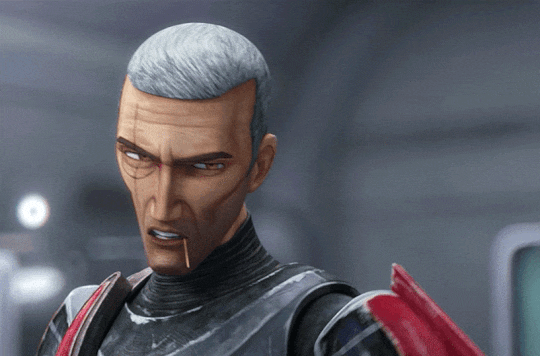
Crosshair, formerly designated CT-9904, was a clone commando who served in the Grand Army of the Republic during the Clone Wars as part of Clone Force 99. Crosshair possessed genetic mutations that gave him exceptional eyesight and marksmanship skills. As a result, he acted as a sniper and a long-range combatant.
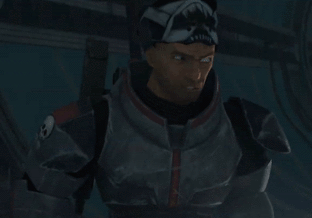
Wrecker, formerly designated CT-9903, was a clone commando who served in the Grand Army of the Republic during the Clone Wars as part of Clone Force 99. Due to genetic mutations, Wrecker was much larger and stronger than the average clone trooper. He loved blowing things up, and served as the muscle and demolitions expert for his squad.

Tech, formerly designated CT-9902, was a clone commando who, as a result of his genetic mutations, served as the brains of his squad and was a valued asset in this regard, using his high intellect and mastery of technology to ensure their operations were successful. Even so, he was no less skilled in combat than the other three members.
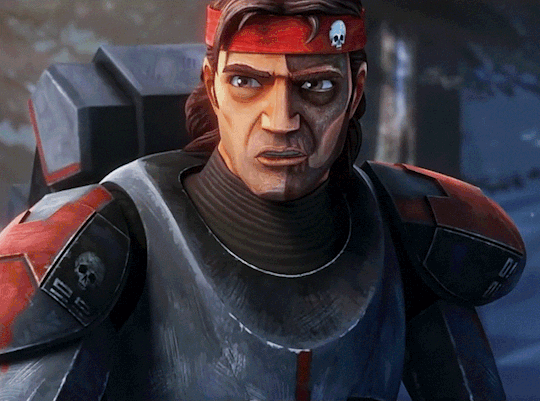
Hunter, formerly designated CT-9901, was a Clone Sergeant who served as the commanding officer of Clone Force 99. He was genetically altered to have heightened senses and was able to sense electromagnetic frequencies from anywhere on a planet.
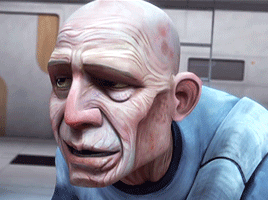
Ninety-Nine, formerly designated CT-9900, was a clone who suffered errors during the cloning process. His mutation was intended to provide him with an accelerated healing factor; while he did indeed heal wounds almost twice as fast as his brothers, his healing factor mutation unfortunately caused him to suffer severe progeria as a result of enhanced cellular turnover. Due to his valuable stem cells, bone marrow, and blood---which showed temporary improvements in wound healing speed in troopers who received transfusions---he was not terminated, and was instead removed from his squad at an early age and assigned maintenance duties. He was killed assisting Domino Squad in the defense of Kamino in 21 BBY.
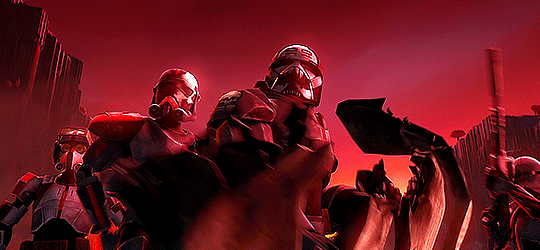
The four surviving members of Clone Force 99 named their squad in honor of their fallen brother.
#the bad batch#the bad batch headcanons#tbb#tbb hunter#tbb crosshair#tbb wrecker#tbb tech#hunter#crosshair#tech#wrecker#the bad batch meta#tbb meta#my writing#sorry i've been obsessed w this hc since february#bad batch eve
90 notes
·
View notes
Text
I understand why people are upset that Ventress didn't really 'add anything' but to be honest I really liked how vague they kept it.
It's realistic. Ventress wouldn't know anything about m count experiments, and if she did her Intel would have been based on the clone war - I don't think she would've known anything about Project Necromancer considering there's a lot of security and it also seems to be a newer project.
I think Ventress answered the Jedi question for us very clearly - Omega isn't a Jedi. She could have the potential (I guess like Sabine - someone with low aptitude but can be pushed into Jedi status with the right training?) but that's not why the Empire is after her midichlorian wise.
I am really looking forward to seeing how they explain her blood, I think they're really tapping into Kaminoan/Clone centered experiments and lore which is so REFRESHING
I honestly feel like in the Clone Wars series and the Bad Batch too we are always getting CRUMBS on what life was like on Kamino, the extent of the experimentations and lack of commentary on just how BIZARRE the clone army really is. There were millions of them commissioned on some Jedi 'Vision' and they barely lasted a generation (10 years to make, 3 they served in the war(?))
We are only really seeing the aftermath experimentations with the new dark trooper clones (idk the name sorry) but I am so looking forward to more clone lore (especially about female clones like emerie and Omega!!)
87 notes
·
View notes
Text
Three antagonists, three distinct attitudes, all representative of what the Empire stands for as a whole
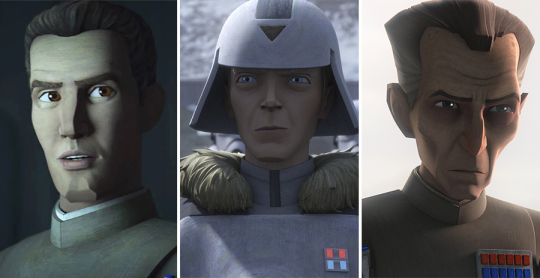
I wanted to take a moment to appreciate what a good job TBB has been doing with its antagonists so far, especially our three imperial officers here. A good antagonist is so important to a good story and I love how each of these characters has a distinct feel about them even though they’re all meant to represent the Empire’s worst qualities. (Yes, Hemlock isn’t included here. That guy's a whole new category of yikes.)
Tarkin: ruthless authoritarianism
Tarkin is the perfect representation of unfeeling single-minded power. He's willing to go however far it takes to accomplish the Empire's goals, eradicating all that stand in its way or dare to oppose it. He hated the jedi for their reluctance to go against their moral code and their unwillingness to bend to the Republic’s will and he hates the clones for much the same reason.
Tarkin believes that nothing should stand in the way of victory. He is the face of a regime that tolerates no opposition, no hesitation and no failure and shows no inhibitions when enforcing those rules.

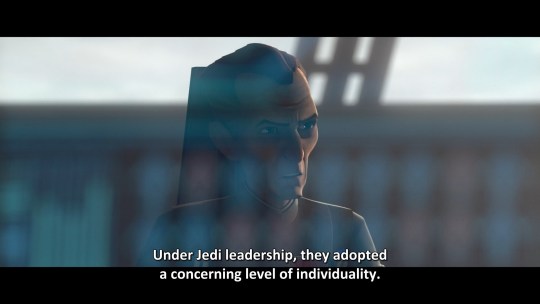
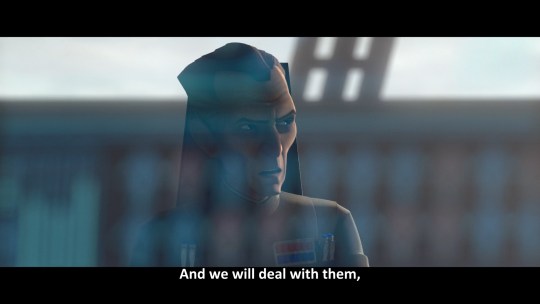

Morals and human lives are meaningless when the interests of the Empire are at stake.
In a way that simplicity is what makes him so intimidating – his is a straightforward but absolute point of view. That’s scary as hell when it belongs to someone with so much power.
Rampart: calculating ambition
Unlike Tarkin, Rampart represents those that see power as an end rather than a means to one. He’s the rank climber. The smarmy bootlicker. The ambitious overachiever who’s willing to make concessions in the name of success.
We learn that the implementation of chain codes was his initiative. That he’s the one behind project War Mantle. We see how animated and obsequious he is when talking to Tarkin only for him to show his true (dismissive and arrogant) colors to those he considers his subordinates later.
He readily uses and manipulates those he can use for the sake of his own personal gain. This could be the renegade batch or Crosshair to whom he's open about his doubt in regards to his loyalty and that’s where he and Tarkin differ.
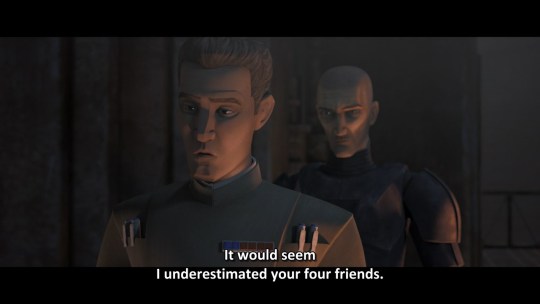

He’s dangerous because he is cunning and his cunning allows him to exploit the opportunities the Empire has to offer. He may or may not care for the system itself, but he certainly cares about what it can do for him, which is why he works to further its cause.
It's the kind of self interest that has little regard for morality. Rampart isn’t tolerant of anything that threatens his reputation and by extension his chances of success and he will dispose of anyone who isn’t convenient to him.


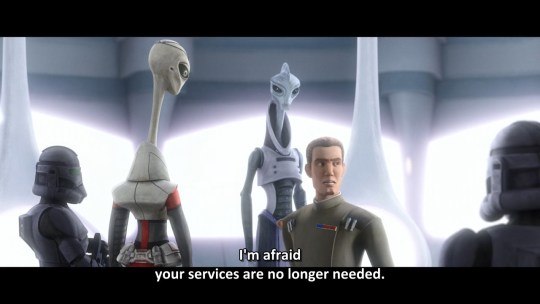


Which makes it all the more ironic that he himself was disposed of when he became inconvenient to the Empire.
Nolan: bigoted loyalty
If Rampart was the calculating opportunist, Nolan is his (even more) despicable counterpart. He’s the small insecure man who nonetheless profits from his political alignment, not because he’s competent but because he’s a good little imperial henchman and it gives him a sense of importance.

All in all, he’s the precursor to all the bumbling imperial officers we see in later star wars media, who stand not on merit but on selling themselves to a regime.
A man who cowers at a little turbulence
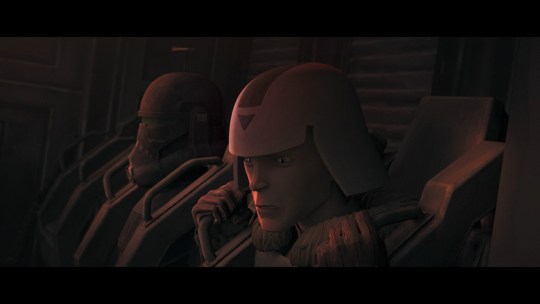
and has no experience under his belt and yet touts his rank and considers himself better than the clones.
He’s the typical bigot who tramples over others – resorting to derogatory labels (such as 'used equipment') and treating them as less than human – just because he can and because it gives him a power high.
If Rampart saw the clones as a resource that could be used to the very end, Nolan sees sparing medical supplies for one as a ‘waste of resources’. Which is bullshit of course. But prejudice is pretty bad at pretending it’s logical. And the show does a good job of showing us the various little pathetic excuses it tries to hide behind.
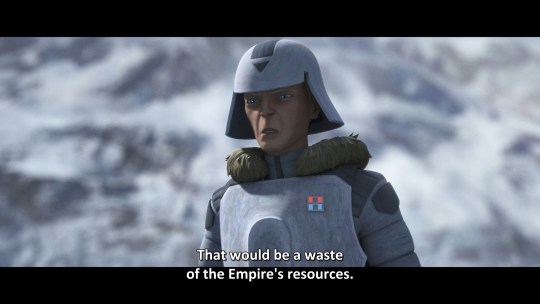

(I thought I couldn't hate this guy more and yet I somehow managed it after writing this lol.)
#tbb#the bad batch#tbb meta#admiral rampart#wilhuff tarkin#lieutenant nolan#tbb rampart#grand moff tarkin#tbb season 2#my meta#honestly I wanna hear you guys' opinions too#I have a feeling we all hate nolan the most#tarkin and rampart are more on the scary side#nolan is just begging to be prevented from reproducing (good job Crosshair)
271 notes
·
View notes
Text
Crosshair's Innate Archetype (Part 1)
This is the sixth instalment of my Bad Batch analysis. This character analysis has two parts: innate archetypes and anima. I will be referring to “Gods in Everyman” by Jean Shinoda Bolen for this first part analysis. This innate archetype analysis is split into two parts.
Part 1 | Part 2
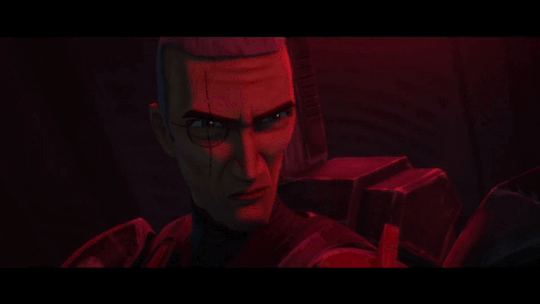
Crosshair has two main archetypes: Poseidon and Apollo. His innate archetype is Poseidon, or Neptune as the Romans called him, and he is the God of the Sea. He is linked with tidal waves and earthquakes; hence, he is called Flood-bringer and Earth-shaker. He is bad-tempered, violent, vindictive, destructive, and dangerous, and these characteristics are represented by tempest, turbulence and the raging sea. However, he can also calm the sea – storms instantly stop when he drives his golden chariot drawn by white horses over the waves, and sea monsters play around it. The sea is the realm of emotions and instincts, and it is part of the unconscious. The shallow water is where personal and readily retrievable emotions and memories can be found, while the deep sea is where repressed personal feelings and instincts reside, and it is the emotional realm we share collectively. Underground water represents the deep introverted feelings that are unexpressed and unseen.
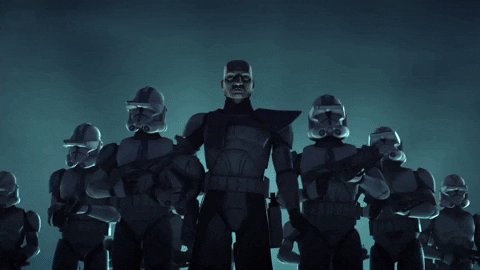
All clones have the Poseidon archetype as their innate archetype because their donor Jango Fett is innately Poseidon (Mandalorians generally have Poseidon as their innate archetype). However, this archetype is generally diluted as clones are genetically modified to be more compliant and docile. Besides that, their military training also further dilutes the effect of this archetype. Nevertheless, their Poseidon archetype motivates the clones to seek their individuality. Hence, this archetype is expressed through them in different ways such as having individual names, wearing customized armour, and sporting different hairstyles and tattoos. Even with the desire to be unique individuals, the clones also value honour, loyalty, brotherhood and community, which are all values of Poseidon. Surprisingly, these values are also upheld by most Mandalorians and the people living on Pabu.
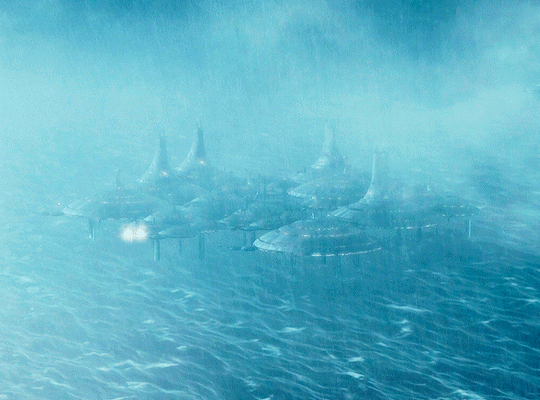
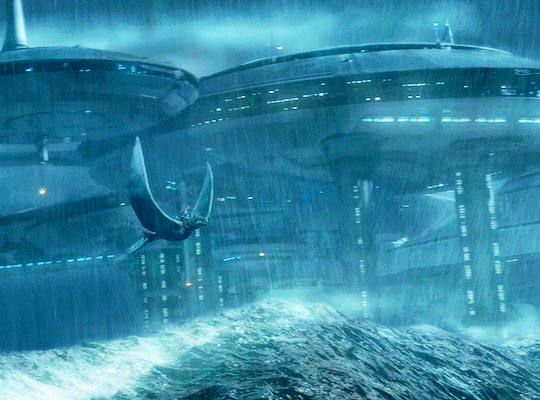
Kamino is a remote planet covered by the ocean after the Great Flood. Instead of petitioning aid from the Galactic Republic, the Kaminoans use genetic engineering to adapt their genetic codes, flora and fauna to the new watery environment. They also build their cities in higher land and on stilts. There is an abundance of life in the ocean such as the aiwhas, the Kamoradon Sea Dragon, fish and krill. The planet often experiences heavy rain, and some parts of the year is covered by heavy electrical storms. Kamino is the home of the clones. Their donor Jango Fett did live there for 10 years as he oversaw the training of the clones and raised his unaltered clone as his son, whom he named Boba Fett. Surrounded by the ocean and sea creatures, Kamino is in the realm of Poseidon, and anyone familiar with this planet are usually innately Poseidon. I believe that the Kaminoans are innately Poseidon, especially before the Great Flood. They use science and technology to adapt and survive through the environmental changes. However, once they start using genetic engineering to better themselves, they end up suppressing the Poseidon archetype. They perceive this archetype as no longer beneficial after the Great Flood, and it should be left in the past, submerged in the ocean like their old infrastructure. They become generally expressionless, which can be a sign of being “cut away” from the realm of emotions. The monotone and sterile environment in Tipoca City shows how much they have supressed this archetype. In Legends, the Kaminoans used to be expressive and they had a dance called Nahra where they would display their emotions, which is now frowned upon.

Almost all clones started off with a diluted Poseidon archetype and it is maintained through military training. Of course, there are exceptions like the Domino Squad, whom they have expressed their individuality when they were cadets. Once the clones leave Kamino and join the war, their Poseidon archetype gets cultivated. How much this innate archetype gets cultivated depends on many factors like the environment, the experiences, the people they are surrounded with, etc. For example, clones who are assigned to Anakin, Ahsoka, Obi-Wan, Yoda, Plo Koon and Shaak Ti have their Poseidon archetype being cultivated positively because they are seen and treated as individuals, not expendables. On the other hand, the clones who are assigned to be Coruscant Guards have a minimal cultivation of the Poseidon archetype as their loyalty to the Republic usually supersedes their loyalty to their fellow clone brothers. Clones who have survived through various battles will have greatly cultivated their Poseidon archetype.
As the god of the sea, Poseidon can plunge into the watery depths and stay under the sea as long as he wants. He can also rise swiftly to the surface by commanding his horses to pull his chariot. This makes Poseidon the archetype of the deep-sea diver. A person who identifies with Poseidon can dive deeply into the watery realm of emotions and stay there as long as they want to. They can feel all sorts of intense emotions that can take the forms of great beauty and monsters of the deep. They can dive so deep to the point that vision must be abandoned and they have to sense the emotions and instincts hidden in the darkness. As deep-sea divers, they have a sense of emotional depth, intensity and complexity. This archetype is expressed through art and literature, music, dance, architecture and psychotherapy when it involves diving into the collective human depth.
The world around us tends to force us to cut off the Poseidon archetype. However, one can enter the realm of emotions and be overwhelmed by it like a drowning person when they drink or when they are consumed by a strong emotion (especially if that emotion is bottled up for too long). Though, there are some cultures that connect well with the realm of emotions and allow their people to be more emotional, irrational and expressive. This is especially true for cultures that have experienced suffering historically, where art, dance, music and literature are valued, and their museums mostly contain cultural artifacts (e.g. coins, statues, artwork, traditional clothing, armour and weapons) and natural artifacts (e.g. fossils, minerals, animal and plant specimens).
Like Zeus, the Empire’s domain is the sky, which is the realm of will and power. To rise upwards, one must “leave the earth” to see the forest not the individual trees. It is a highly competitive workplace and anyone who cannot keep up the pace will be left behind. Those who manage to reach the top ranks in the Empire tend to live in their heads and express themselves through power and words. They are cut off from their hearts, hence, they lack sympathy for others. They are also cut off from their emotions and sensuality. They see their bigger picture perspective as superior, hence, they view the people below them as expendables and are willing to sacrifice them to achieve their goals. However, the clones, being Poseidon, do not share such values. They instead value loyalty, brotherhood, teamwork, creativity and innovation. Unlike the people working for the Empire, the clones are supportive of each other, and they are unwilling to leave their own behind. The Empire looks down at such values, which may explain why they always plan on casting them out after Order 66 is carried out.

The inhibitor chip not just makes the clones to mindlessly kill the Jedi, it also strips away their individuality and values – which is like suppressing their Poseidon archetype. Furthermore, the decommissioning of clones and Project War-Mantle are carried out to replace the clones with Stormtroopers, which consists of people that are willing to strip away their individuality to serve the Empire. Finally, the aerial bombardment being carried out to destroy Tipoca City, the home of the clones, symbolizes the Empire raining down lightning (like Zeus) to destroy the realm of emotions and instincts, and the city being submerged underwater symbolizes the Empire’s values – the suppression of emotions, instincts, sensuality and connections with nature and other people. I also feel that the Empire destroying Kamino could serve as an allegory of the British Empire almost decimated the Māori people and culture because I find that the Māori people’s connection with nature, loyalty and caring towards community, the desire to preserve their traditions, creative arts such as carving, tattoos and performing arts evoke the Poseidon archetype.

On the other hand, Pabu serves as the haven for the clones. It is a remote island surrounded by the ocean, and there is an abundance of life and nature like the moon-yos, fish and fruits. The people living there are refugees who have fled from war and conflict. They understand each other’s sufferings and they treat each other like family. They are also welcoming towards the Bad Batch. The Archium is a museum built to store the people’s cultural artifacts that Phee has liberated. The people respect nature as they acknowledge the moon-yos as the island’s native animals and allow them to roam freely. Despite all its beauty and abundance, the island experiences earthquakes and tidal waves. The people have built an early warning system to alert them when there is a risk of a sea surge, and rescue ladders for evacuation. Although the tidal wave has destroyed Lower Pabu, rendering many people homeless, they are resilient and they work together to rebuild Lower Pabu (with the help of the Bad Batch). The residents on Pabu uphold the values of the Poseidon archetype, which are shared by the clones, making the island as the perfect place for the clones to settle down after the war.
Crosshair has enhanced eyesight. It is said that the eyes are the window to the soul because the eyes reflect our emotions and thoughts. This means that his genetic modification not just intensifies his eyesight, it also intensifies his emotions and instincts. This also means Crosshair has an enhanced Poseidon archetype, which is why some fans think that he is the closest we can get to Jango Fett. As a deep-sea diver, Crosshair is an emotionally intense person. Even as he lurks in a corner and stays calm, his intensity leaks out and can make people feel uncomfortable around him. His eyes depict various emotions like anger, pain and sadness.

Since Crosshair feels intensely, this means that he tends to stay in one emotion for a long time and it takes time for the emotion to subside. This can become a problem, for example, if he is angry, he will stay angry for a long time. To make matters worse, he is likely to unleash his anger towards everyone, regardless it is his target or an innocent victim, just like the saying “get caught in the crosshairs” (hence, Crosshair is a fitting name for him). This is equivalent to the forces of nature destroying everything and everyone on its path without discrimination. Aside from anger and sadness, if Crosshair is in pain, he feels it more intensely than normal people. That is why Dr. Hemlock using the interrogation droid to torture Crosshair is extremely cruel (and it hints that he understands Crosshair well enough to find ways to break him). Normal people will feel intense pain from the torture method, but Crosshair feels it much worse and the pain lingers longer in his body and mind. It is remarkable that Crosshair can still talk, stand, shoot and walk after going through the intense pain.
Of course, the emotional intensity is not all negative – there are some positives. Since Crosshair is accepted and loved for who he is by the Bad Batch, he can be emotionally responsive and physically demonstrative. Besides, being surrounded by people who expresses themselves freely can help Crosshair to develop positive traits of being an emotionally intense person. There are headcanons that Crosshair laughs loudly, which I believe is in character for him – it is just that he only does it in private or with his brothers. I believe that he almost always shows his deep affection to his loved ones in private. In “Aftermath”, Wrecker says that he and Crosshair cry upon seeing the new armoury. Even though Crosshair does not want to admit it, it is in character for him to be so emotionally overwhelmed that he sheds tears. Besides that, Crosshair is extremely loyal and can develop long-lasting ties with other people, even those who are his opposites. He is fiercely protective of his loved ones and will resort to physical fights to protect them. With the access to the deep sea, which is the collective human emotional depth, Crosshair has the capacity to understand other people’s emotions, making him emotionally mature and intelligent. For example, if you feel intense pain from something that is normally not that painful to a normal person, Crosshair will not judge you and instead acknowledges your feelings as valid. If you have an unusual phobia, he will understand you and help you. I do believe that if Crosshair was with the Bad Batch in “The Crossing”, he would understand Omega’s grief of losing Echo and comfort her.
In a romantic context, Crosshair will fall deeply in love. His expressions of love will probably be rough, intense, passionate and dominating, and these may be done consciously or unconsciously. If you try to hide from him, he will still find you. If you try to downplay your beauty, he will still think you are beautiful. If he is in the mood but you are not, he will probably pull you into the same mood as him (as long as you are fine with it). It is like he drags you into the watery depths of his emotions and instincts, flooding your consciousness so you will share his feelings.
Though, it is not out of character for Crosshair to be soft and tender, and this requires him to develop the “dolphin” in himself. In Greek mythology, Poseidon saw the Nereid Amphitrite dancing and he fell in love with her. Jean Shinoda Bolen interprets the love is more than sexual desire, and that Amphitrite attracts his inner image of his beloved, which Carl Jung describes it as “anima”, the unconscious feminine side of a man. Poseidon courted her with how he was used to – dominating and overpowering her with his intensity. This frightened her and she fled to the Atlas Mountains to escape him. Delphinus (or Dolphin) found her, then pleaded his case charmingly, and she agreed to marry Poseidon. In gratitude, Poseidon made the Dolphin into a starry constellation.
It is essential for a Poseidon person to learn from the Dolphin, a creature at home in his own watery realm. Poseidon people must learn to give up the need to dominate, and instead focus on his relationships with others. By developing the “dolphin” in themselves, they can attune themselves to another person (like the dolphin can find Amphitrite although she is hiding), and be sensitive, caring and communicative at a deep level. Since emotions are naturally present in the watery realm, skills such as enhancing rapport, empathic understanding and emotional expressiveness can come naturally for Poseidon people. With encouragement and opportunity for development, they can master their feelings like how people master their artistic and mental skills. If a Poseidon person evolves with the help of the dolphin, their effect with their loved ones will be like “living in a beautiful undersea palace” where they share an emotional depth, which is a beautiful aspect of a relationship. This is a common theme for many soft Crosshair headcanons and fanfictions, and the romantic setting usually takes place at beaches.
The name Poseidon means husband of Da (posis Das), which is a name for the earth. He wields a trident, and he is symbolized by two animals: the bull and the horse (or more specifically, the stallion). The trident, bull and horse are abstract statements of his sexuality, fertility and sexual prowess. As the husband of earth, Poseidon strikes the earth with his trident to bring forth water, which brings life and fertility to the land. I have seen headcanons of Crosshair being a gardener or a cook, and these are surprisingly fitting for him as the life-giving Poseidon. Moreover, being the life-giving Poseidon also means that the clones can be great fathers. As the trident bearer, there are two sides that Crosshair and the rest of the clones have: they have multiple partners with no strings attached, or they are loyal and committed in a relationship. Like Poseidon, their partner preferences are diverse: smart and independent, emotional and sensitive, shy and obedient, quiet and mysterious, bratty and rebellious, funny and mischievous, calm and collected, tough and resilient, caring and loving, etc.
Poseidon is seen as an archetype of the wild man, which is a symbol of masculinity that is filled with instincts and is in touch with nature. Unfortunately, this archetype is disregarded and feared, hence, it is repressed by the patriarchal society. If this archetype is liberated and brought into the consciousness, it can be a source of strength and power, teaching a person to be courageous and loving. We are seeing a rise of male characters who are emotional and sensitive, which are now seen as positive traits. This leads to an appreciation and empowerment of this wild man archetype. The clones do exhibit this archetype to some extent – they are not afraid to fight and die in a war, yet they are loving and caring towards children.
Like Zeus and Hades, Poseidon is an archetype of the king. People who identify strongly as Poseidon desires to “be somebody important” and seeks power, control and respect. However, they lack the impersonality, strategic thinking, and force of will like Zeus to be successful. Due to their intense feelings associated with Poseidon, they are not good losers and can easily be enraged. In the myth, Zeus, Poseidon and Hades drew lots to divide the world: Zeus got the sky, Poseidon got the sea, while Hades got the underground. Poseidon was not satisfied with his lot, so he competed with other gods for possession of cities. In one myth, Poseidon and Athena competed for the city of Athens. Athena presented the olive tree, while Poseidon used his trident to strike a rock, producing a saltwater spring. When Athena’s gift was judged to be more useful, the enraged Poseidon flooded the surrounding plains, which might explain why Athens was located next to three separate rivers at that time. Poseidon was also unsuccessful in claiming Argos from Hera, Aegina from Zeus and Naxos from Dionysus. There is also one myth where Poseidon unsuccessfully plotted against Zeus.
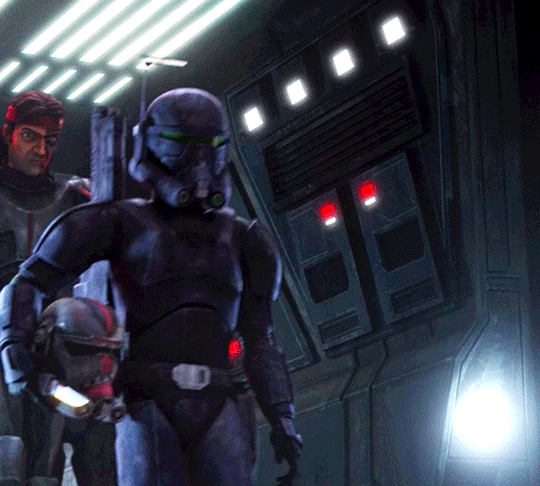
Having a strong Poseidon trait, Crosshair seeks to “be somebody important” as he sees himself and Clone Force 99 as more superior than the regular clone troopers. He is highly competitive and is unafraid to challenge for authority. For example, in “The Bad Batch”, Rex decides to take charge of the mission after Cody is injured, and Crosshair questions the legitimacy of Rex’s authority since Cody has called in Clone Force 99 for this mission, which means the authority to carry out this mission should be under Clone Force 99. Moreover, Crosshair is the only one who challenges Hunter’s leadership skills in “Aftermath”, “Return to Kamino” and “Kamino Lost”. He even wants to remove Hunter’s role as a leader and possibly taking the leadership role for himself in “Aftermath”. Crosshair being given the Clone Commander rank by Admiral Tarkin, which is higher than Hunter’s Clone Sergeant rank, probably satisfies his desire of having more power than Hunter.
Poseidon is known as the implacable enemy in Greek mythology. In Homer’s Odyssey, Odysseus blinded Poseidon’s one-eyed Cyclops son Polyphemus and escaped from being eaten. This resulted in Odysseus facing Poseidon’s wrath, leading him to spend 10 years trying to return home. This eye-for-an-eye justice is vengeance that takes nothing else into consideration, even going so far as “He who is not with me is against me” (very similar to what Anakin Skywalker tells Obi-Wan Kenobi in “Revenge of the Sith” because Anakin is innately Poseidon). In addition, Poseidon is a grudge holder, and with his emotional intensity, he can hold it for a long time and innocents are not spared from his wrath. This is depicted in one myth where Poseidon and Apollo had an agreement with King Laomedon to build the walls of Troy in return for payment. When the construction was completed, the Trojan king refused to pay, and Poseidon avenged himself “unto the second and third generation”, dragging Priam (King Laomedon’s son), Paris and Hector (King Laomedon’s grandchildren) to face his wrath.
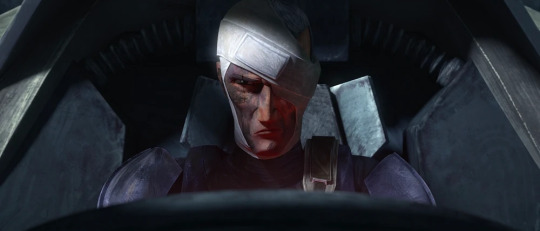
The archetype of Poseidon as the implacable enemy is present in Boba Fett, Dogma and Crosshair. After Boba witnesses Jedi Master Mace Windu kills his father Jango Fett, he becomes obsessed with seeking revenge against the Jedi. He and his mentor Aurra Sing attempt to assassinate Mace Windu, which results in the destruction of the Star Destroyer Endurance and the deaths of many innocent people (though he does not want to hurt others and he does these things reluctantly). Even though his plan fails and he is sent to prison, he still refuses to forgive the Jedi. When Dogma realizes that Pong Krell has betrayed the Republic and the clones, even taking advantage of his blind loyalty, he becomes enraged and kills the Jedi to avenge his brothers. After the Bad Batch leaves Crosshair behind in “Aftermath”, Crosshair holds a grudge against them for the entire Season 1. At the beginning of “Bounty Lost”, the vengeful Crosshair pursues the Bad Batch relentlessly even though he is severely burned by the ion engine. In “Return to Kamino”, Crosshair wants them to join the Empire to have a purpose again, but they refuse. This prompts Crosshair to warn them not to make the same mistake twice and not to become his enemy. In “The Outpost”, Crosshair gets revenge of Mayday’s death by killing Lieutenant Nolan, who refuses to provide medical help and causes Mayday to succumb to his injuries.
Although Poseidon is known for his anger, destructiveness, and otherwise stormy disposition, he also has a peaceful and merciful aspect to his personality. In his calmer moods, he visited his Ethiopian worshippers, who gave him rich sacrifices, and he forgot his pursuit of Odysseus for some time. In an act of mercy and an earthquake, he turned Thessaly, which had been an enormous lake, into dry land. He also changed Ino and her son into sea gods when they threw themselves into the sea, and appointed Castor and Pollux as protectors of sailors who could calm the storms. Moreover, the Ancient Greeks gave Poseidon various titles such as “Saviour of Sailors”, “Averter of Earthquakes”, “The Creator and Tamer of Horses” and “The Leader of Nymphs”. They prayed to Poseidon even in cities where the god of sea was not the city’s patron god to ensure the sailors and fishermen would have a safe journey. With that, it is possible for Crosshair to be peaceful and merciful, though, this is a rare occurrence. The one time we see Crosshair briefly showing his calmer side is in “Aftermath”, when Omega tells him that it is not his fault that he feels angry and that he cannot help it.
Poseidon is treated as a shadow of Zeus because the emotional aspect of the father archetype is being repressed or buried. Hence, this archetype becomes undeveloped and inaccessible to those who have severed their emotionality. This can lead to emotional instability and the tendency to react out of proportion to whatever sets them off. In the social context, there is a need to control how much emotions one can show that is deemed appropriate. Poseidon people can be emotionally expressive, but they can reach to the point when their emotions “take over”. A person who is taken over by their fluctuating subjective feelings, who takes no one else and no situation into consideration is described as self-centered and emotionally inappropriate. They are also viewed as emotionally immature or unstable, and even “out of their minds”. If they resemble a resentful, angry Poseidon, they are likely to be violent and abusive, especially when alcohol further loosens their controls. Based on my observations and my readings of various headcanons, I see that Crosshair can be both emotionally immature and mature depending on how well he controls his emotions.
Poseidon’s mythology emphasizes his resentments and retributions. He represents the dark aspect of the father archetype that seeks revenge – “an eye for an eye”. As a negative emotional complex, Poseidon vengeance can become all-consuming and destructive to one’s personality as well as towards whom the hostility is directed. A person who obsessively fantasizes about seeking revenge is also consumed by this powerful negative aspect of Poseidon.
If a Poseidon person is constantly criticised for being “too emotional” or “not rational enough”, they may internalize the criticism and continue to judge themselves negatively even when the external criticism has ceased. This can lead to poor self-esteem and they are likely to repress their emotionality. Their wellbeing and worthiness will be adversely affected, especially if they harbour powerful negative feelings such as resentment or the desire for revenge. This is common among men, but it can also happen on women.
Poseidon is the bringer of tidal waves and earthquakes. These two natural disasters represent powerful emotions that topples rationality and swallows up reality, causing a person to “go mad”. New construction or reconstruction can only begin after the waters recede or the earth becomes stable again. The calmness for the observing ego comes, allowing the person to understand the experience and reconstruct themselves and the relationships they have at least destroyed temporarily. The “tidal wave” can be interpreted as an amplified version of one’s usual emotional nature. For example, a person may react to a current pain by opening the floodgates to more grief and rage. These feelings are not new, only greater. The “earthquake” can be interpreted as one’s emotions being kept underground. The introverted feelings are like underground water that follows fault lines, and as pressure builds up underground, some mild tremors are felt but they are usually disregarded. Only after a major quake we remember the previous “rumblings” that hinted at the instability and emotionality below the surface. The earthquake represents primitive rage in which a person may irrationally attack others, which may devastate not only others but also (and even more) themselves.

Crosshair has shown to unleash his “tidal waves” and “earthquakes” a few times. In “Aftermath”, Crosshair is angry that Hunter refuses to execute Order 66 and that he let Caleb Dume escape, even lying that he stuns the Padawan and causes him to fall to his death. This causes tension to rise between him and Hunter, but it is eased temporarily by Echo, Tech and Wrecker. Things do not go well for Crosshair, especially when his meal is ruined during the food fight, prompting him to unleash his rage by hitting two clones with his tray. When Hunter disobeys orders for the second time by letting Saw Gerrera and his people go, Crosshair’s anger grows and he begins to challenge Hunter’s authority. Crosshair becomes more annoyed when Hunter decides to believe Omega’s warning and go back to Kamino to save her. As he has expected, the Bad Batch gets arrested for treason and is thrown into the brig. Crosshair’s anger becomes greater as he blames Hunter’s leadership for getting the team into trouble, and that every decision he has made since Kaller has been wrong. Realizing that Crosshair’s inhibitor chip is slightly working, Tarkin asks Nala Se to intensify the chip’s programming. I believe this operation not just intensifies Crosshair’s loyalty to the Empire, it also intensifies his feelings of anger, loss and betrayal towards his teammates. These amplified feelings are eventually unleashed like a tidal wave when Crosshair fires first at Hunter, leading to a gun battle between the Bad Batch and the clones loyal to the Empire.
In “Return to Kamino” and “Kamino Lost”, Tech, Echo, Wrecker and Omega go to Kamino to rescue Hunter, who is captured by the Empire. Kamino is dark and stormy, representing Crosshair’s turbulent emotions towards his old teammates. He is still angry at them for leaving him behind, but he has no intention to kill them despite they are branded as traitors to the Empire. He proves it by killing all four Elite Squad Troopers who refuse to obey his command and stand down. He offers the Bad Batch to join the Empire but they refuse, which angers him. When Crosshair reveals that he already has his inhibitor chip removed a long time ago, and that he willingly pledges loyalty to the Empire, Hunter and the rest of the team are shocked. Crosshair claims that this is who he is, but Hunter refuses to accept it and stuns him. Even though Crosshair is unconscious, his rage has probably reached its boiling point as he remembers his teammates refusing to join the Empire and refusing to accept that he willingly joins the Empire.
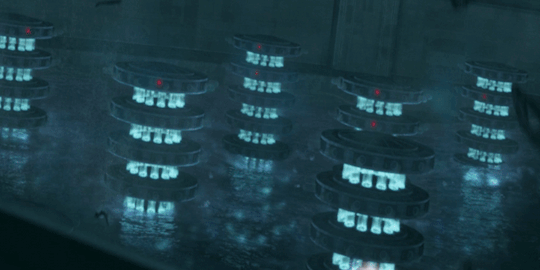
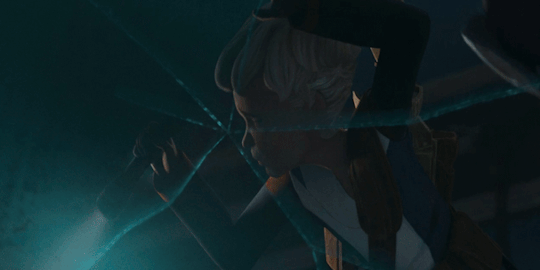
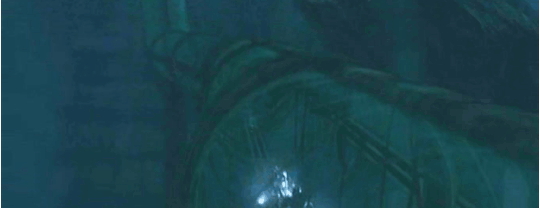
As Tipoca City gets bombarded by the Empire, the Bad Batch is forced to flee into the depths of the sinking city. As the city sinks into the ocean, the compartments get flooded, which represents Crosshair’s amplified feelings of rage, disappointment and betrayal finally bursting open, threatening to drown the Bad Batch, including Crosshair himself. Crosshair’s amplified emotions are shown when he rejects Omega’s help to free him, and when he pushes her away after she rescues him. Even as the Bad Batch manages to escape from the flooded compartments, water bursts through the cracks on the tunnels and the Kamoradon Sea Dragon further damages the tunnels as it tries to eat the Bad Batch. These represents Crosshair’s emotional tidal wave still moving to unleash its destructive force towards himself and the Bad Batch. This is evident as Crosshair is bitter that his team has thrown away their legacy, and he blames Hunter’s failed leadership for causing them to end up in a situation where they are going to die. He also blames his teammates for letting Omega (“the kid”) to call the shots and accuses Hunter for taking things personally. Crosshair’s emotional tidal wave finally subsides as daybreak comes, represented by the placid ocean and the clear sky of Kamino.

In “The Outpost”, Crosshair is reassigned to the Imperial depot on the snowy planet Barton IV. When he, Lieutenant Nolan and the clone troopers land there, it is snowing and strong winds are blowing. The snow and strong winds represent Crosshair’s inner emotions. Ever since Commander Cody tells Crosshair that they all make their own choices and they have to live with them too at the end of “The Solitary Clone”, Crosshair is unable to sleep and eat well. Moreover, he is lonely as other regular clone troopers do not want to associate with him, and that Cody later deserts the Empire. Although he seems to be disinterested of the fate of the clones because he views himself as more superior than the regular clone troopers, his inner emotions show how he is really feeling. He is fuming when Rampart refers to Cody by his designation number and he mocks the loyalty of the clone troopers due to the increasing rate of desertion. He probably also feels that the passing of the Imperial Defense Recruitment Bill is unfair because it forces the clones into retirement, which is being protested by many clone troopers. Crosshair supresses these feelings and his questioning of the Empire’s actions because he just wants to be “a good soldier”, which is all that matters to him. This is why he is unbothered by the snow and strong winds of Barton IV because his Imperial armour has shielded him from the harsh environment literally and from his inner emotions metaphorically.
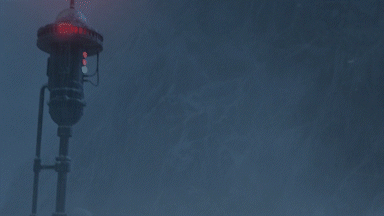
Crosshair starts to open up slightly when Commander Mayday extends his warmth and kindness to him. When Mayday gives him a tour of the Imperial depot and its surroundings, the strong winds have subsided and there is less snowfall. This change of weather indicates that this companionship has helped to ease Crosshair’s inner emotions albeit temporary. Moreover, this meeting can be interpreted as Crosshair’s subconscious is calling for help because “mayday” is an internationally recognized radio word to signal distress. When Crosshair steps on a pressure mine that is hidden underneath the snow, it serves as a warning sign to him that his inner emotions and questioning of the Empire’s actions have become a ticking time bomb. The pressure is building up and it will explode any time. Before Crosshair steps on the mine, the tunnel above him and Mayday rumbles, which can be interpreted as an early warning sign of Crosshair’s destructive emotions. Thankfully, Mayday disarms the pressure mine and by slowly lifting his foot, Crosshair is able to escape from danger for now. When facing an overwhelming number of raiders, Crosshair shoots at a power generator, which causes an explosion that takes out the raiders. However, the explosion also creates cracks on the mountain and causes rocks and snow to fall onto the raiders’ hideout, in which Crosshair and Mayday have to escape from. The cracks on the mountain indicates that Crosshair’s inner emotions and questioning of the Empire’s actions are starting to leak out. It is like water starts to leak out from a cracked bottle due to the pressure. Though, Crosshair and Mayday think that the cracks are mild and ignore them, just like most people ignore the mild tremors coming from the earth.
When they go to recover the stolen cargo, they discover that the cargo contains stormtrooper armour for the new Imperial Military. Mayday is upset that he and his brothers are being treated horribly despite their combat service, loyalty and sacrifices. His sentence “We’re good soldiers, we followed orders, and for what?” finally hits Crosshair and intensifies his inner feelings and questioning of the Empire’s actions. Then, loud rumbling sounds can be heard and the ground begins to shake. This indicates that Crosshair has reached his breaking point and he can no longer contain his inner emotional turmoil. An avalanche comes running down towards Crosshair and Mayday. The avalanche (which can be seen as an icy tidal wave) represents Crosshair reacting to his current emotional turmoil by opening the floodgates to more turmoil. The avalanche buries Crosshair and Mayday, which causes Mayday to get injured and Crosshair to lose his helmet and expose himself to the cold. This disaster symbolizes Crosshair’s destructive emotions have devastated Mayday and Crosshair himself. Now, Crosshair, with his helmet off, is forced to face the aftermath of his actions and emotions. Since the emotional floodgates are opened, strong winds and snowfall, which also represent Crosshair’s emotional turmoil, appear as Crosshair brings the injured Mayday back to the Imperial base. They are forced to endure the icy and freezing conditions without proper equipment and supplies. The strong winds and snowfall only subside when Crosshair and Mayday finally arrive at the Imperial base. The clear weather indicates that Crosshair has let go of his ego and his emotional turmoil as he is only focused on making sure Mayday gets medical treatment.

Across the world, many people live in places that are prone to natural disasters such as storms, earthquakes, floods, hurricanes, and tsunamis. Some people choose to move away from these places, but many choose to stay. They learn to read the weather or seismological reports. From experience, they learn what to expect, how to prepare, and what to build that is likely to survive a potentially destructive wave or quake. People whose Poseidon emotionality can overwhelm their egos must become conscious of their own susceptibility and must learn as much as possible about its conditions and warnings. They must develop ways to live with this powerful part of them. Similarly, people who are affected by the destructiveness of Poseidon, as lived out in someone else, must learn to detect the warning signs.
In “Pabu”, Hunter is able to sense the incoming tremor before it hits the island, just like the moon-yos quickly retreating before the rumbling comes. He tenses up, and before he suggests that they retreat, a small tremor rocks throughout the island and sea. The residents of Pabu, especially Shep and Lyana disregard the small tremor because it is a common occurrence on the island. Not long after, a larger tremor comes, which concerns everyone. This scene shows that Hunter is extremely sensitive to changes of pressure, and a slight change is enough to prompt him to take quick, decisive actions. By interpreting the tremors as powerful and destructive emotions, it can be said that Hunter is able to detect the warning signs given out by Crosshair’s inner emotions. This is evident in “Aftermath” when Hunter is able to sense that Crosshair is staring at him intensely despite his eyes are closed and Crosshair is wearing his helmet. He probably already knew that Crosshair is going to ask him about the Padawan when he asks “what?” to Crosshair. Thanks to his enhanced senses, Hunter can quickly pick up changes to Crosshair’s emotions. He takes action when he senses even a slight increase of intensity of Crosshair’s emotions.
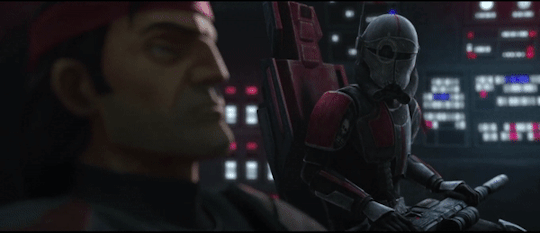
In the Hyperspace Stories #10, the Bad Batch is sent to Hylanth, a moon in the Outer Rim for a mission involving battle droids. This mission seems to frustrate Crosshair as the words “battle droids” are written in bold, indicating a greater emphasis of these words. Hunter senses his frustration and tells him that they have their orders. Crosshair then explains that he is not questioning the orders, but he just feels that this mission can be carried out by the regular clone troopers. After Tech explains that the battle droids they are sent to investigate have been modified, Crosshair says that “maybe there is hope for this mission yet” because he likes to be challenged. This causes Hunter to tease Crosshair for sounding grumpy. I feel that Hunter does not tell Crosshair to shut his mouth when his words irk Jesse and Rex in the Clone Wars episodes because Hunter does not sense any increased tension from Crosshair’s words and that it is just on brand of his dark, twisted sense of humour. However, in “Aftermath”, when Crosshair starts shooting at Caleb Dume, Hunter quickly orders him to stand down. Furthermore, in “Return to Kamino”, tension rises between Hunter and Crosshair due to the reveal that Crosshair already has his inhibitor chip removed and that he willingly joins the Empire. Before Crosshair can shoot, Hunter stuns him, indicating that his quick, decisive actions are meant to dilute Crosshair’s intense emotions. Hunter’s Dionysus archetype enables him to sense changes to Crosshair’s emotions like the mysterious and uncontrollable tides that flow and ebb in nature, and his Demeter anima motivates him to care for Crosshair’s emotional needs. His Zeus archetype helps him to take immediate action to calm Crosshair down, though, this tactic does not always work because he may not fully understand how and why Crosshair feels that way, which is evident in the comic and the episodes stated earlier.
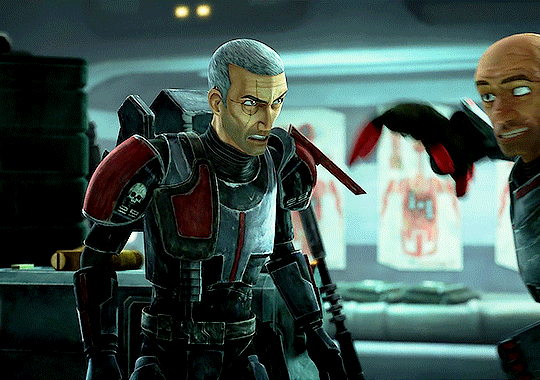
Besides Hunter, the rest of the Bad Batch have their own ways to handle Crosshair’s emotionality. Wrecker, who has a strong Aphrodite anima, is drawn to Crosshair’s intense emotions. He attends to Crosshair’s emotional needs by annoying him and shifting his focus so his emotions can subside faster, which is shown in the Hyperspace Stories #10, “The Bad Batch” and “Aftermath”. Even when Crosshair reacts angrily at him, he remains loving towards him. Moreover, Wrecker encourages Crosshair to be emotionally expressive, which is evident in “Aftermath” as Wrecker corrects Crosshair that they both did cry seeing the new armoury. Besides that, Wrecker is an explosive expert, which means that he can handle Crosshair’s destructive and explosive emotions as he knows how to disarm it.

Tech, who is Hades the Good Counsellor, accepts that Crosshair is severe and unyielding, and that nobody, not even Crosshair himself can change that. Tech’s subjective understanding enables him to accept Crosshair’s decision to join the Empire and let go of the emotional pain inflicted by him as seen in “Kamino Lost”. In “Pabu”, after a larger tremor rocks throughout the island, Tech warns that the island is vulnerable to a sea surge with the risk ranging from highly probable to imminent. His prediction comes true when the island’s early warning system later comes to life. By interpreting the tremors and sea surge as powerful and destructive emotions, it can be said that Tech is well-prepared in predicting and handling Crosshair’s intense and destructive emotions, like he is the head of the emergency or disaster management. When Crosshair’s inner emotions begin to leak out or show its cracks, Tech takes notice of it and expects the worst outcome. With that, motivated by his Athena anima and his Hermes archetype, he raises his defence and diverts others away from Crosshair before his emotions are unleashed. Once Crosshair’s emotions subside, Tech assesses the aftermath, carries out the recovery process, and implements better preparations to mitigate its destructive forces.
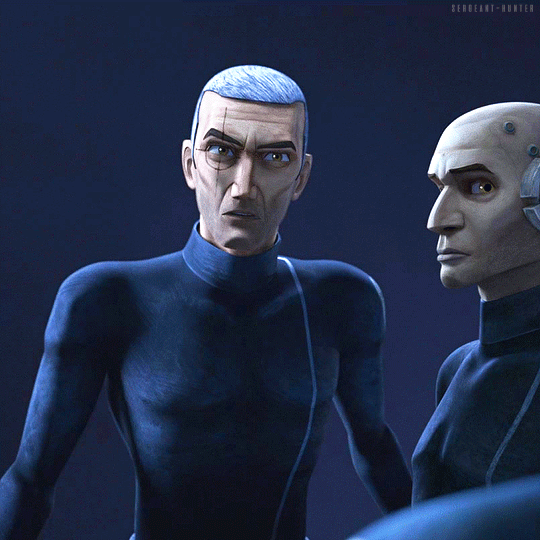
For Echo, who has the Hephaestus archetype, handles Crosshair’s emotionality by being stubborn and being the family peacekeeper. In “Aftermath”, when Echo senses the rising tension between Hunter and Crosshair, he questions why the clone troopers turn on their general Jedi Master Depa Billaba despite they have been serving her for years. This causes Tech to explain about the regular clones’ programming, which distracts Hunter while Wrecker distracts Crosshair. With that, Echo is able to ease the tension temporarily. Later in the episode, Echo takes on a more assertive approach in dealing with Crosshair’s intense emotions. When Crosshair grumbles about the team debating their choices and they need to complete the mission of eliminating the insurgents, Echo tells him to wake up and see that the Empire has sent them to kill innocent civilians. Then, when Crosshair demands Hunter to explain why he has gone soft, Echo tells him to stop it as there is no use of fighting and they should focus on escaping the prison. Moreover, since Echo has a strong Hestia anima, he is usually unaffected by Crosshair’s emotionality, and he is not judgemental towards Crosshair.

Omega, who is highly perceptive thanks to her Persephone archetype, can sense that Crosshair is angry. She reaches out to him and sits beside him. She then pleads with him not to do what he is going to do. She tells him that it is not his fault that he is feeling angry and that he can’t help it, which briefly softens him. In “Kamino Lost”, Omega once again approaches Crosshair and observes that he never liked Kamino. She understands him as she has spent most of her life inside Nala Se’s private laboratory alone until the creation of the Bad Batch, which is why she is determined to find them all again. Her receptive personality makes her kind and compassionate, and it gives her the ability to try to see things from Crosshair’s perspective, so she can reach out to him from the emotional level.
Besides the Bad Batch, Cody and Mayday have shown the ability to handle Crosshair’s emotionality. In “The Bad Batch”, after Crosshair’s words incite anger in Jesse, Cody reminds him that they are all on the same mission and he needs to cut his attitude. In “The Solitary Clone”, Cody specially requests Crosshair to be part of the mission and he chuckles at Crosshair’s humour. Cody’s no-nonsense attitude and authority gain Crosshair’s respect. As for Mayday, he shares a heater with Crosshair and starts a conversation with him, which helps Crosshair to open up. He also gives Crosshair a tour of the Imperial base so he can be familiarized with the new place and the planet’s harsh environment. He even encourages Crosshair to humour him as he disarms the pressure mine that Crosshair has stepped onto it. Although Mayday does not have any proper tools and equipment to disarm the mine, his experience and creativity help him to save Crosshair. I have interpreted that the pressure mine represents Crosshair’s emotionality as a ticking time bomb, and with Mayday’s ability to disarm it without proper equipment, it can be said that Mayday is highly experienced in handling people with intense emotions like Crosshair.
Although Crosshair is cold and rude, he is fortunate to be accepted and loved for who he is by the Bad Batch, Cody and Mayday. His relationships with them, especially with the Bad Batch, help him to develop his “dolphin”, allowing him to have a better understanding and control of his own emotions. It is believed that Crosshair has the habit of pushing boundaries to test people – to see whether they can handle his emotionality and stay, or become disgusted and run away from him. He probably knows how his intense emotionality scares most people away, and he does not want to waste time on people who do not appreciate and accept him for who he is. He also wants to spare himself from the hurt and betrayal. Crosshair is grateful that the Bad Batch chooses to stay with him, and in return, he gives his loyalty and respect to them. Unfortunately, that all changes with the issue of Order 66.
When Order 66 is issued, Crosshair’s inhibitor chip is somehow activated. He becomes adamant in carrying out orders without question. Influenced by the order, he tries to shoot Caleb Dume down. Hunter keeps telling Crosshair to stand down but to no avail. Crosshair later gets angry that Hunter has allowed Caleb to escape and has lied that the Padawan has been eliminated. His anger intensifies when Hunter defies orders to eliminate Saw Gerrera and his people. When the Bad Batch is thrown into prison for disobeying orders, Crosshair blames Hunter’s leadership for getting the team into trouble. Hunter, Tech, Wrecker and Echo do not understand what is wrong with Crosshair. They never have an issue with disobeying orders because they do it all the time. Crosshair also does not understand what is wrong with himself. The inhibitor chip has “tampered his access to the emotional realm” (for regular clones, the chip “inhibits their access to the emotional realm”), thus, hampering his emotional control. Crosshair probably feels frustrated that nobody, not even himself can figure out what has gone wrong. To make matters worse, Hunter, Tech, Wrecker and Echo are more focused on trying to escape instead of taking care of Crosshair, which may have frustrated him further because he thinks that they are indifferent towards him. Omega, who notices his anger, is the only person to reach out to him, and she is able to comfort him for a brief moment.
After Crosshair’s operation, the effects of the inhibitor chip are intensified, along with his anger towards his teammates, especially Hunter. His amplified rage is eventually unleashed towards his teammates when he fires the first shot, starting a gunfight. When the Bad Batch manages to leave Kamino, Crosshair feels bitter that they have left him behind. They have always stay by his side no matter how intense his emotions can get, but this time, they run away from him – like Amphitrite fleeing from Poseidon, and some people moving away from places prone to natural disasters. Crosshair feels betrayed by their actions.
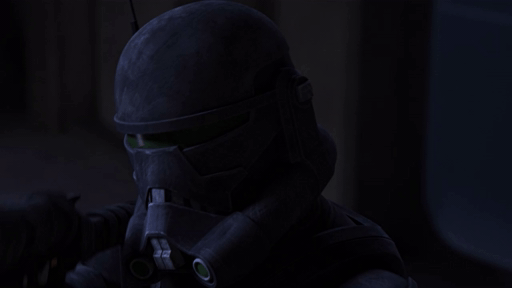
The Bad Batch later finds out about the inhibitor chip, and they suspect that it has caused Crosshair to betray them. In “Replacements”, Hunter is angry at himself for leaving Crosshair behind. Omega comforts him and says that they will find a way to bring Crosshair back. Even though they now have the knowledge about the inhibitor chip and how to remove it, they are actively trying to avoid Crosshair, who is hunting them down because they are traitors to the Empire. Due to their last gunfight, they probably think that Crosshair is trying to kill them. When Crosshair manages to catch up with the Bad Batch in “Reunion”, Hunter and Omega try to snap him out of the effects of the inhibitor chip but to no avail. Tech already predicts that Crosshair will not be convinced due to his severe and unyielding nature, so he has prepared an escape plan for the team. After barely escaping from Crosshair’s relentless chase, the Bad Batch is probably aware of his wrath and decides to stay away from him for some time. In “Rescue on Ryloth”, when the Bad Batch spots Crosshair in the city, they step back to discuss their plans for they do not want to be noticed and hunted down again. However, a probe droid hovers above them and Crosshair is alerted to their presence. The team wants to abandon the rescue mission, but Omega manages to convince them to continue on. After the Bad Batch successfully carries out the rescue mission, Rampart realizes that he has underestimated them and gives Crosshair permission to hunt them down. Crosshair’s eyes and smile show his conflicting emotions – he is happy to have a chance to approach his teammates again, but he still harbours anger and sadness towards them.
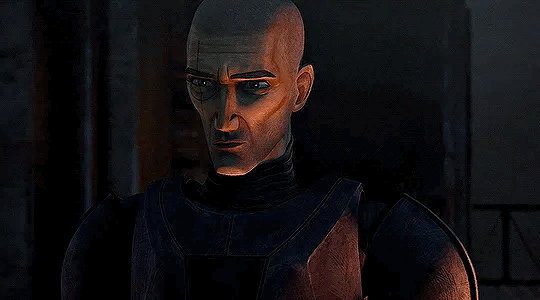
In “Return to Kamino”, Hunter explains to Crosshair that they did not have a choice when they left Kamino without him, in which Crosshair counters “and I did?”. He probably feels angry and betrayed that Hunter tries to justify his actions for leaving him behind. When Tech, Wrecker and Echo walk into a trap set up by Crosshair, Hunter keeps thinking that Crosshair is going to kill all of them. Although Crosshair is angry that Hunter has betrayed everything they once stood for and is not loyal to him, he is willing to give them a chance because he believes they can be brothers again. He proves his loyalty towards them by killing his own Imperial squad (he even has it planned out by placing the reflecting mirrors to make the trickshot). He offers them to join the Empire, but they refuse. Hunter even counters that Crosshair does not get who they are, which angers him once more. Crosshair’s anger intensifies when Hunter refuses to accept that he already has his inhibitor chip removed and he willingly joins the Empire, even claiming that this is who he is. Even though Crosshair is still mad at the Bad Batch throughout “Kamino Lost”, he still follows them and saves Omega from drowning. However, he notices that Wrecker, Tech and Echo aiming their blasters at him because they think he is going to shoot Hunter. From there, Crosshair knows that no matter what he does, their trust has been broken and there is nothing he can do to regain that trust. Perhaps in the past, he can express his trustworthiness through action (because he finds it difficult to express it through words), but now, it does not work anymore. Hunter offers a chance for Crosshair to return to the team, but this will require him to give up the Empire and his identity as a soldier. Perhaps in the past, Hunter gives unconditional love to Crosshair, but now, his offer is seen as conditional to Crosshair. This may have caused Crosshair to question whether the love he gave in the past was even truly unconditional. Crosshair probably feels betrayed and bitter that Hunter does not fully understand him, which strengthens his decision to not return, making the fallout more severe and tragic.
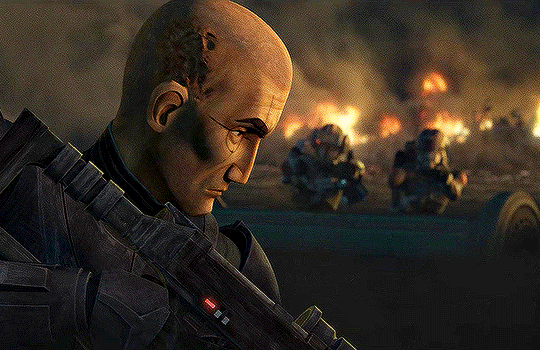
Fortunately, all hope is not lost for Crosshair. We know that nature is both generative and destructive, just like Poseidon who can bring life and fertility, or death and destruction. After a natural disaster, given the time and space, nature heals itself and the survivors of the disaster become stronger. With that, it is possible for Crosshair to return – we just need to give him time and space. Omega understands this well, thanks to her Persephone archetype. Persephone is the symbol of spring, representing new life appearing after a brutal winter. Before Omega leaves with the Bad Batch, she tells Crosshair that he is still their brother and that he is her brother too. She holds onto hope that he will return, but it must be done according to his time – nobody cannot force him to come back now.

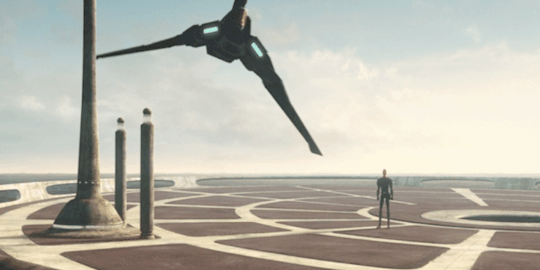
Although Crosshair is still angry at them, he is saddened to see them leave him on the Kamino platform. Throughout season 1, Crosshair laments how Hunter has thrown away their past achievements and missions. Those memories are of great importance to him and he finds it difficult to let go. People who are like Poseidon are more focused on the past and present, and accompanied with their intense emotions, they may replay their memories constantly or become entranced by what is happening right now. It is likely that Crosshair contemplates his memories with the Bad Batch as he waits for 32 rotations for the Empire to rescue him. With Tipoca City, the home of the clones, have sunk into the ocean, all the memories the clones share have become part of the collective emotional realm. Crosshair likely takes on the archetype of the deep-sea diver as he ventures into the collective emotional realm and reminisces about his time with the Bad Batch.

In the collective emotional realm, Crosshair probably replays all the good and bad times they have shared, including the times where his emotions got the better of him and everyone had to clean up the mess he had caused. There might have been bitter feelings, but they all learned from their mistakes and moved on. Perhaps from here, Crosshair finally understands Hunter’s actions and feelings. He may realize that Hunter feels awful for leaving him behind, and that he blames himself for losing him. After losing Crosshair to the Empire, Hunter is determined to keep the remaining teammates safe, and becomes overprotective towards them (which is motivated by the negative Demeter anima). This may explain why they never try to go after him and get him back. Moreover, Crosshair may also realize that his intense rage has influenced Hunter’s overprotective tendencies. Hunter thinks that Crosshair is trying to kill them, which causes him to prioritize in rescuing his remaining teammates from Crosshair’s wrath. When the Bad Batch and Crosshair reunite in Bracca, Crosshair’s wrath remains intense, which causes the Bad Batch to run away again and attempt to hide.
Furthermore, Crosshair may come to understand why Hunter refuses to accept that he willingly joins the Empire. Hunter wants to believe that Crosshair is being “held captive” by the Empire (like Persephone being held captive in the Underworld) and that they can free him by removing his inhibitor chip. When that belief turns out to be untrue, Hunter’s overprotective tendencies return. He believes that this is his only chance to get Crosshair back, and he is determined to do anything to achieve that. He keeps trying to reason with Crosshair but to no avail. He offers Crosshair a chance to return but this requires Crosshair to give up the Empire and the soldier’s life. Crosshair is disappointed that his love has become conditional, thus, he rejects the offer.
As Crosshair comes to see things from Hunter’s perspective, he learns to understand why Hunter has acted this way, even though he does not agree with him (like Tech’s quote “Understanding you does not mean that I agree with you.”) This helps Crosshair to let go of his rage towards Hunter and the rest of the Bad Batch. He also comes to take responsibility for his actions and emotions. After he gets rescued by the Empire, he lies in his report that Clone Force 99 have perished in the bombardment because his loyalty to his teammates remains strong and he wants to protect them from afar. I do believe that Crosshair still holds onto some hope that he can still reconcile with the Bad Batch despite his belief that they will not come back for him. He probably still believes the unconditional love they gave to him in the past is real, and it can happen again. This is hinted in “Tipping Point” when Crosshair sends Plan 88 to tell the Bad Batch to hide as the Empire is after Omega. His message is then discovered by Tech when he checks the team’s old comm channels. If Crosshair believes that the Bad Batch has given up on him and there is no possibility of reconciliation, he will not have sent Plan 88 using his old code and expect that they will find it.
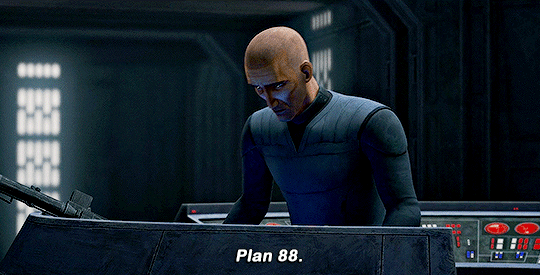

In “The Solitary Clone”, Crosshair seems to have calmed down and becomes slightly mellow. He even tries to join the regular clone troopers for breakfast, which is something the old Crosshair will not do. This change of behaviour makes me believe that Crosshair has made contact with the collective human emotional depth during the 32 rotations on the Kamino platform. However, the Empire rejects the values of Poseidon, and Rampart even taunts the clones for having these values. Crosshair feels unappreciated and lonely, and to make matters worse, Cody does not take his loyalty well. Many people believe that Crosshair only carries out Governor Grotton’s order to execute Tawni Ames because Governor Grotton threatens Cody with the consequences of not carrying out his order, and Crosshair wants to protect Cody. Just like his action of saving Omega was met with hostility from the Bad Batch, Crosshair’s action upsets Cody and causes him to desert the Empire. Losing Cody may have worsened Crosshair’s loneliness and the feeling of being unappreciated, and this causes him to shut himself off from everyone, which is represented by him putting on his helmet and walking away by the end of the episode. His shields are up, and he becomes emotionally detached. By doing so, he is actively ignoring and suppressing his emotions. He loses his connection with his innate archetype until he meets Mayday in “The Outpost”. Mayday’s kindness opens the floodgates and helps Crosshair to truly be himself once more.
After “The Outpost”, I find myself relate to Crosshair immensely, especially on the emotional level. That episode helps me to discover that Poseidon is my main animus, which is the unconscious masculine side of a woman. I am emotional and sensitive. I like to go to museums and learn about history and geography. I am always fascinated by marine life and underwater beauty (especially coral reefs). I have always been drawn to natural disasters because I am fascinated by their destructive forces and the aftermath (a hint of my intense yet destructive emotions). My anger or sadness tend to hold on much longer. I used to hold grudges and they could last for years (I try not to do that anymore). Since I am the only emotional one in the family, I constantly get criticized for expressing my emotions – when I laugh loudly, I am “impolite”; when I start yelling angrily, I am “rude”; when I burst into tears or scream out of fear, I am “weak” and “pathetic”. My family expects me to be level-headed, and every time my intense emotions leak out, I am told that “I cannot survive in this society”. My aunts prioritize being level-headed so much that they cannot comprehend real people and fictional characters acting on their emotions, even going so far as to calling them “stupid” for letting their emotions to flood their rationality. I also do not find comfort in school as I constantly get bullied by others. I remember crying a lot, but nobody came to help me or comfort me. Until one day, I snapped and resorted to anger to defend myself from the bullies. Since then, I became hot-tempered and this is something I am not proud of (genetics may have played a part because my maternal grandfather and mother are both hot-tempered). I remember one teacher described me as “manipulative” because “I constantly cry to get people’s attention”, and I end up feeling that it would be best if nobody cares about my venting so as to not being labelled as “an attention seeker”.
The constant criticisms and judgements received have caused me to develop a habit of bottling up my emotions. I keep ignoring and repressing my emotions until I can no longer hold back. My intense emotions get unleashed in a destructive manner, which hurts everyone, including myself. This has damaged my friendships and relationships. Even some of my friends who allow me to express my feelings and vent my troubles are taken aback by my intensity. Once, they have to remove me from the friend group temporarily and give me a timeout. I do take responsibility for my actions and appreciate the second chance they have given me. To stop myself from further damaging my relationships, I decide to shut myself off from everyone when I find my emotions have become unstable. However, this causes some people to inquire my emotional state and pressure me to tell them. When I refuse to share my feelings, they call me “ungrateful”, “rude” or “selfish”. But when I share my feelings, thus, unleashing its intensity and destructive force, they are taken aback and get hurt. They either become distant and cold towards me or judge me harshly for being emotional. This only make me feel that it is best that I keep my emotions and troubles away from other people, and that I should not share my burdens with others since they usually do not understand me. I isolate myself further from people and resort to carry a heavy burden on my shoulders. I can’t help but to internalize these criticisms and judgements. I feel ashamed to be emotional and I tend to judge myself harshly when I show emotions. I have been rejecting my Poseidon animus until I finally see myself in Crosshair. I am learning to accept that “this is who I am” like Crosshair. I also find it heart-warming that Crosshair is surrounded by people who love and accept him despite his intense emotions. I would love to be part of the Bad Batch because I would feel safe to express my emotions and be myself.
Since Poseidon people are susceptible to be taken over by strong emotions, they need to develop abilities to observe, reflect and think objectively. One method is to develop an observing ego. In Jungian psychological terms, the ego is the consistent, observing, remembering, and deciding element in the psyche—what you mean when you say, “I.” A complex is an archetypal pattern that has become charged with emotion. When an emotional complex has more power or energy than the ego, it can temporarily “take over” or “possess” the personality. For example, a father may become “like a man possessed” and bent on vengeance when his child is hurt. He may become like Poseidon in relentless pursuit of Odysseus – he is so consumed with rage and revenge that he is not available to support or comfort and help heal his child. This same complex may be activated by the same situation in another man with a stronger ego. He may have vivid fantasies of retribution, but realizes that he must struggle with the hatred that threatens him, knowing that his child’s wellbeing is of greater importance.
When an emotional complex takes over, the “I” is put out of commission. The Poseidon person may be unconscious or blind to what is happening, while people around them react in different ways. They may be humoured, avoided, or feared. The emotional complex they are possessed with may provoke an equivalent unconscious complex in others. The Poseidon person may also struggle with the complex, feeling themselves overreacting or behaving in ways that are “out of character”. By learning to observe a complex, the focus and energy are shifted from the complex to the ego. The “I” sees what is happening and resists being taken over by the complex. The complex loses energy and influence, and it recedes. During this process, the Poseidon person and their relationships can grow in depth when compassion is given to themselves and to others who are affected by the complex. Two archetypes can be developed to help Poseidon people to deserve an observing ego, which are the Zeus archetype that enables them to see circumstances objectively and dispassionately (which is an archetype Hunter has), and the Hades archetype that enables them to recognize that their emotions are often connected to archetypal images, which are patterns that exist in the collective unconscious (which is Tech’s innate archetype).
Instead of expressing their emotions in a destructive manner, Poseidon people can channel their emotional depth and intensity into creative work such as drama, poetry, literature, music and art. With that, the Hermes archetype (which is an archetype Tech has) must be developed. As the Messenger God and Guide of Souls, the Hermes archetype can bring forth the potentially disruptive emotions hidden in the depths and turn them into emotionally expressive works. Besides Hermes, the Hephaestus archetype (which is Echo’s innate archetype) can also help Poseidon people to transform their emotions into creative work. Hephaestus, the God of the Forge, is a rejected god; but instead of erupting like a volcano, he channels his intense emotions to create beautiful and useful objects. He expresses his emotions in a creative manner. This difference is shown in how Echo and Crosshair react to the Empire’s mistreatment to the clones. Echo channels his anger through constructive means by joining Rex’s resistance network, rescuing the clones from the Empire, and turning Trace Martez’s repair shop into a refuge for the rescued clones. On the other hand, Crosshair channels his anger through destructive means by killing Lieutenant Nolan to avenge Mayday’s death.
It is important for Poseidon people to learn how to dilute the effects of this powerful archetype. The first method involves them to give up the need to dominate and learn from the “Dolphin” as previously stated. The second method involves the development of other archetypes, specifically those that have the ability to think of the consequences, to become objective, and to achieve some distance. Zeus and Athena are the archetypes commonly developed to dilute Poseidon’s effect, but the most common archetype to be developed is Apollo, which serves as Crosshair’s other main archetype.
#star wars#star wars the bad batch#the bad batch#tbb#sw the bad batch#sw tbb#the bad batch analysis#tbb analysis#the bad batch meta#tbb meta#star wars clone wars#star wars the clone wars#sw the clone wars#sw clone wars#the clone wars#clone wars#star wars tcw#sw tcw#the bad batch crosshair#tbb crosshair#crosshair bad batch#crosshair tbb#crosshair the bad batch#bad batch crosshair#clone force 99#archetypal psychology#archetypes#gods in everyman
63 notes
·
View notes
Text
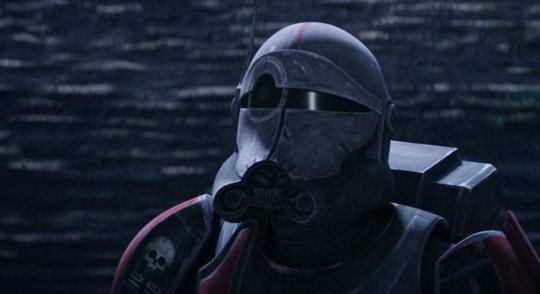
Only Crosshair could have let her go in that moment. Crosshair, who's learned not only to trust Omega but to respect her autonomy. Who knows what it means to be the cause of your loved one's pain for reasons outside of your control. Who's willing to risk everything to honor her wishes.
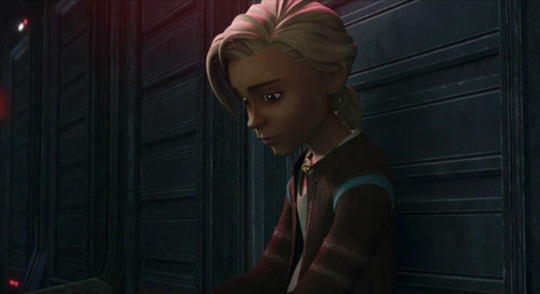
And only Omega could have convinced him to do it. Omega, the one person who never gave up on him. Who taught him that people can change for the better, even himself. The person for whom his hand doesn't shake when the shot really matters.
-
I was devastated when he failed to hit them with the tracker. It's not often that Star Wars shocks me, but I needed to let the credits roll as it sank in that he really missed.
It would have been so easy for the writers to give them the win here. For this to be the culmination of all their character growth this season. Don't get me wrong, I'm not mad about it. This is fantastic. I have no idea what's going to happen next. The writers are making some brave choices this season, and I am so here for it.
#the bad batch#sw tbb#tbb spoilers#the bad batch spoilers#tbb crosshair#tbb omega#tbb season 3 spoilers#the bad batch season 3 spoilers#tbb season 3#the bad batch season 3#tbb meta#the bad batch meta#tbb analysis#the bad batch analysis#tbb s3e11#Point of No Return#aka the episode that broke me#tbb screencaps#the bad batch screencaps#ADH-D2's Patented Bullshit
1K notes
·
View notes
Text
Rescue = Family
The new episode of TBB (S03E04) further develops the theme of "rescue means family". Since season 1, Hunter is occupied with rescuing Omega cuz she's family to him. Echo rescues regs cuz they are family to him. Rescuing someone means accepting them into your family; not rescuing someone means rejecting them from your family. The latter thing is what happened to Crosshair (kinda like in a messy breakup, where Hunter takes the kid cuz Crosshair is a neglectful parent, lol).
Crosshair is the lone wolf, lonely sniper type. He doesn't have a family because he hasn't mastered the art of rescuing someone. The series has established the connection of "rescuing someone means they're family" numerous times, and Crosshair has never managed to rescue anybody. He arguably tried in the season 1 finale by offering the squad a place with the Empire, but while this might have been a good offer in Crosshair's mind, it was ultimately toxic and bound to fail. Crosshair tries again to save someone on Barton-4 where Mayday dies in his arms after a long struggle; Crosshair was ready to form a bond, but external circumstances (aka the Empire) prevented that. The Empire, of course, has a vested interest in isolating its soldiers from each other; the brotherly bonds between the clones are a liability and are therefore replaced by conscripted recruits who don't share a familial connection. There can't be a family under the regime of the Empire, that's why Crosshair's attempts of rescue have to fail as long as he's with them.
In season 3, Crosshair no longer is with the Empire, and *finally* his rescue attempts aren't toxic anymore, he just complains about them all the time, haha. Healing kinda feels uncomfortable and Crosshair is very vocal about that discomfort, but he *is* on a path of learning how to bond. Omega and Crosshair rescue each other during their escape. And then Crosshair saves the dog in episode 4, the very same episode in which Crosshair is called a Dad. He is finally crossing the threshold of being toxic and isolated and steps towards becoming an actual parent/family member.
That's the analysis part, speculation ahead.
I think The Harbinger (title of episode 8) refers to Tech who is now with the Empire. If that was the case, Crosshair gets a chance to rescue him. If Tech is with the Empire, he represents Crosshair's former self. Crosshair would not only be able to rescue his teammate and affirm his family bonds with him, but he also metaphorically gets to save himself. Imperial Tech needs saving, just as Crosshair did when he was with the Empire and suffering from this decision. It would be a chance for Hunter to make things right with Crosshair via Tech and not again leave behind a family member with the Empire, even if they act toxic (or incomprehensible).
I expect the family/squad only to grow from here on out. I think Echo isn't in season 3 so far for a very good reason; he'll show up to rescue Tech (cuz that'll be a group effort), and once Tech is back, Echo's role is to expand the family even further by connecting the Bad Batch family with the Reg family. Since Echo is both, a Bad Batcher *and* a reg, he is in the unique position to unify the two branches of the family. I think that would be a rewarding high note with which to end the series; the Batch and the regs overcoming their differences and reuniting as the family they have always been.
[all of my TBB meta here]
#tbb meta#star wars the bad batch#clone force 99#tbb#tbb spoilers#sw tbb#sw tbb spoilers#the bad batch spoilers#the bad batch hunter#the clone wars#star wars#sw the bad batch#the bad batch#bad batch#tbb hunter#tbb crosshair#clone trooper crosshair#clone trooper hunter#crosshair tbb#hunter tbb#the bad batch crosshair#tbb tech#tbb wrecker#tbb omega#tbb echo#season 3 spoilers#bad batch season 3#spoilers#the bad batch s3
77 notes
·
View notes
Text
Hidden Monsters
For some reason this has been a bear (dragon, Vrathean, pick your Star Wars creature) to write, but I realized after this last episode of TBB that there was more to the “monster of the week” trope that we all love to get tired of in Star Wars, and specifically for our beloved Batch members. I believe that some of the main “monsters” each member of the Batch has faced and could face represent inner turmoil and the storms/dark things within that each of them has had to wrestle with. The choices each of them have made to tame or calm or live with the creatures they have encountered, instead of automatically killing them or choosing violence against them, is a powerful metaphor. Something that looks like a monster on the outside may not necessarily be a monster on the inside, when cared for and acknowledged properly.
Echo and the Rishi Eel

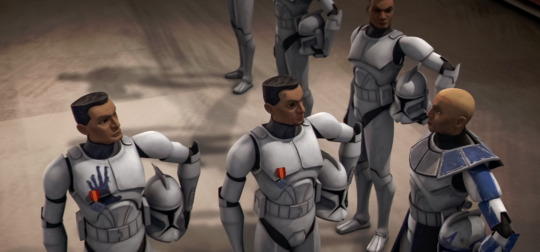
Echo’s very first mission on Rishi station involved a giant monster, a droid army invasion, watching his superior officer die in front of him, and losing most of his squad along with the entire outpost he had been assigned to help defend. After the Rishi station is overrun by battle droids, Echo, Fives, Hevy, and Cutup escape through an air vent only to land in the middle of what turns out to be the Rishi eel’s nest. Echo is second to last in line and has to watch as Cutup is snatched up by the eel right behind him and swallowed whole. Echo is the only one to look back and commemorate Cutup with his name and a sigh before they have to keep moving. He does the same at the end of the episode when they lose Hevy, thanking him for his self sacrifice. Echo’s mind—strategic, careful, hesitant, wanting to do the right thing—is always on his brothers and their safety, and his own fears and questioning give way to courage and determination as he watches his brothers do what needs to be done.
This formative experience is literally emblazoned on Echo’s chest and becomes part of his identity when Rex shoots the eel in the eye, wipes some of its blood on his hand, and presses it against Echo’s armor as he encourages him to keep going. This combination of bravery, looking death in the eye, and holding compassion for each of his brothers as they fall continues to be a running theme throughout Echo’s character arc—from holding 99 in his arms as he dies, to hanging in the Techno Union chamber where his mind and body were used to hunt down the brothers he loved, to overcoming the changes and loss he’s experienced and finding a new family with the Batch and Omega, to coming full circle and joining Rex to help free his brothers from the Empire’s grip. He has had to watch as brother after brother is taken away from him, but he has learned how to keep going in the face of loss. These experiences bring out who he is—caring, loyal, brave, resolute, and a symbol of endurance—and trace back to the very first monster he had to face.
Hunter, Omega, and the Ordo Moon Dragon

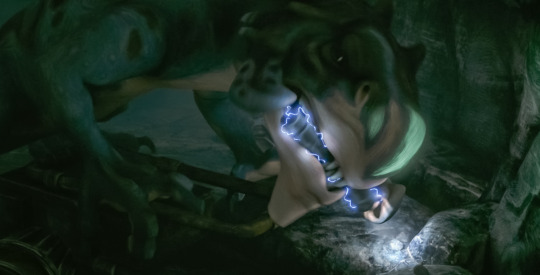

In season 1 the Batch is newly on the run from Kamino after Order 66, finding Omega, and losing Crosshair. They crash onto an uninhabited planet and while trying to repair their ship, an Ordo Moon Dragon makes off with their capacitor, leaving them stranded. Like the Zillo beast seen in season 2, it feeds on energy but is actually peaceful when not provoked. Hunter wants to track it down, by himself, but Omega insists on accompanying him. While tracking the creature, Omega brings up Crosshair’s absence, and Hunter is unwilling to even say Crosshair’s name, and he is very uncomfortable with the conversation. He is unwilling and unable to face his demons right now, and instead is wallowing in self-blame. Hunter won’t be able to fully face his inner turmoil until Crosshair returns and they encounter the Wyrm on Barton IV, another dragon-like creature which also burrows underground (although it is much, much larger, and more harmful than the Ordo Moon Dragon, signifying how much Hunter’s avoidance and resentment grows over time as it is not dealt with). It’s also interesting that this episode cuts back and forth to Crosshair fully under the influence of the chip and wiping out Saw Gurerra’s insurgents in a very violent manner.
Hunter ends up being knocked out by the creature and Omega takes her flashlight and his blaster to complete the mission, going alone into the tunnels where the dragon lives. What Omega learns is that she doesn’t need the blaster to deal with the situation. As scary as it is, she doesn’t have to kill the dragon or use violence against it, as it’s simply hungry and looking for food. The terrifying creature becomes a thing of beauty, green electric shocks running over its rainbow colored body, illuminating the tunnel and Omega’s face as it feeds on the flashlight she throws to it in exchange for their capacitor. The visuals mimic the teal and green rippling over the Vrathean that Omega and Ventress encounter and have to calm down in season 3 (more on that further on).
However, this wasn’t Omega’s mission. It was Hunter’s, but she ends up completing it for him. Omega learns a valuable lesson here, which fits in with her natural tendencies of drawing both people and animals to her caring, compassionate nature instead of judging them based on appearance, but I’m not sure that this was her ultimate trial in facing her own inner demons. (See my thoughts on why this is important at the end of this essay in the Ventress section.) This also was a failed attempt for Hunter, and he would end up facing his trial again in The Return in season 3.
Wrecker and the Rancor (Muchi)
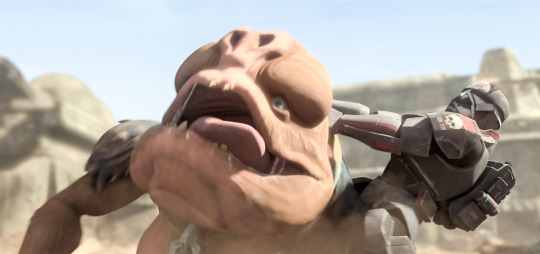
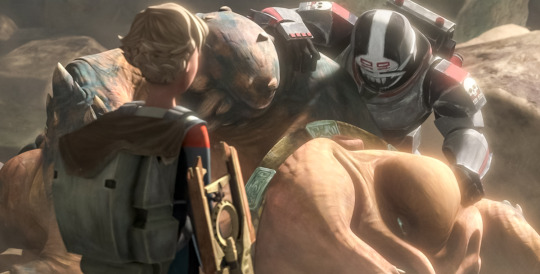
Wrecker was introduced as a character whose expertise is in explosives and making things blow up. He lives for making a ruckus and having a good time, but his strengths are engineered to be used for destruction.
Much of Wrecker’s character arc in season 1 is learning how to become more of an adult/parental figure for Omega, and how to put his own desires and needs aside in order to help take care of hers (letting her eat first, making a room for her in the gunners nest, watching out for her). In Rampage, the Batch is charged with rescuing a “child,” who they eventually find out is a young, ornery, and decidedly huge Rancor. Wrecker is the only one of them strong enough to sedate the creature after a lengthy bout of essentially hand to hand “combat.” They needed to bring Muchi back alive and Wrecker ends up gaining mutual affection and respect with her. Muchi is now calm and tamed enough that Omega can ride on her back with no fear or worry of danger.
Rancors adhere to a strict social and familial hierarchy, and have to challenge the alpha for authority. Wrecker starts out brash and boastful, and even though he is always caring, he becomes much more aware of his surroundings and his standing in their family unit as he grows in his responsibilities toward Omega. Rampage is shortly before his chip goes off, where he almost kills his entire squad. While his brute strength is an asset when used in the right ways, it is lethal if used for the wrong ones, and through his family bonds (especially with Omega) Wrecker is ultimately able to overcome the worst, chipped version of who he had been made to be, and instead be a source of safety and strength for Omega and his family.
Tech and the Zillo Beast

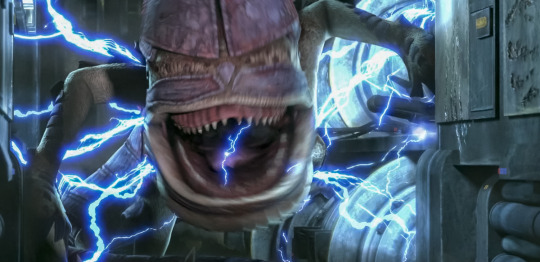
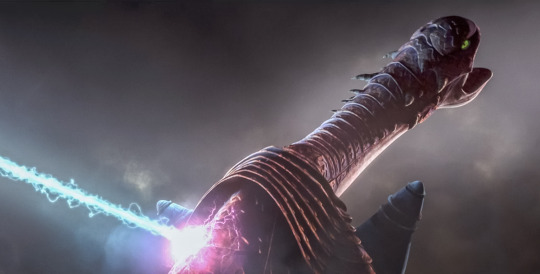

The Zillo beast is a marvel amongst Star Wars creatures. Its armor is impenetrable and highly valuable, and it feeds almost exclusively on energy, which allows it to become larger and morph into an even more powerful creature. When the Batch encounters it in season 2 in Metamorphasis, it tries to attack all of them, but Tech is the only one who is “fascinated” by the creature rather than scared of it. Similar to the Zillo beast feeding on energy, Tech’s mind was what he was known for, and he “fed” it by constantly consuming and integrating data about the world around him (which is transmitted by energy currents). During this episode Tech is confident in his own capabilities and extremely interested in learning more about the cloning technologies they were uncovering on this crashed ship. Tech’s research on the Zillo beast, while helpful, unfortunately comes too late and the Batch are unable to either put down or recapture the creature before it grows too strong for them to deal with. In the process, the Zillo beast escapes and is eventually recaptured by the Empire.
I’ve always been fascinated by the point in this episode where Tech is downloading the rest of the information from the terminal onto his data pad, and Hunter warns Omega that Imperials are inbound. She immediately tells Tech they need to go, and he refuses for a moment, saying he needs to finish capturing the data. If Omega did not pressure him to leave (and the electricity go out), he very well could have been standing there when ships bomb their location a few moments later, and gotten both himself and Omega killed for no good reason. At this moment his love of knowledge is overpowering his common sense and his love for his family, and it almost costs him everything.
Contrast this to a few moments later when he pulls Omega out of danger as they leave the ship, and Plan 99 when he chooses to sacrifice himself not for his own gain, but solely so his family has a chance to live. He had to face his greatest asset where it could also be his greatest failure, and learn how to prioritize and wield his strengths.
Crosshair and the Vulture
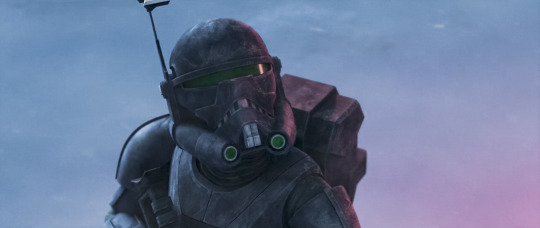
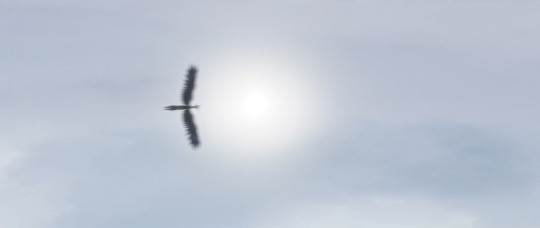
In The Outpost in season 2, Crosshair has spent almost two seasons engulfed in poor choices made both against his will (the chip), and of his own volition (staying with the Empire no matter what in pursuit of a sense of purpose and loyalty). His decisions are starting to grate on him and have led him down a dark path, but he hasn’t been fully ready to find a way to change them. When he lands on the icy planet of Barton IV, he encounters fearsome ice vultures shrieking overhead. He is told by the outpost’s commanding clone officer, Mayday, that the creatures are vicious, but admirable, because they find a way to survive.
Vultures signify both death and cleansing and are often feared and viewed with disgust, yet are an integral part of nature. Crosshair’s isolation and status as a clone soldier have put him in a precarious and often misjudged position, in ways he doesn’t even fully realize until this episode. His very life is in danger due to the Empire’s stance toward the clones, but so far Crosshair has believed that he is valuable to the Empire in ways that the regular clones are not. This attitude and perspective are severely challenged by Lieutenant Nolan, who speaks contemptuously both about and to every clone he encounters. Nolan’s lack of respect for them as soldiers, as officers, and even as people, is an extreme look at what Crosshair’s callousness and misplaced loyalty could lead him to if he is not careful. His fate is hanging in the balance.
After being sent on an inhumane mission to retrieve two crates of armor in a blinding snowstorm, Crosshair and Mayday are caught in an avalanche. After coming up out of the snow gasping for air, Crosshair could choose to get himself back to base and leave Mayday behind. Find a way to survive in the cold on his own, but kill the last of his compassion and personal values in the process. Instead, he chooses to put his life even more at risk to bring Mayday along with him.
Unfortunately for both of them, when they get back to base, Nolan has zero sympathy for their self-sacrifice, and allows Mayday to die unceremoniously on the platform from his wounds. Once again, a vulture is circling overhead, waiting to partake of its next meal. It signifies the threat of death but also Crosshair’s struggle and desire to survive. Crosshair is now staring his own lack of value and expendability in the face, and where he finds himself is now fully intolerable. He cannot continue on the way he has been without the very essence of who he is breaking irreparably in the process. Does he reclaim who he is, a compassionate and forceful individual who protects those he cares about? Or does he fall in line with what the Empire wants from him, knowing he will be discarded regardless?
Crosshair integrates his lesson in a visceral manner, his own personal traits mimicking the very essence of the ice vulture as he finally reorients his moral compass, takes a stand for himself and for his clone brothers, and takes vengeance on Lieutenant Nolan. His caution and inner turmoil are channeled into one desperate act as he becomes an agent/angel of death, the framing of the scene creating vulture-like wings spread on either side of him. He doesn’t expect to survive this encounter, choosing a path that looks like death on the outside but is cleansing and redeeming for him on the inside. He can now face the future as his whole, integrated self.
Hunter, Crosshair, the Vulture, and the Wyrm

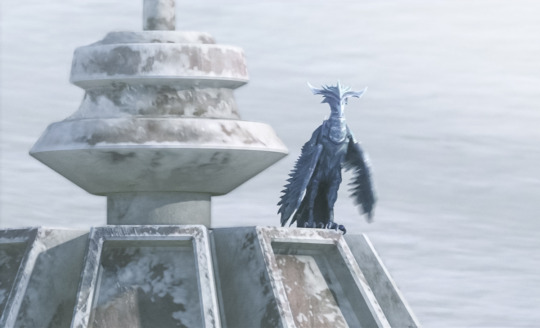
The vulture and its meaning for Crosshair, as well as Hunter’s cut-short encounter with the Ordo Moon Dragon, both have their bookends in season 3’s episode The Return. Crosshair has seen immense character growth after his choices in The Outpost, and has not only redeemed himself but has been given the chance to start reconciling with everyone he has hurt. This episode has two creatures that serve two important purposes: the vulture returns as a metaphor for Crosshair’s need to reconcile with and forgive himself, and a new creature, a giant wyrm (nice Dune reference there, Star Wars) highlights the fractured rift between him and Hunter, and the anger, distrust, and resentment that Hunter has been running from since Aftermath.
The Batch has returned to Barton IV, and Crosshair is greeted by the ice vulture as they land. The weather is calm and clear this time, and the creature is observing him but not in a threatening way. At the same time, tensions rise to a breaking point between Hunter and Crosshair and a long-awaited argument starts between them. Before it can be resolved, the wyrm erupts out of the ground and puts all of their lives in danger. It had been kept at bay previously by high-pitched noises, (oddly similar to Hunter’s enhanced senses, which he has been so distracted from that he wasn’t aware of the danger ahead of time) and lived underneath the same snow that had buried Crosshair and Mayday.
In their efforts to draw the creature away from the outpost so they can turn the sensors back on, Hunter falls through the snow into the wyrm’s tunnels. Crosshair has already had his inner journey underneath the snow on Barton IV. This time, Hunter has to finally face his own struggles. Every step of the way he has been running and hiding, trying to keep his family and Omega safe by keeping them away from the Empire, away from Crosshair, away from danger, but failing miserably. This time, Hunter could simply let Crosshair haul him back up to the surface when he reaches the spot where Crosshair and Batcher have dug a hole in the ice to pull him out. But he hasn’t confirmed that the wyrm is actually past the boundary and that it is safe to turn the perimeter sensors back on. This time, Hunter stays below the surface, and keeps himself in harms way until he is absolutely sure that his family is safe and that his own emotions have been worked through. He is starting to take responsibility for his journey. His senses start to kick in again and he refuses to leave the tunnel until the wyrm is barreling down his neck, and then he finally accepts Crosshair’s help. Both of them run to safety, the perimeter beacons turn on, and the wyrm is now on the other side of an invisible barrier of sound, harmless and chastened until it finally slinks away.
The boys exchange glances and nods. Their rift has been bridged and they are both willing to move forward, together. This is proven by the end of the episode, where Crosshair, who has remained closed off and unwilling to discuss what he’s been through, opens up slightly to Hunter before they leave, and Hunter responds with forgiveness, acknowledgement, and hope for the future. And for now, it’s enough. Crosshair looks into the sky and watches the ice vulture flying overhead once again. Except this time, it flies off into the sunset, signifying that his lessons from this planet have been fully learned, that the spirit of survival in the face of death that he has been carrying with him can now be put towards living and thriving again. Both Hunter and Crosshair are leaving slightly more whole than when they first arrived, both as individuals and in their restored relationship with each other.
Ventress, Omega, and the Vrathean


Omega gets a second chance at taming a terrifying creature in The Harbinger in season 3. After Asajj Ventress shows up on Pabu to help the Batch figure out the m-count conundrum that makes Omega’s blood so valuable to the Empire, (and after Omega has begged her to stay and test her capabilities), she and Omega go out onto the ocean to test Omega’s potential Force sensitivity. (Also after Ventress had to whoop the boys’ backsides to get them to slightly trust her, but we won’t go into that here).
Throughout this season, (and really for most of her life), Omega has…not been doing well. Her time on Tantiss, leaving the rest of the clones imprisoned there behind when she and Crosshair escaped, and the relentless pursuit of her by the Empire has truly traumatized her and made her single-mindedly want to know why she is always in danger and putting everyone else around her in danger as well. Her mental health has been spiraling a bit and her inner turmoil is starting to rival Crosshair’s in season 2. She knows that m-count is important and is also thrilled at Ventress mentioning the Jedi, while the rest of the Batch and Ventress herself are very somber about the prospect that Omega might have Force capabilities. However, in her desire to have answers, she ends up being very impatient and frustrated and doesn’t even show her typical level of optimism and concentration in working through Ventress’ tests for her. It’s almost like her goal (finding answers) is at odds with what her idea of finding those answers looks like.
After having tried and failed to “reach out” to the Force to summon anything, Omega pouts and sits back down in the boat, seemingly defeated. Ventress has asked her to try to connect to nature, probably because she has seen Omega’s connection to Batcher and assumes that might be more in line with whatever her gifting might be. Two of Omega’s main traits and strengths are her optimism in the face of defeat, and her compassion toward literally every living thing she encounters. She is always curious, generous, caring, and wanting to connect with others. Which makes it even more curious that she is so easily stumped and disconnected by this exercise. She challenges Ventress to prove why *she* is the best person to be teaching Omega this lesson, and Ventress sighs but gently and carefully shows her powers by calling up a school of glowing green fish from the water. “I’m not the one holding back,” she tells Omega.
After a peaceful moment, however, another creature, this time a giant and tentacled Vrathean, emerges from the water as well and starts hunting Ventress and Omega down. It’s unclear if Ventress actually called the creature up herself or not, but if she did it was not intentional. She helps rescue Omega from the creature’s clutches and then chooses to put herself in more danger by letting it grab her, and communing with it through the Force as it tries to eat her. The deadly creature becomes a thing of astonishing beauty as the color of the sea ripples over its body and its eyes soften and recognize Ventress as a sentient being.
This is where it gets interesting, because this peacefulness, calm, and compassion is not something we would have associated with prior versions of Ventress. Her experiences and growth throughout the Clone Wars, her associations with Ahsoka and Quinlan, and her choices have turned her into a much softer and stronger version of herself. This has now become her trial by allowing her to showcase just how much she has changed, and how much her own worldview has flipped.
This is an incredible example for Omega, but similar to how she took Hunter’s trial for him in Replacement, Ventress has now filled what was supposed to be hers. This begs the question, what is Omega actually holding back on? Is she really Force sensitive? Or is just her compassion and tenderness toward everyone around her overtaking her in unhealthy ways? She has always had a tendency to put herself in harms way in an attempt to make up for the complications her presence brings her brothers.
Omega will have to face these implied monsters at some point. I’m not actually certain that she will end up facing a creature like everyone else has—there’s the possibility that because she naturally has more affinity with creatures and beings that look monstrous but really aren’t, she may end up facing her inner demons in another manner. Will it be a person instead? Or a choice? Even, might I say, an identity crisis? It remains to be seen, but the fact that she must face it in order to overcome and integrate it is unquestionable.
#the bad batch#tbb#star wars#tbb spoilers#the bad batch spoilers#the clone wars#tcw#rishi eel#vrathean#wyrm#vulture#ordo moon dragon#monsters#creatures#star wars creatures#crosshair#hunter#echo#omega#wrecker#ventress#long post#meta#star wars meta#tbb meta#character analysis#somelightramblings#some light ramblings#monster of the week
113 notes
·
View notes
Text
Tech is likely the mediator of the Bad Batch a lot of the time (alongside Hunter, who also has to do so as the leader). Though he doesn’t always say the “right” things and is a bit slow to pick up on other’s feelings, he is shown to have a great capacity for empathy and rationality. During the end of Season 1, Tech intervenes in an argument between Wrecker and Crosshair and during The Bad Batch arc of the Clone Wars, he (awkwardly) attempts to get Wrecker and Crosshair to stop fighting with members of the 501st.
That said, when his preferred living conditions are disrupted (like when Wrecker was about to put explosives near his bunk) or things don’t go according to his plans (he was out for blood after that Ipsium mine collapsed), he can be irritable and short with others, and Hunter has to step in and negotiate.
Over all, Tech is a rational, empathetic guy who is capable of calming others down and working through conflicts with them, but sometimes his own personal rigidity and perfectionism makes him shut down and lash out. That said, I think it’s important to understand that Tech is genuinely struggling with emotional regulation in these situations and is probably overwhelmed. Though he appears outwardly stoic, Tech feels A LOT.
#tbb Tech#tbb meta#spitballing with character analysis#I have a lot of the same ‘problems’ that Tech does#we have the same disability
95 notes
·
View notes